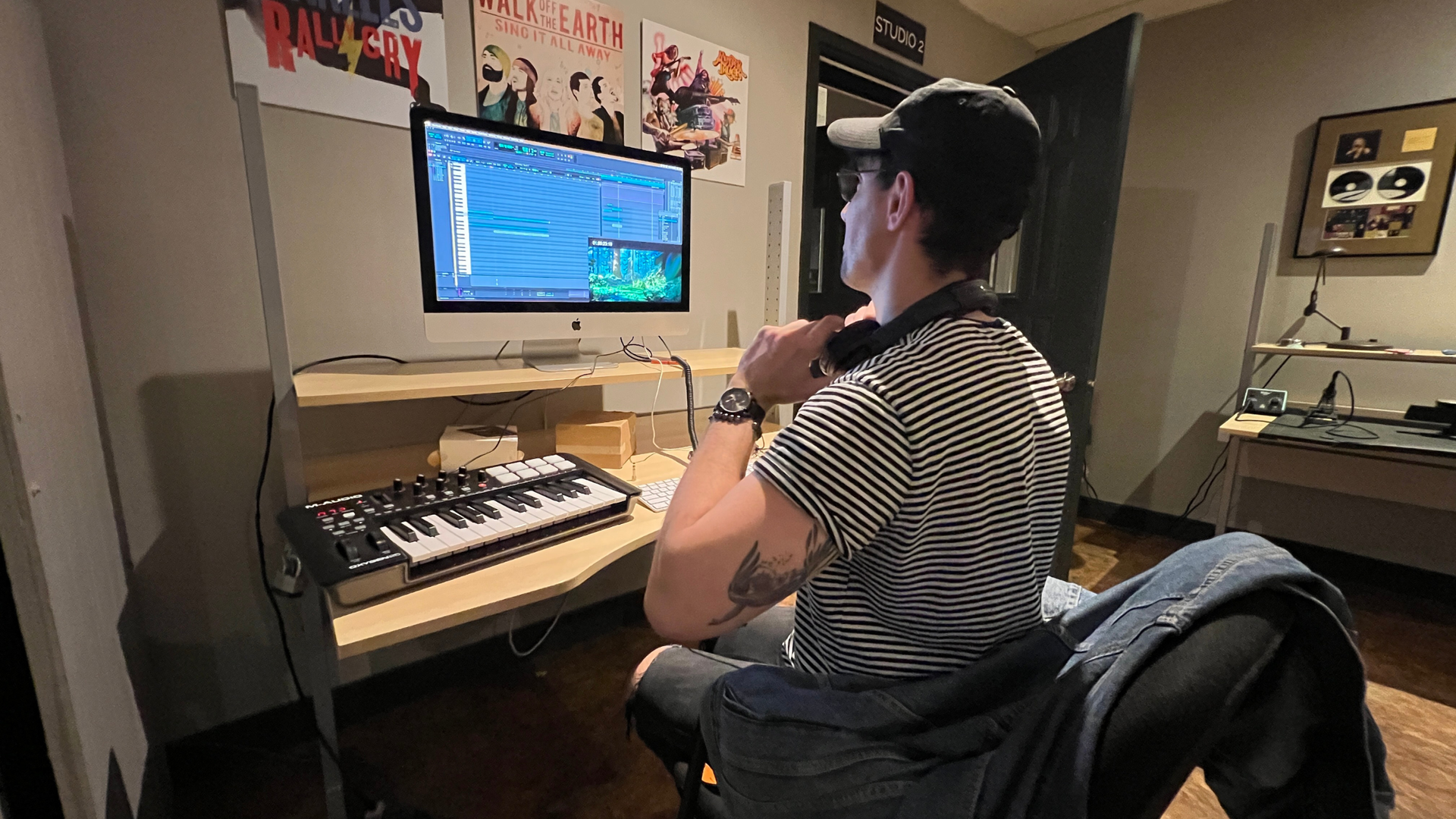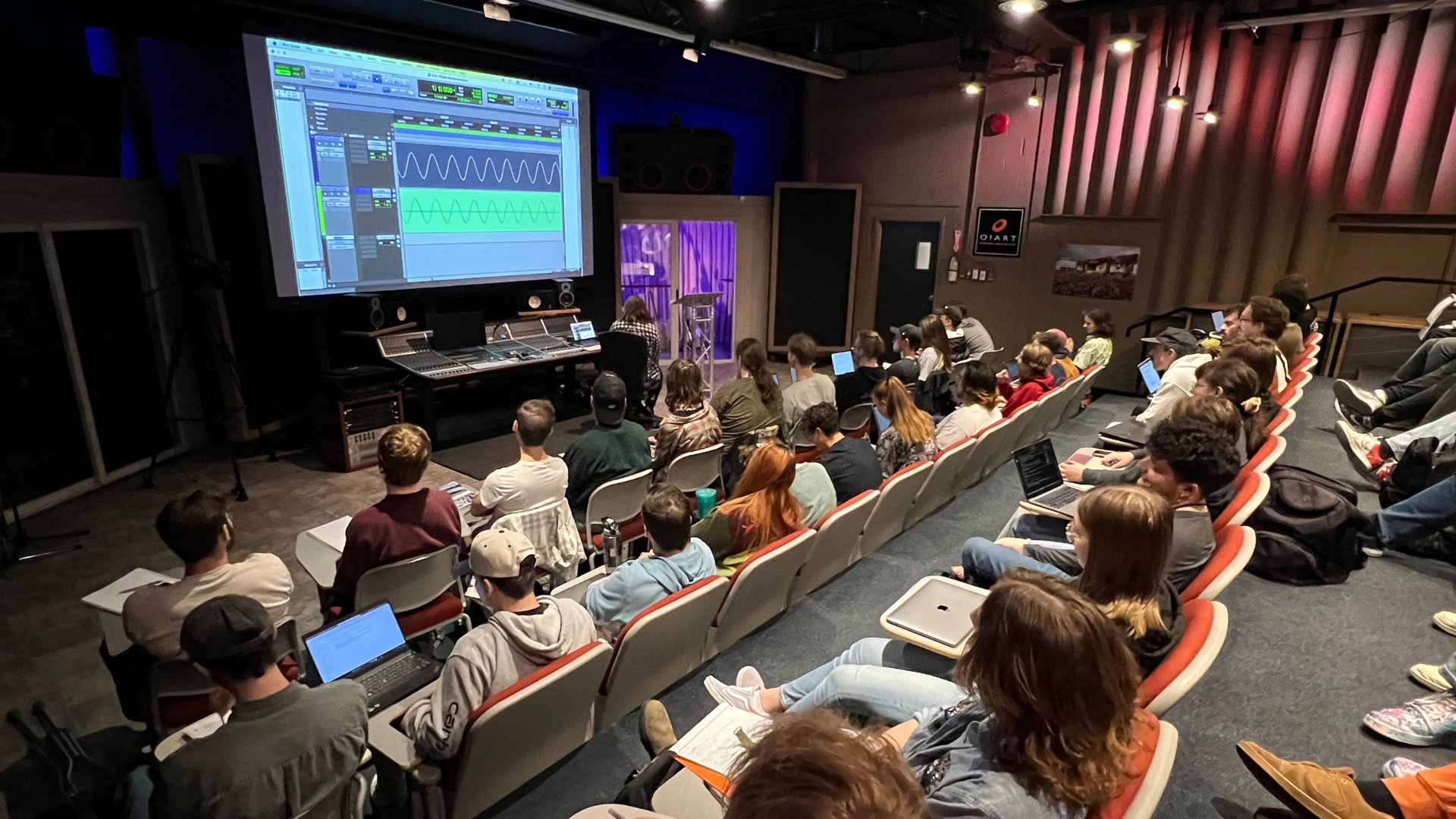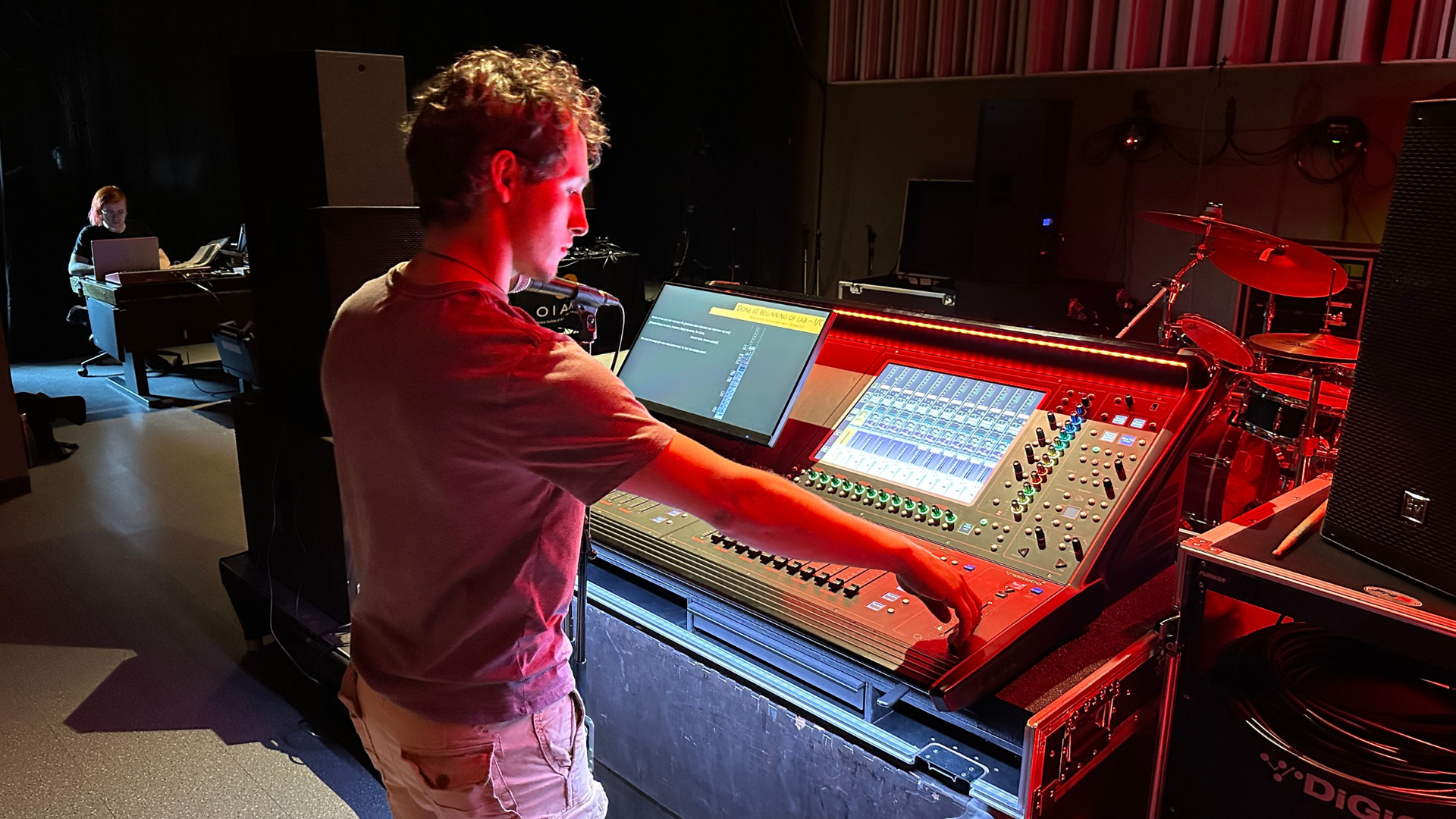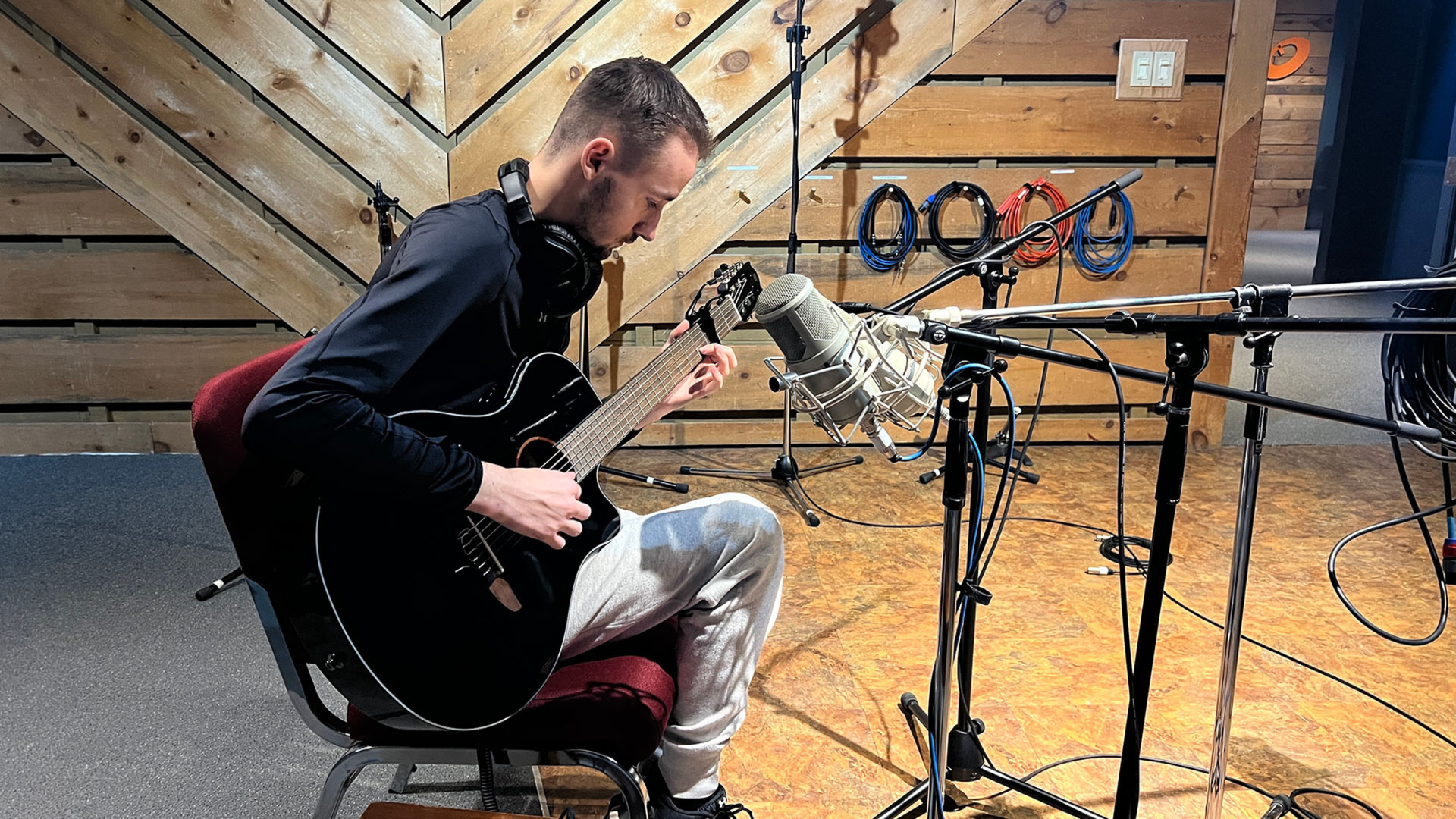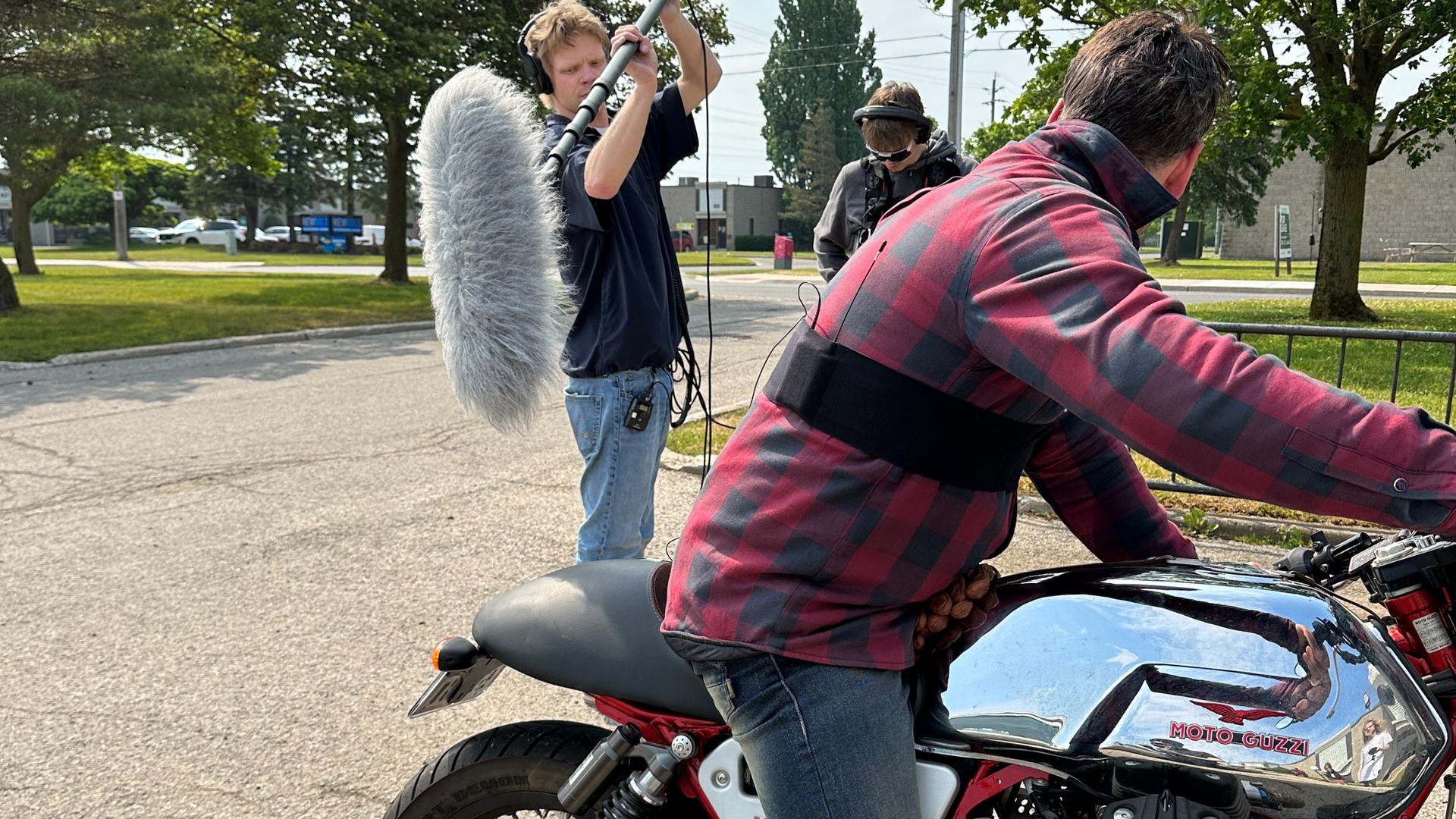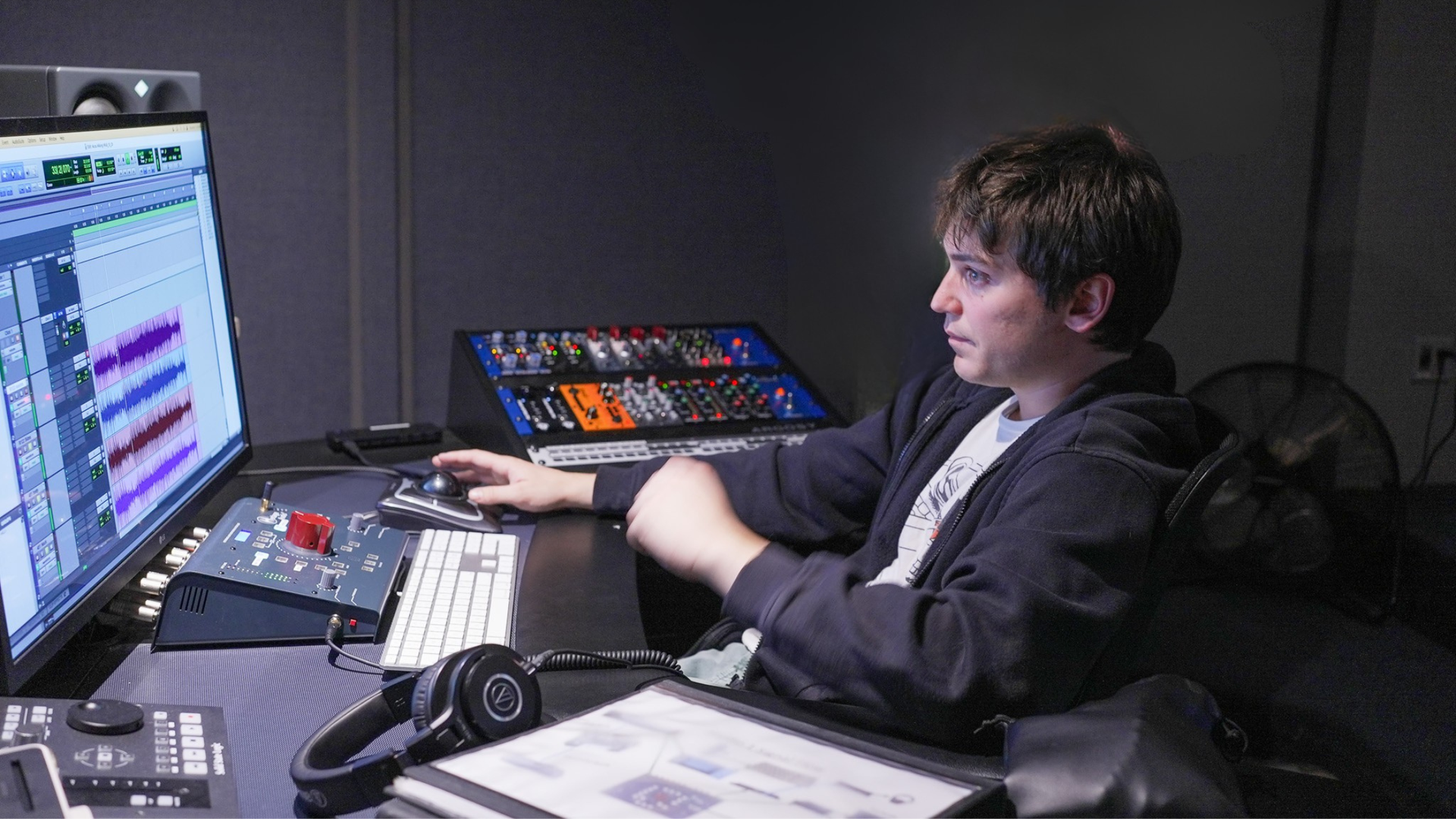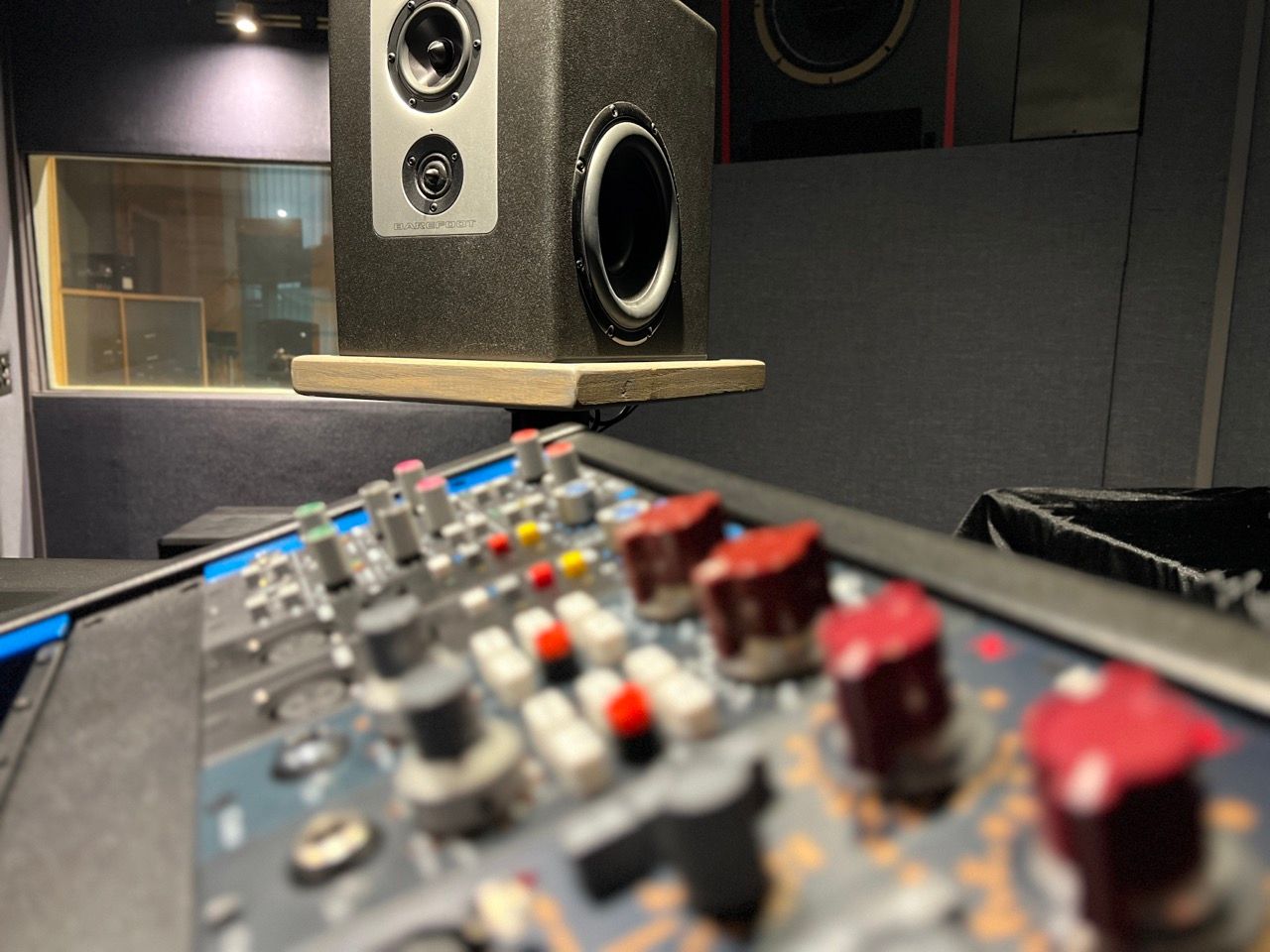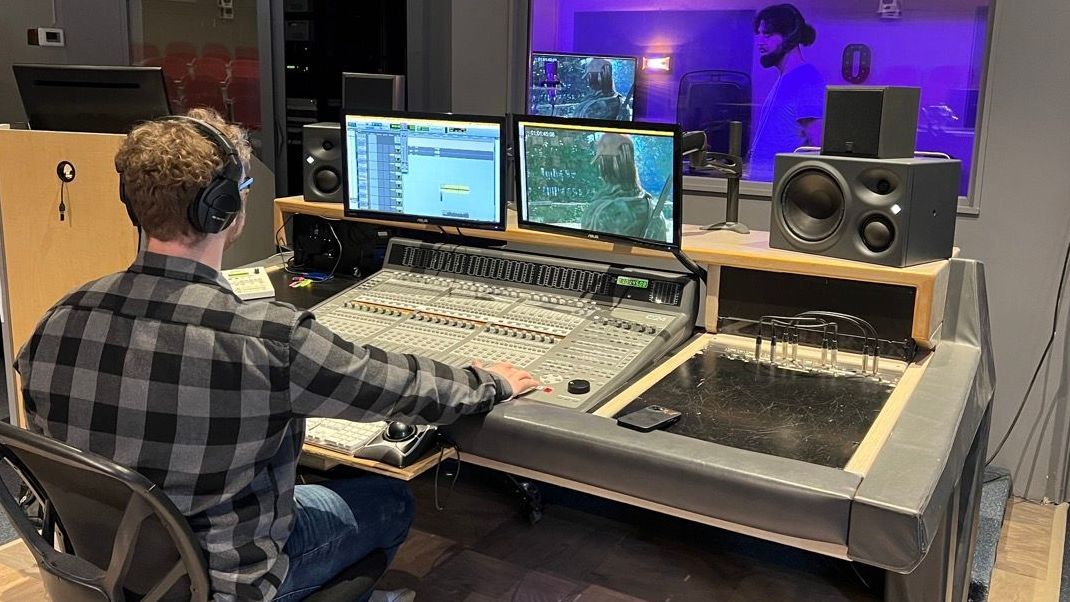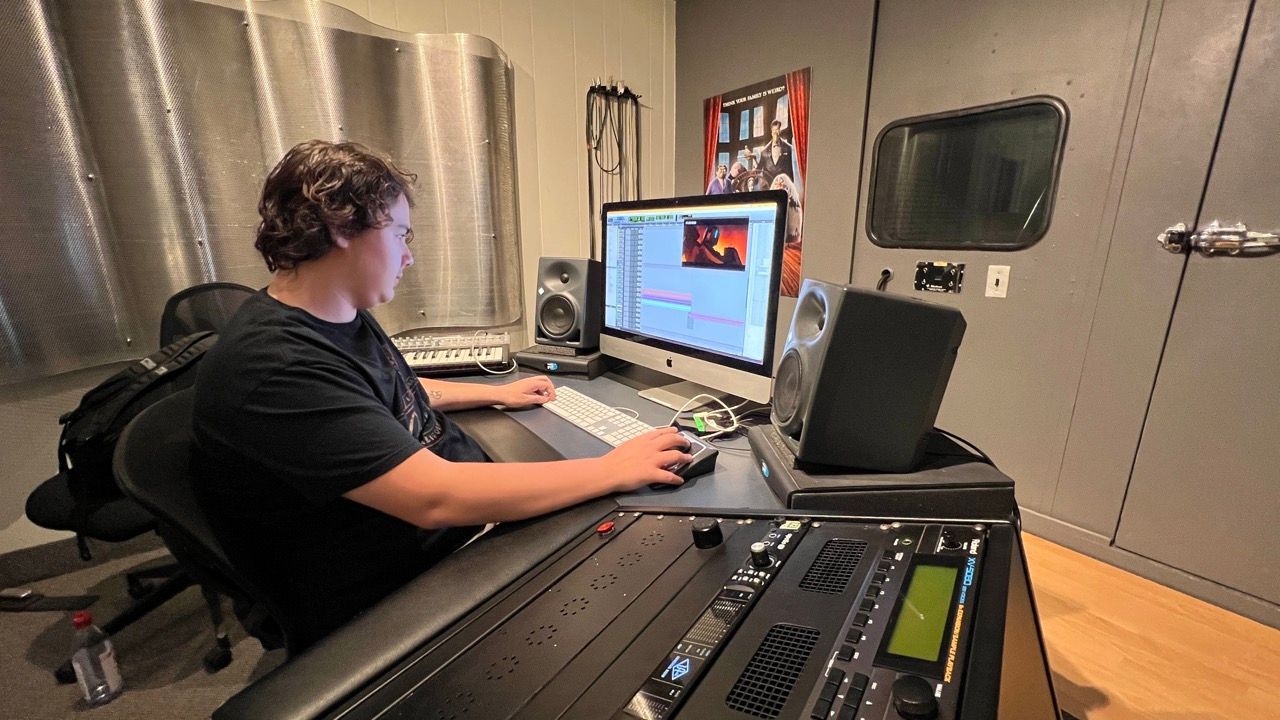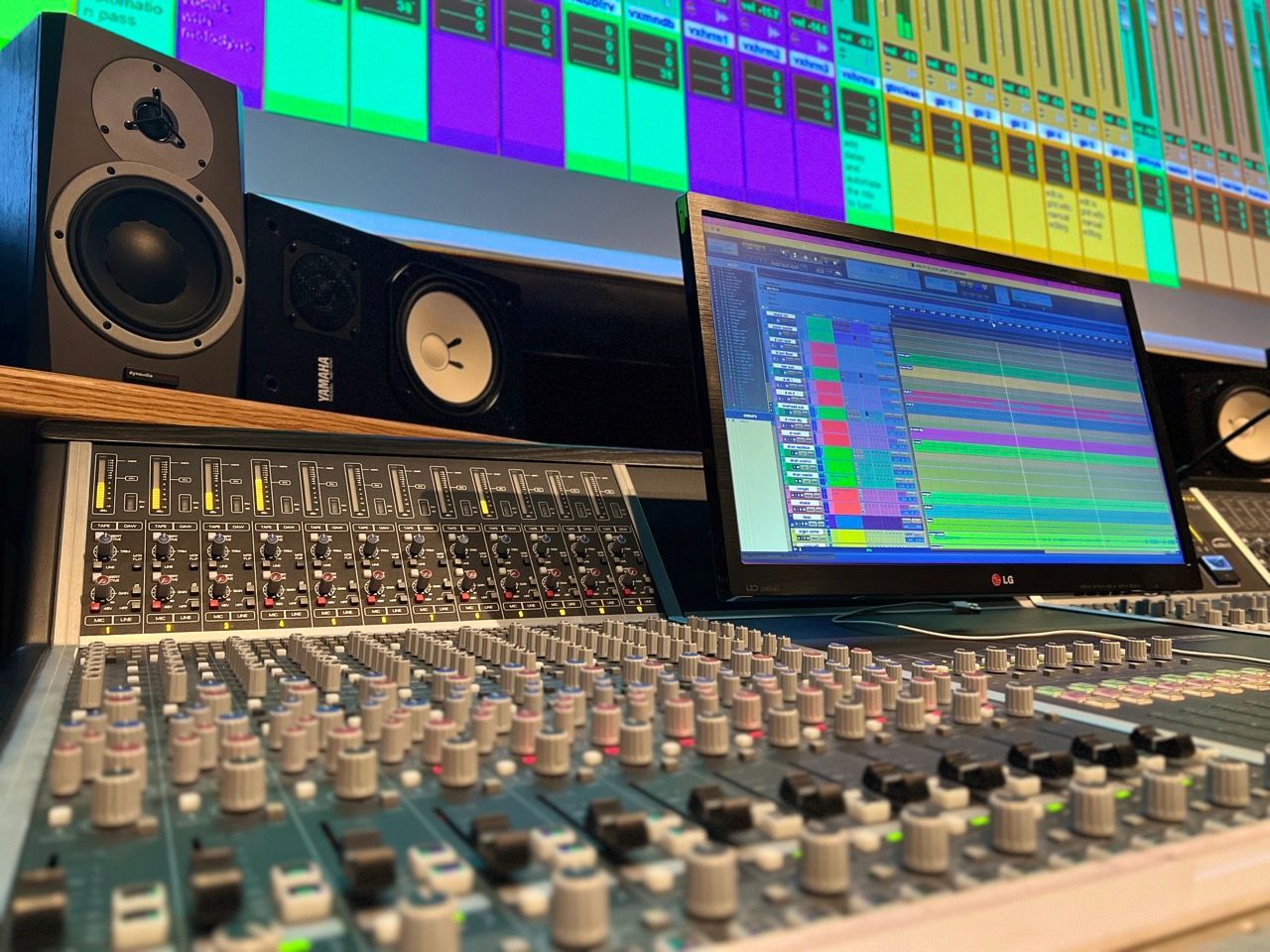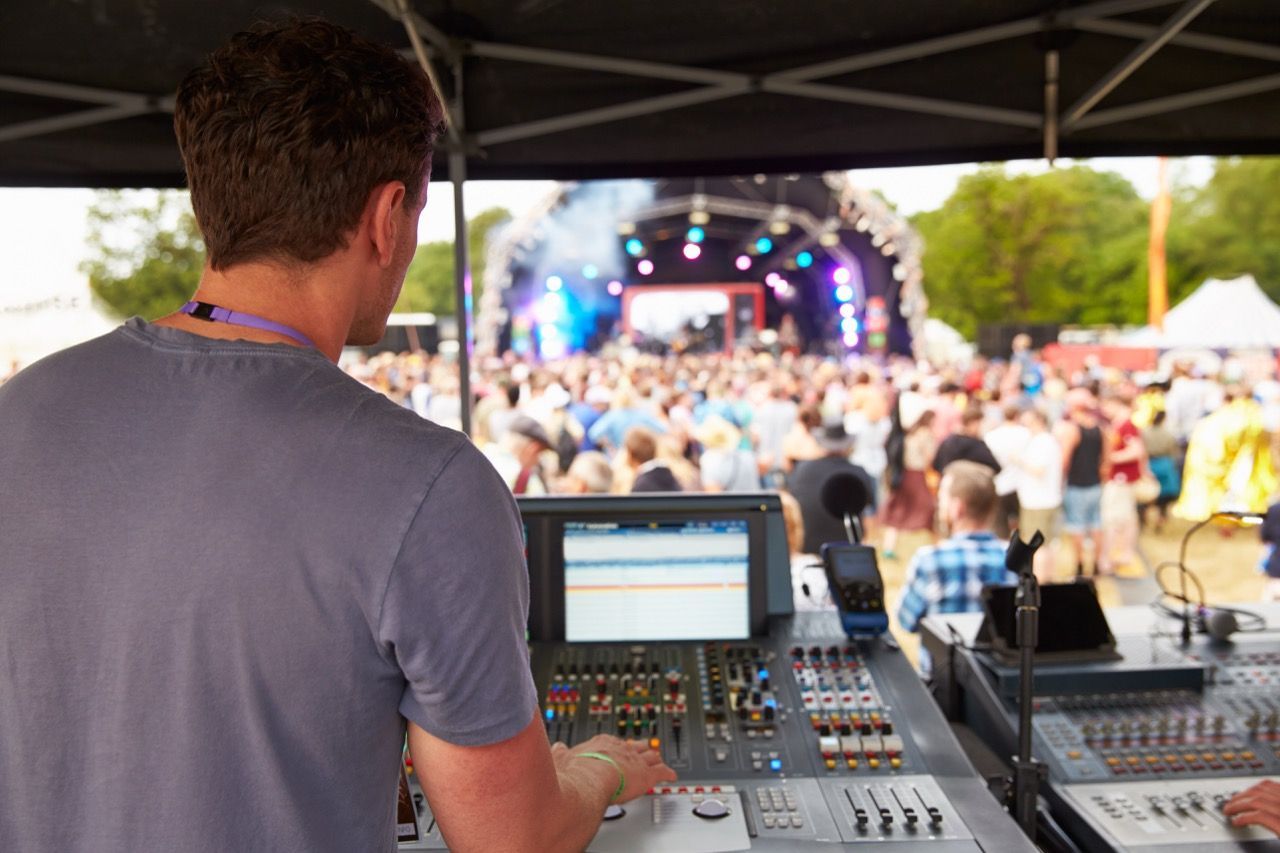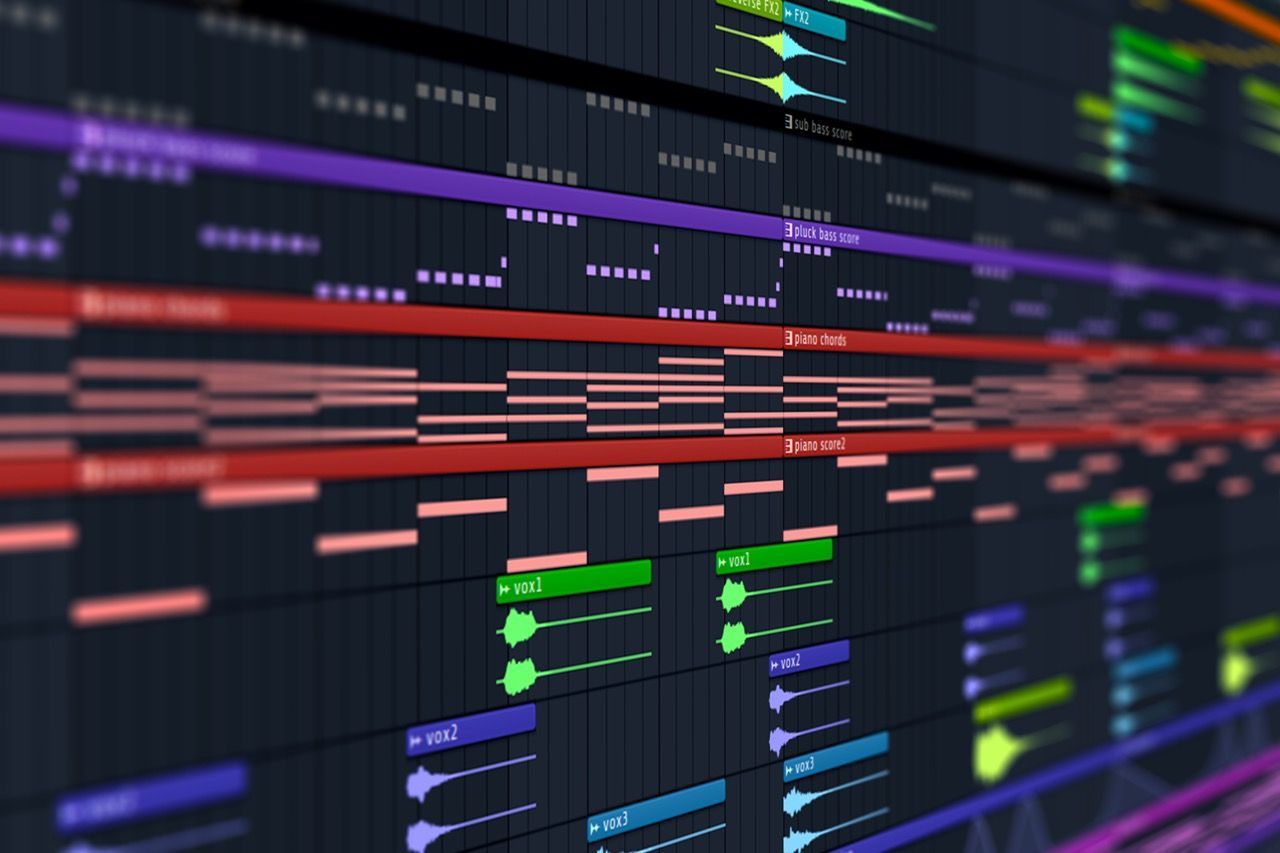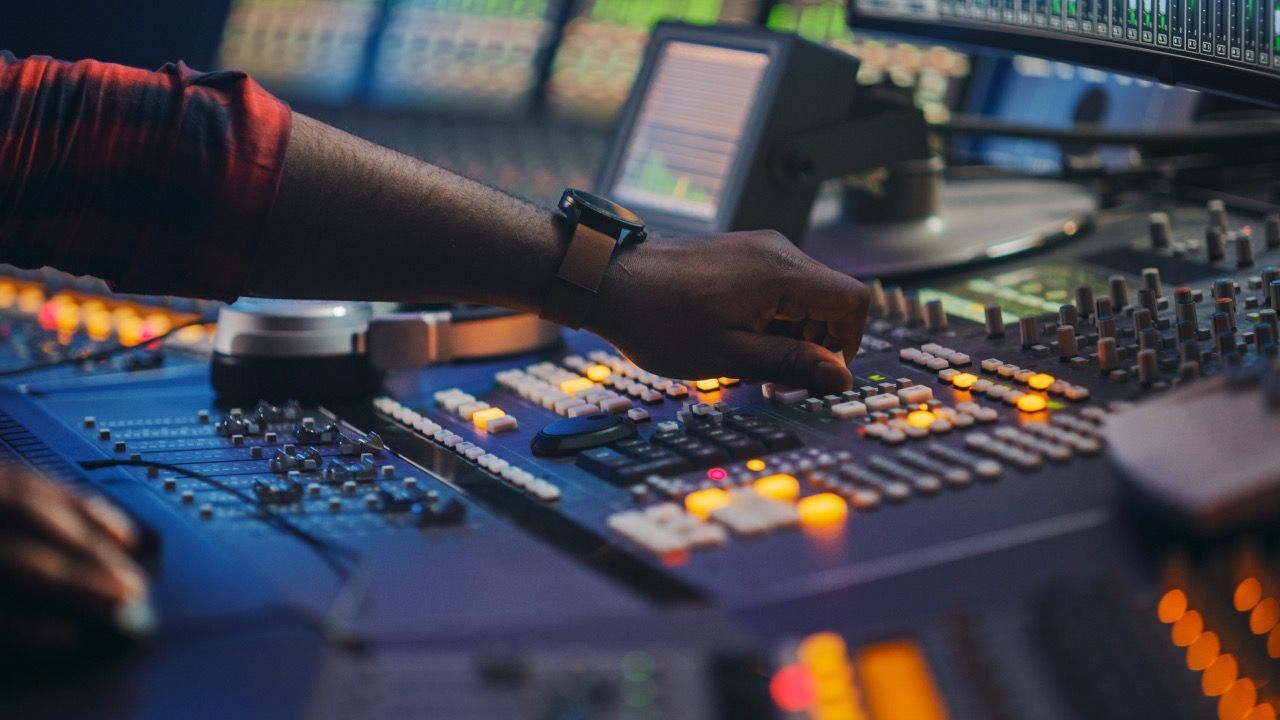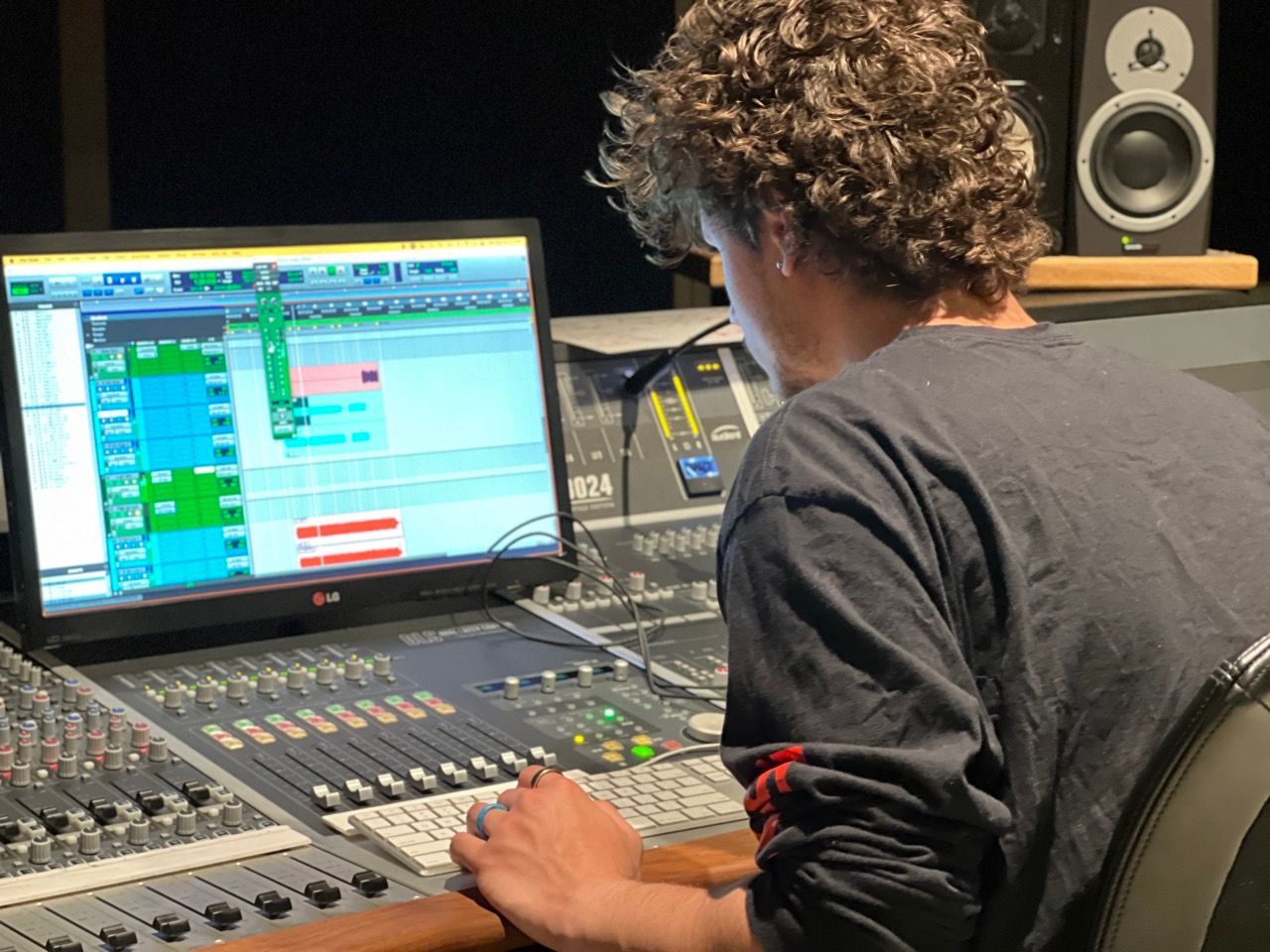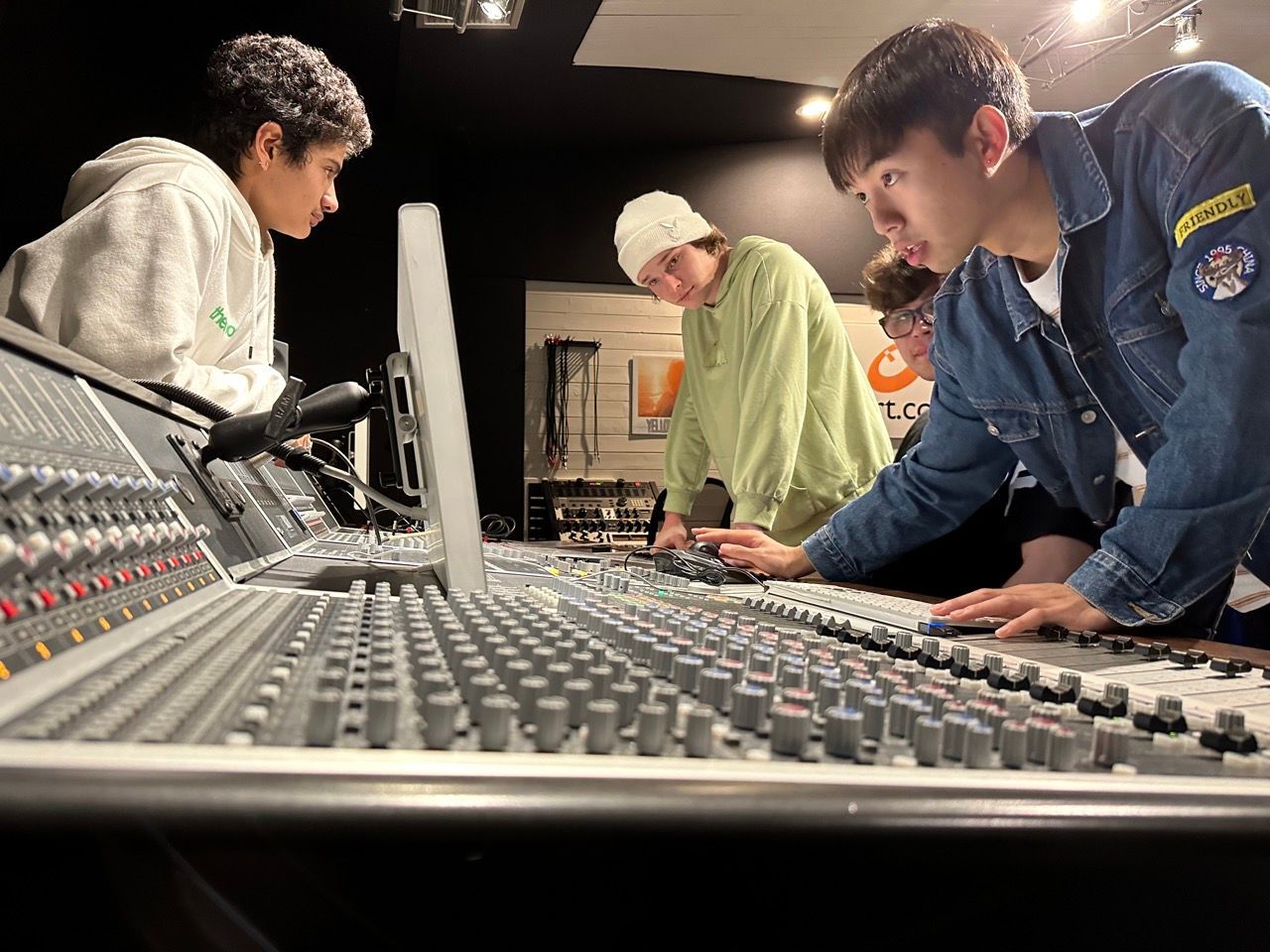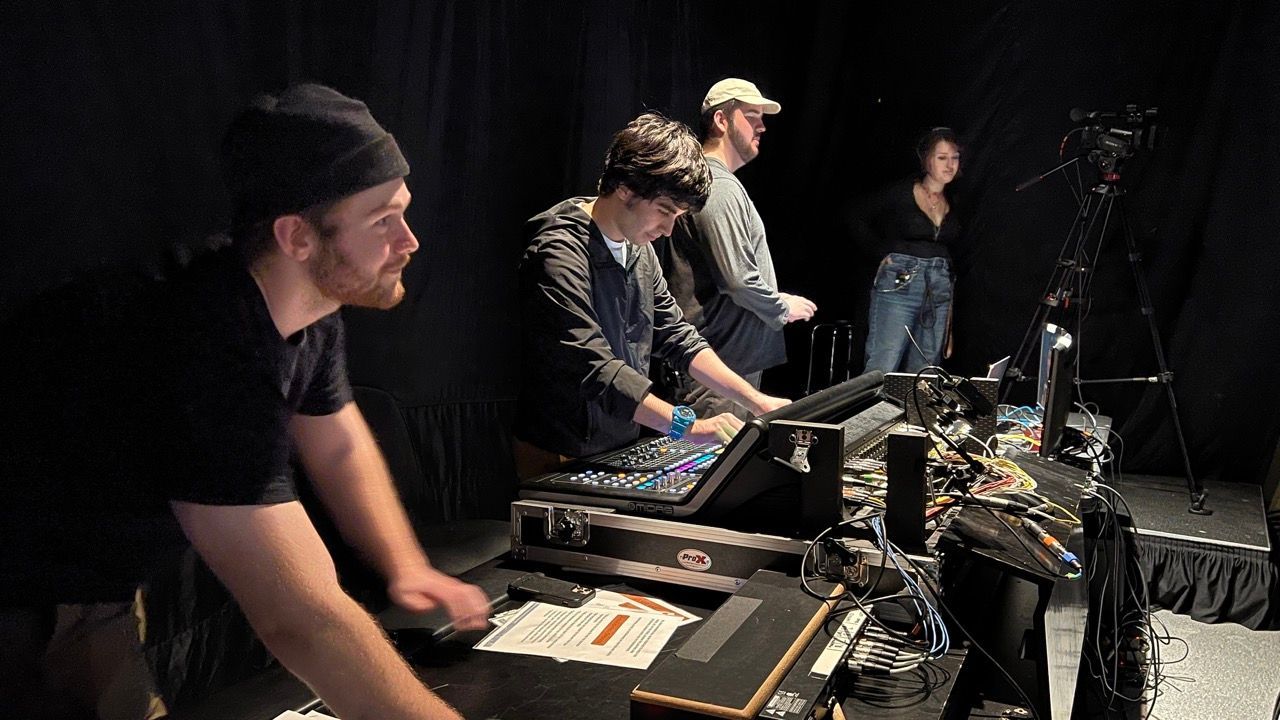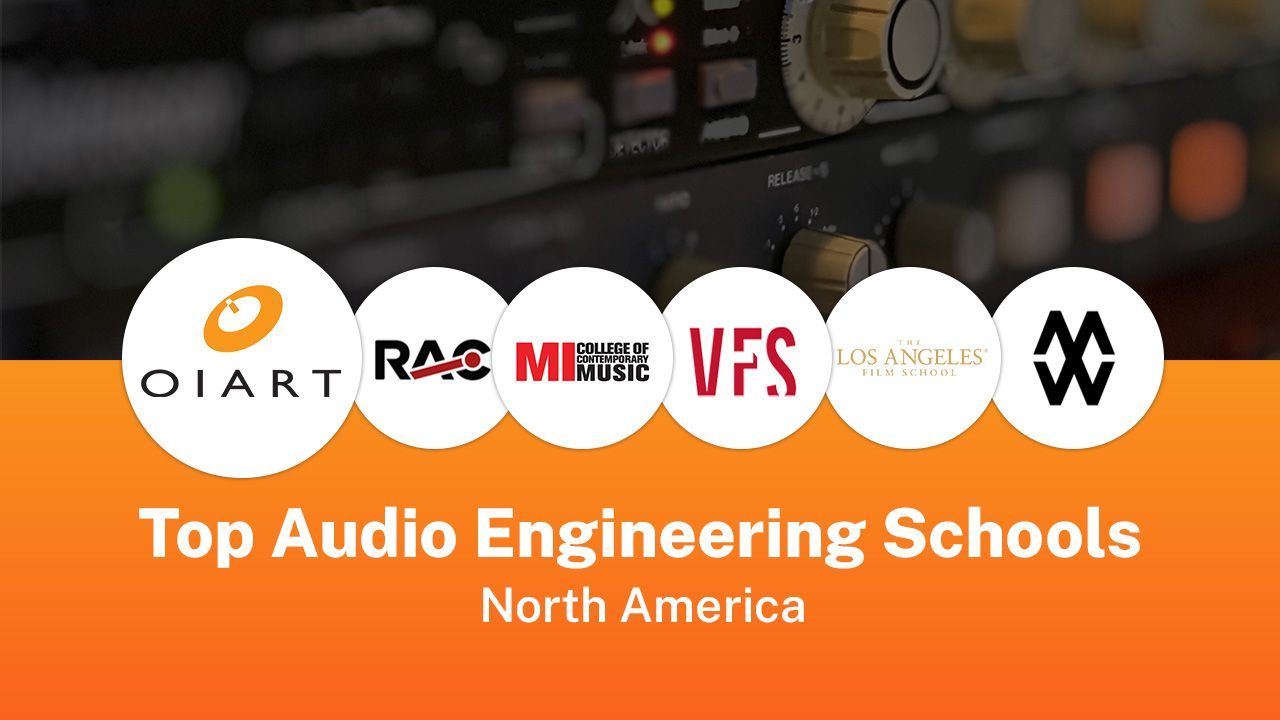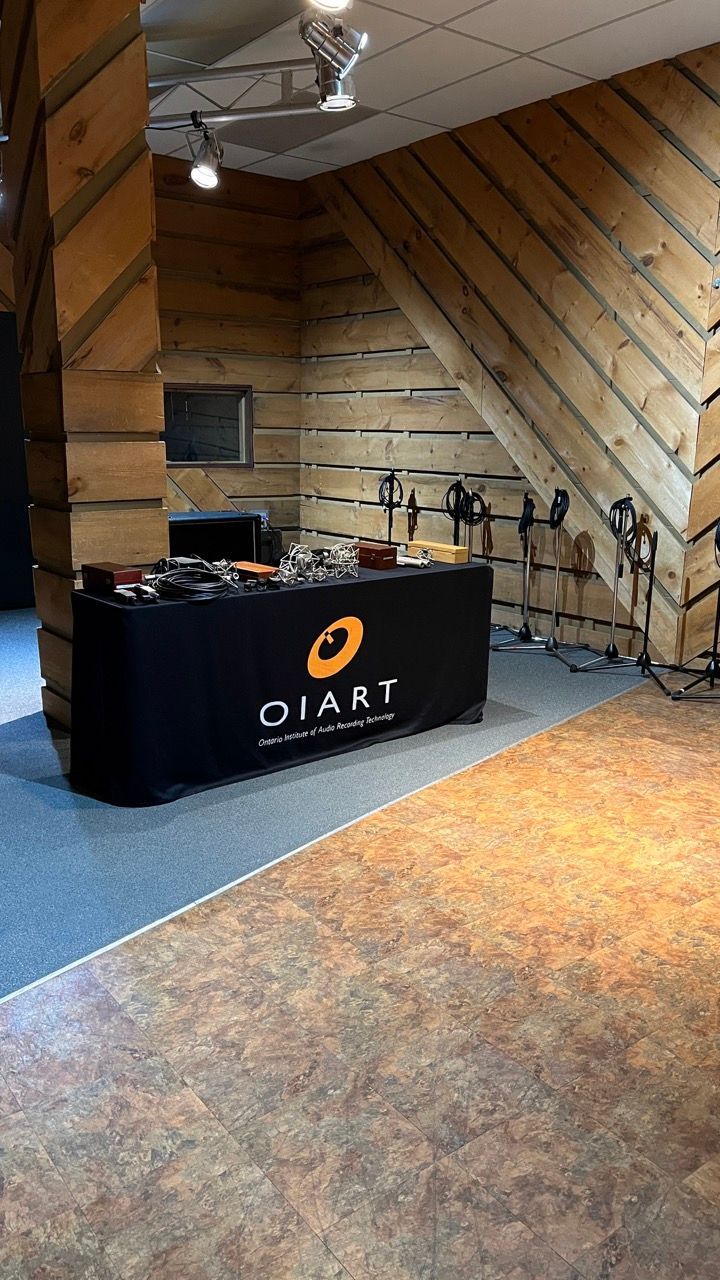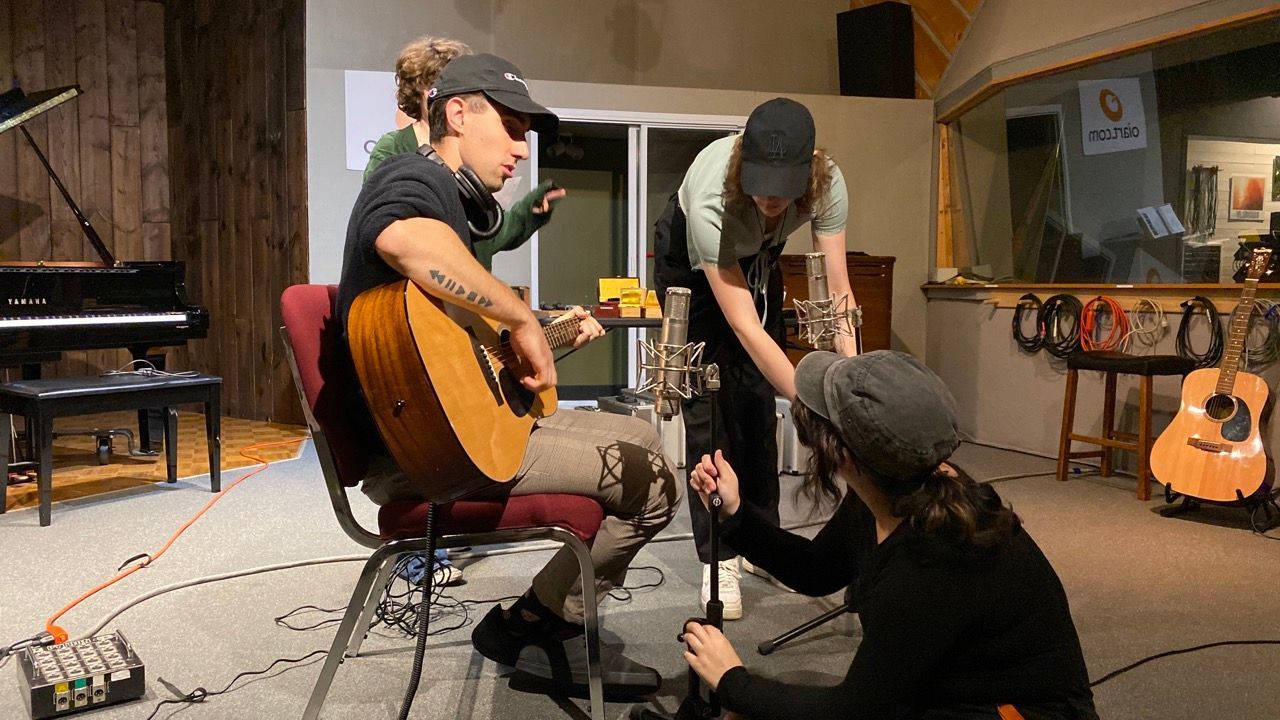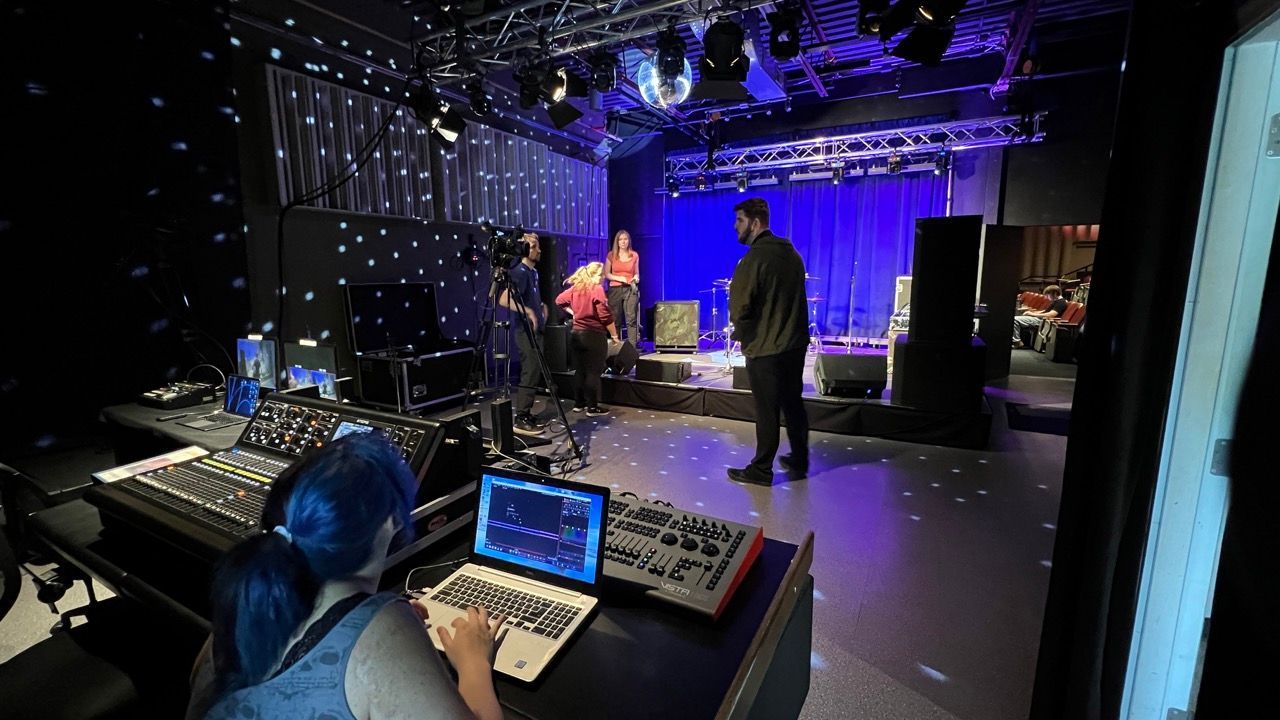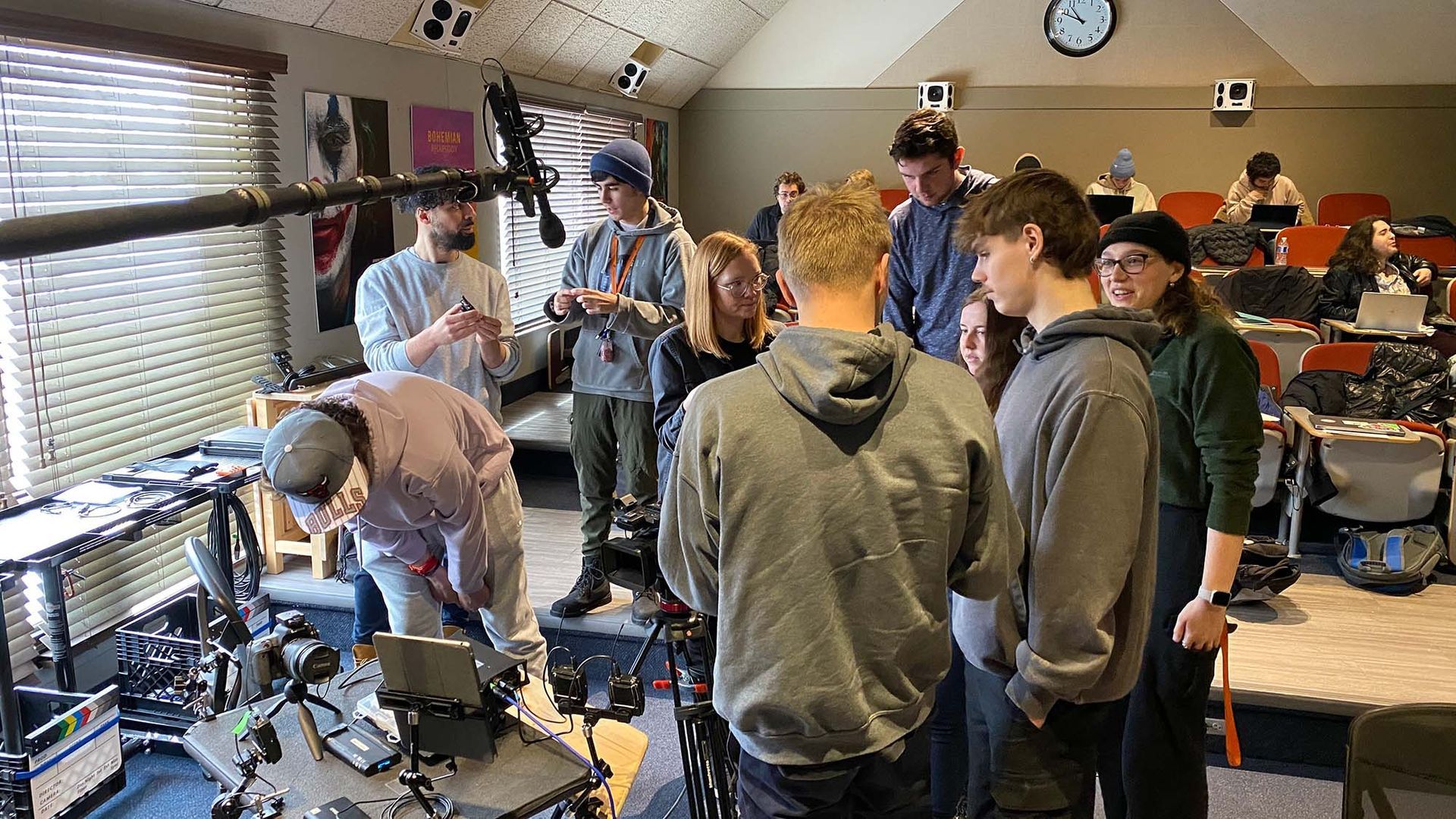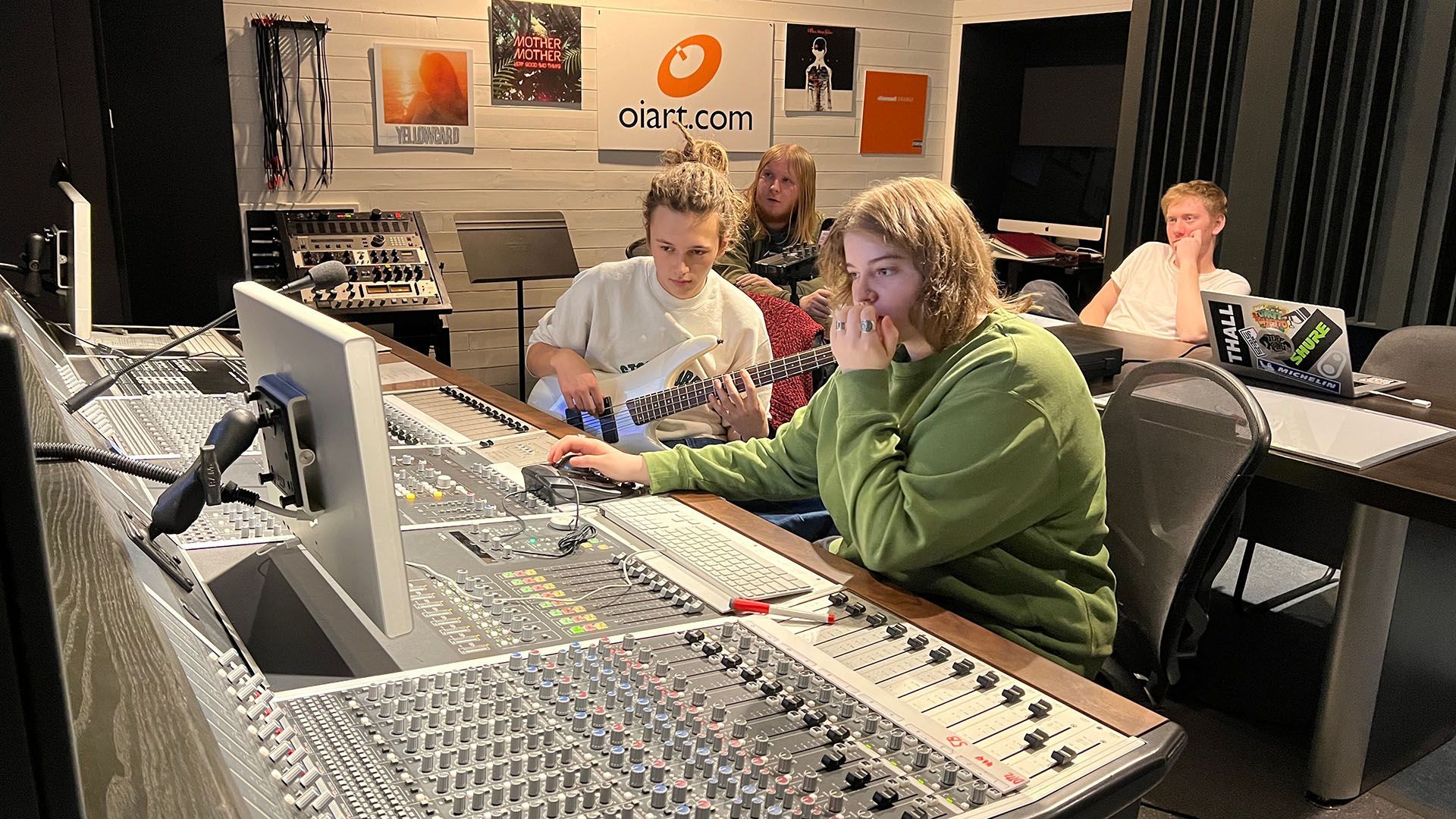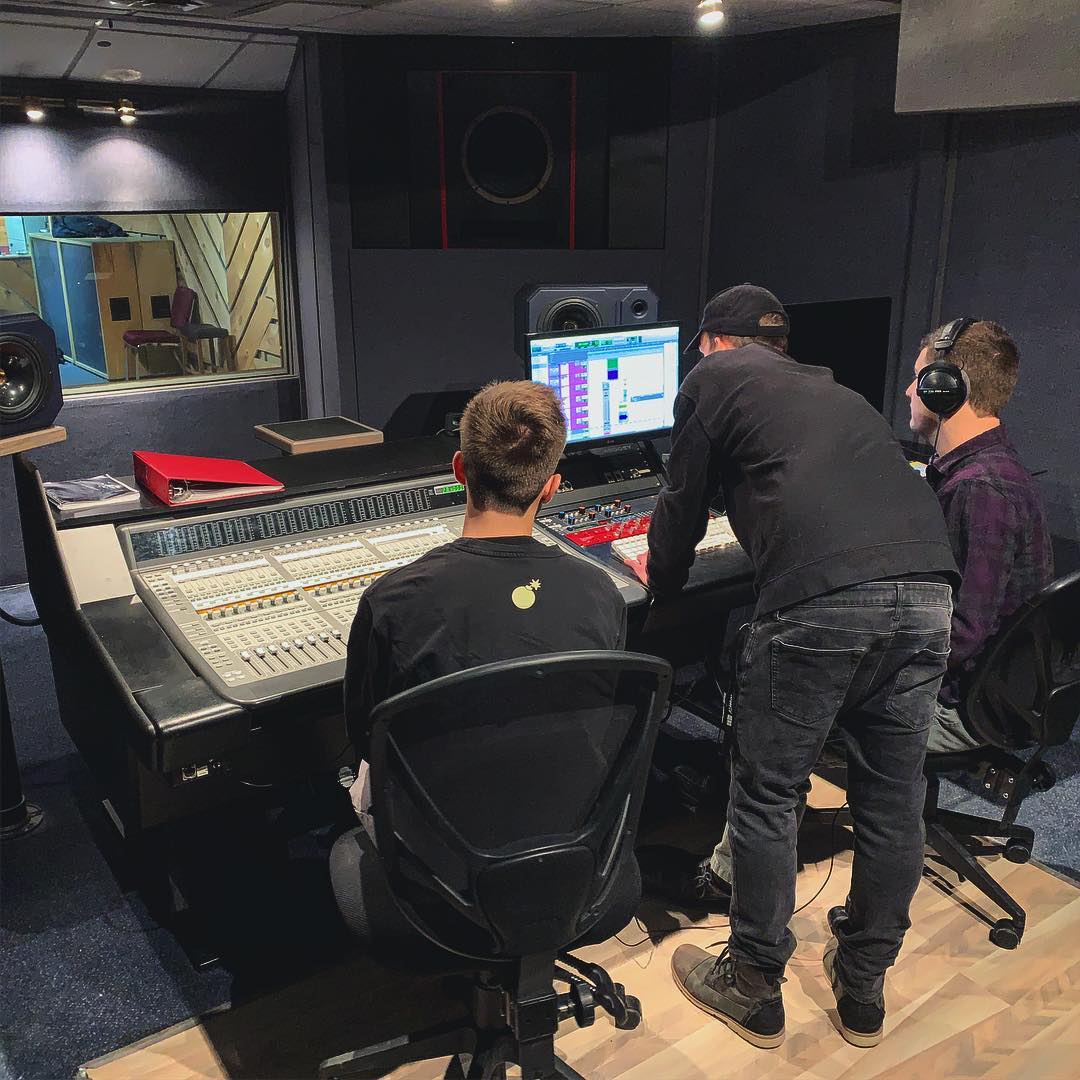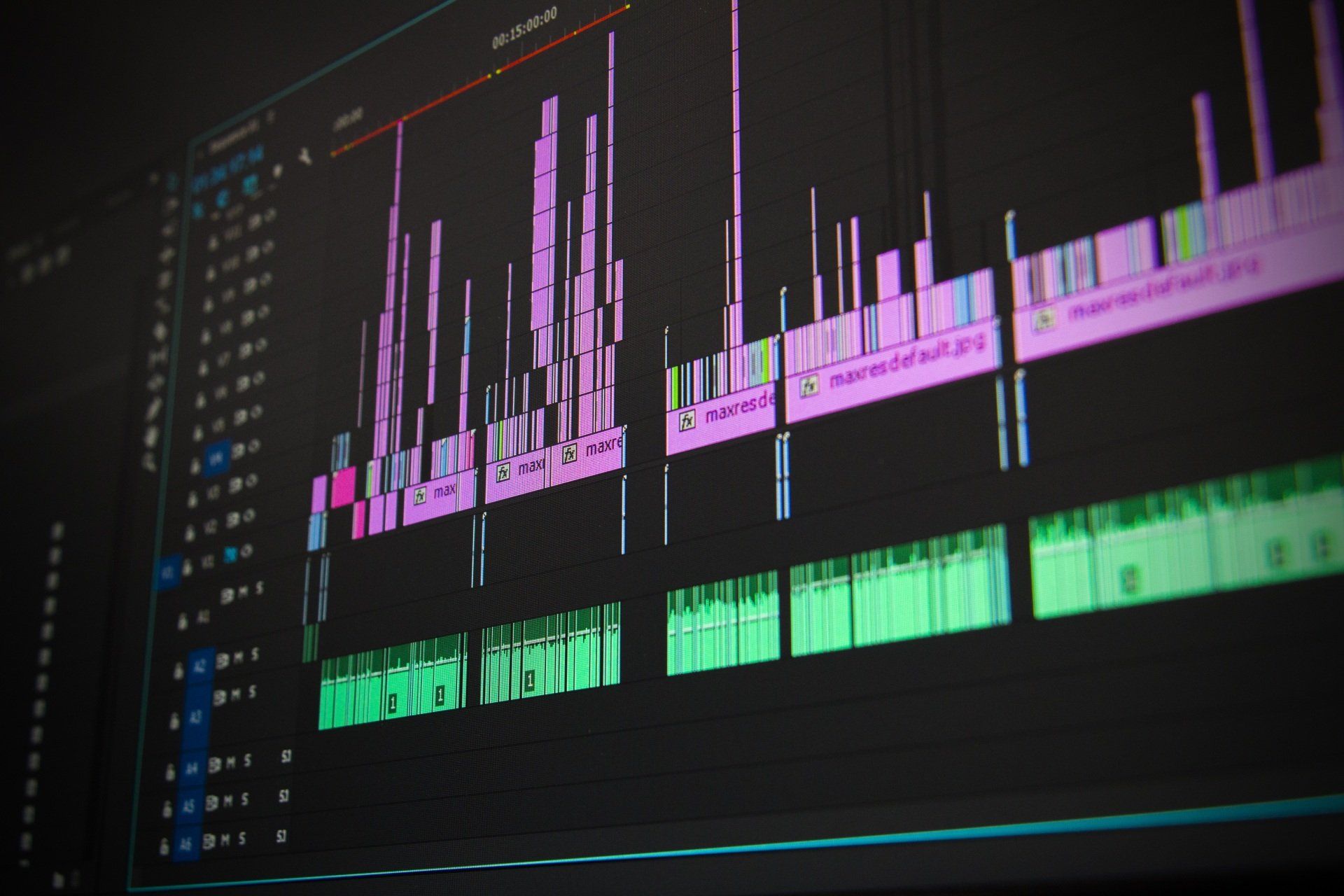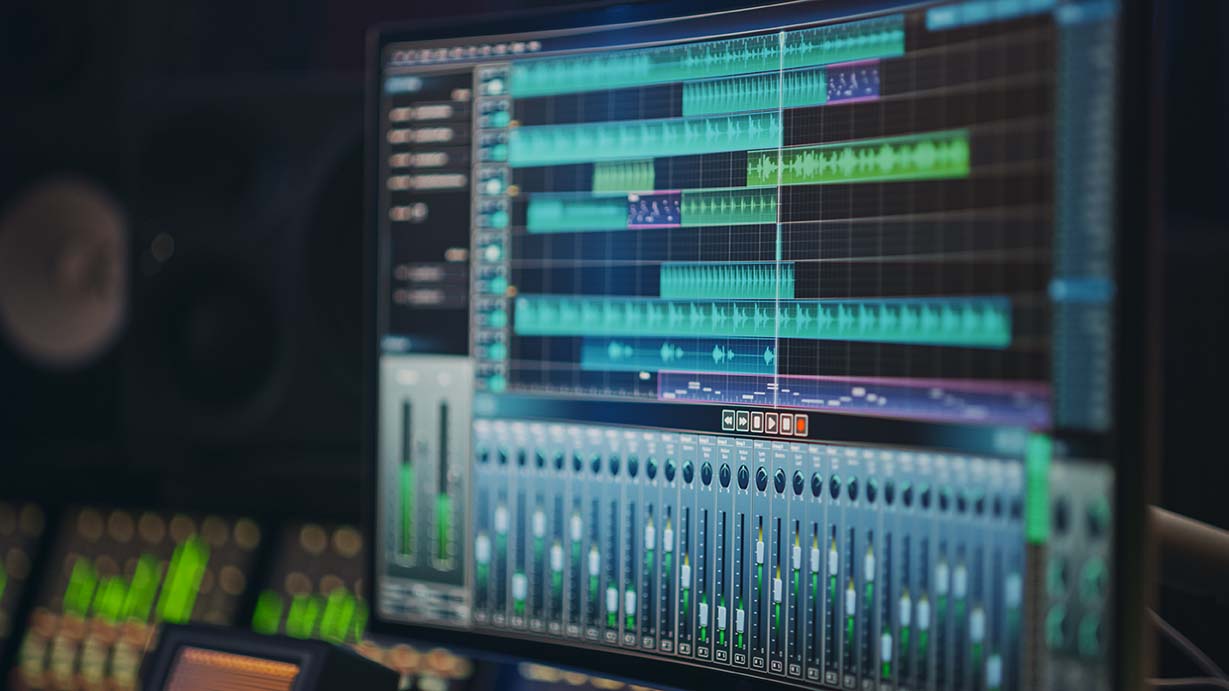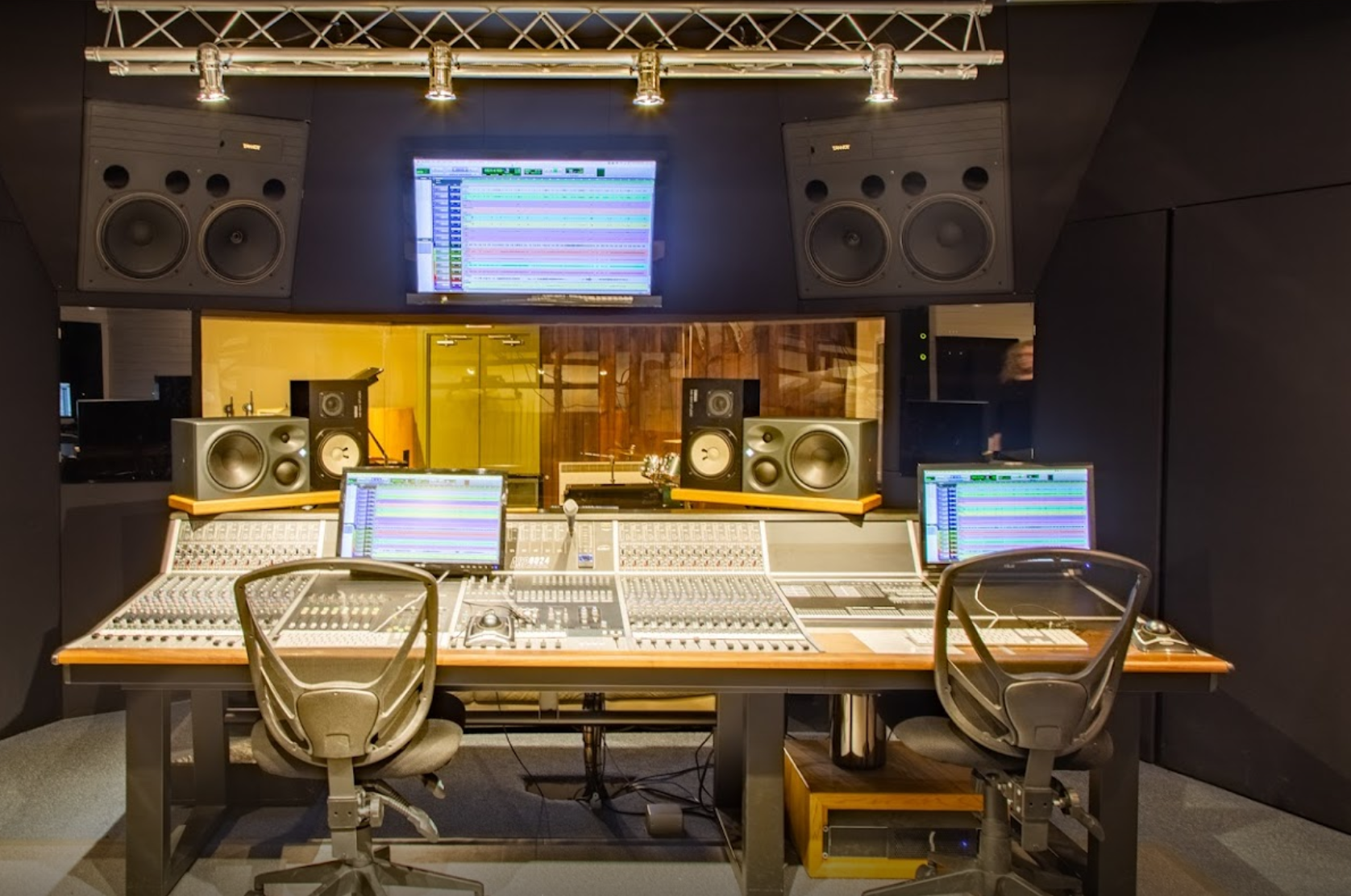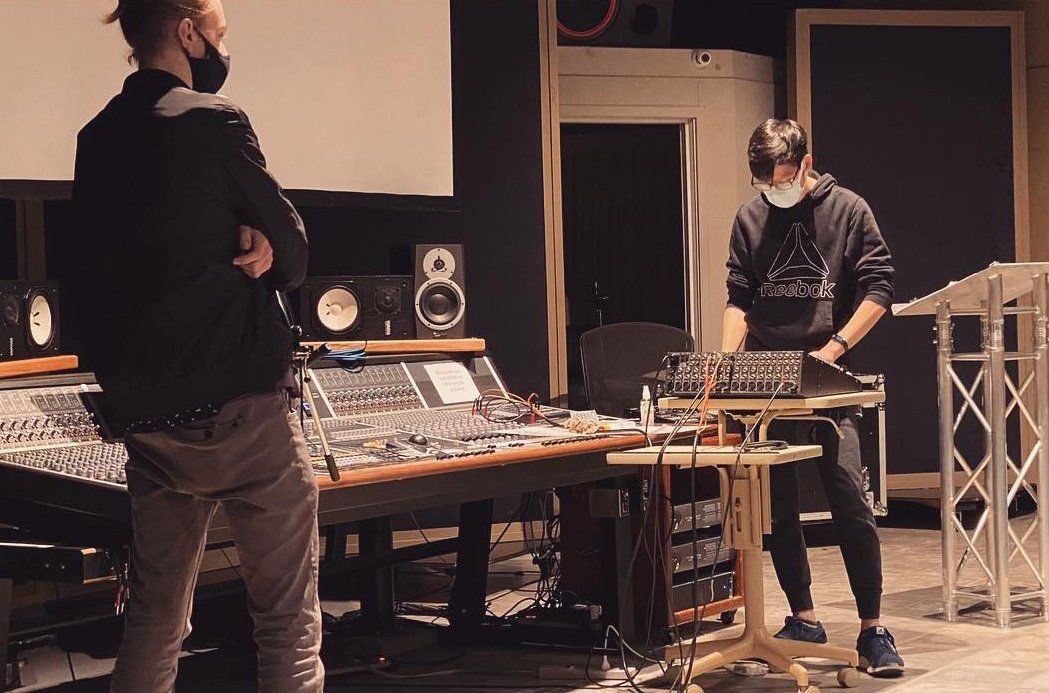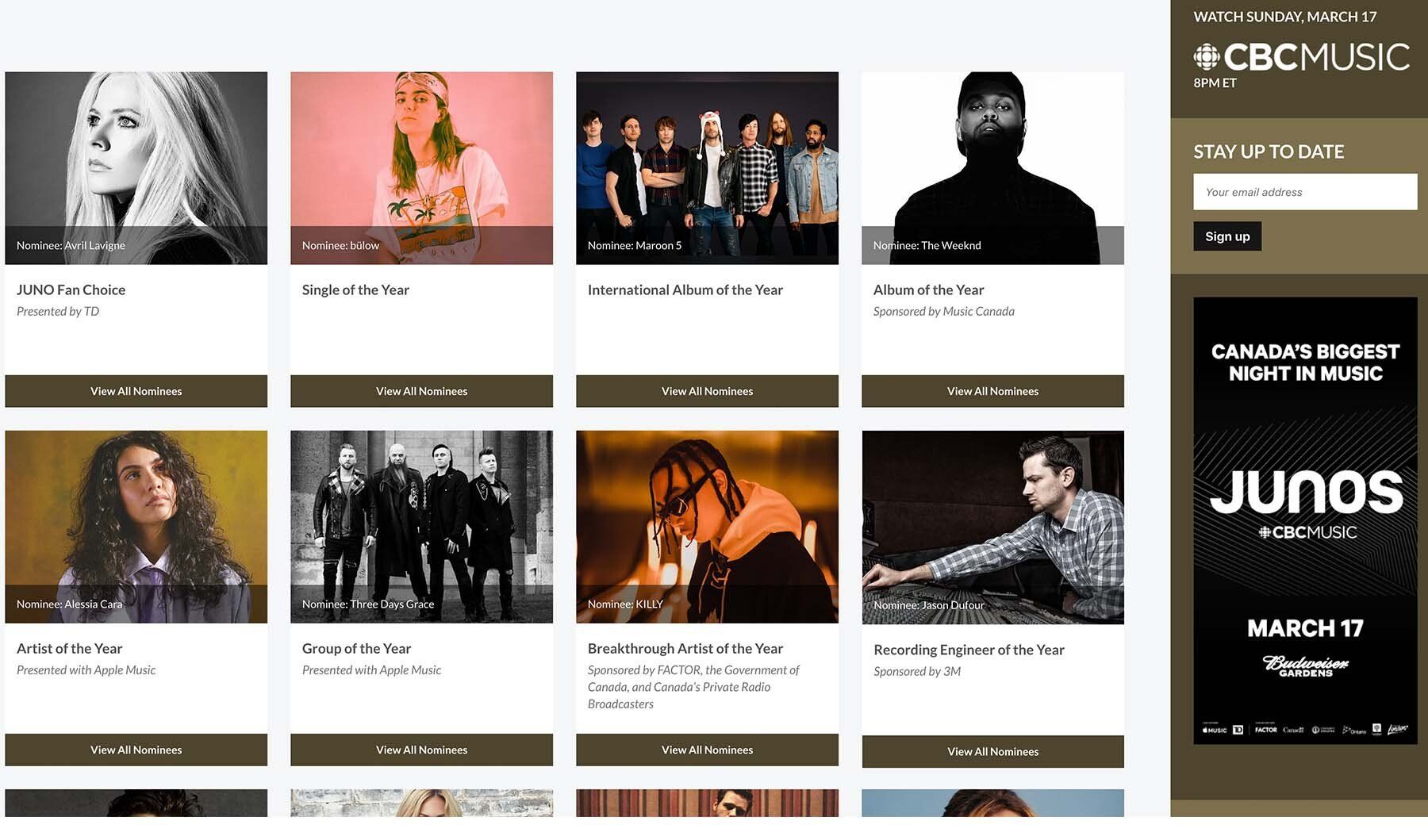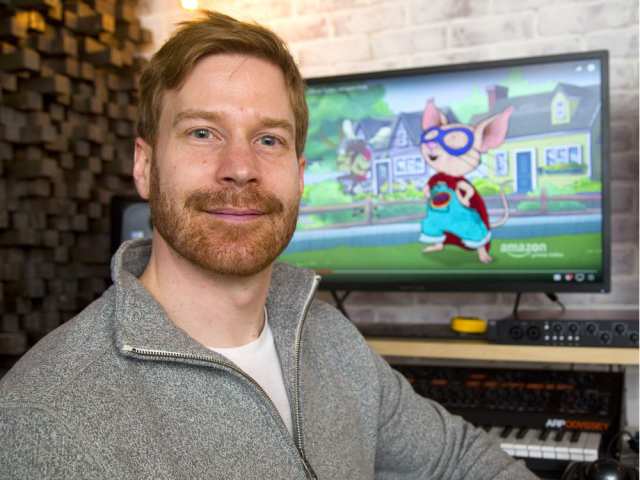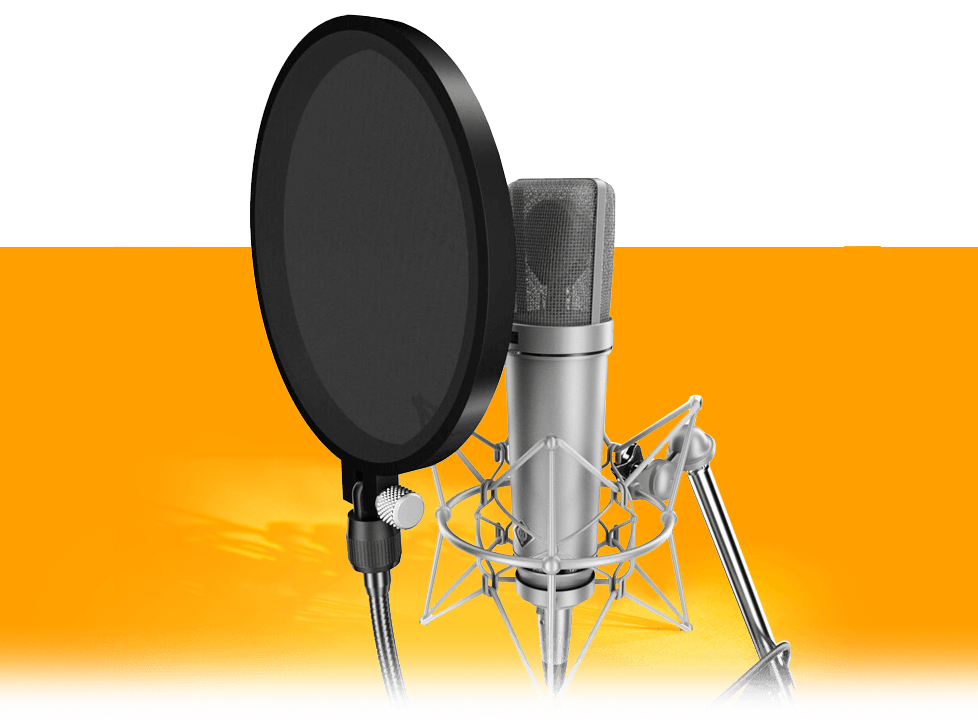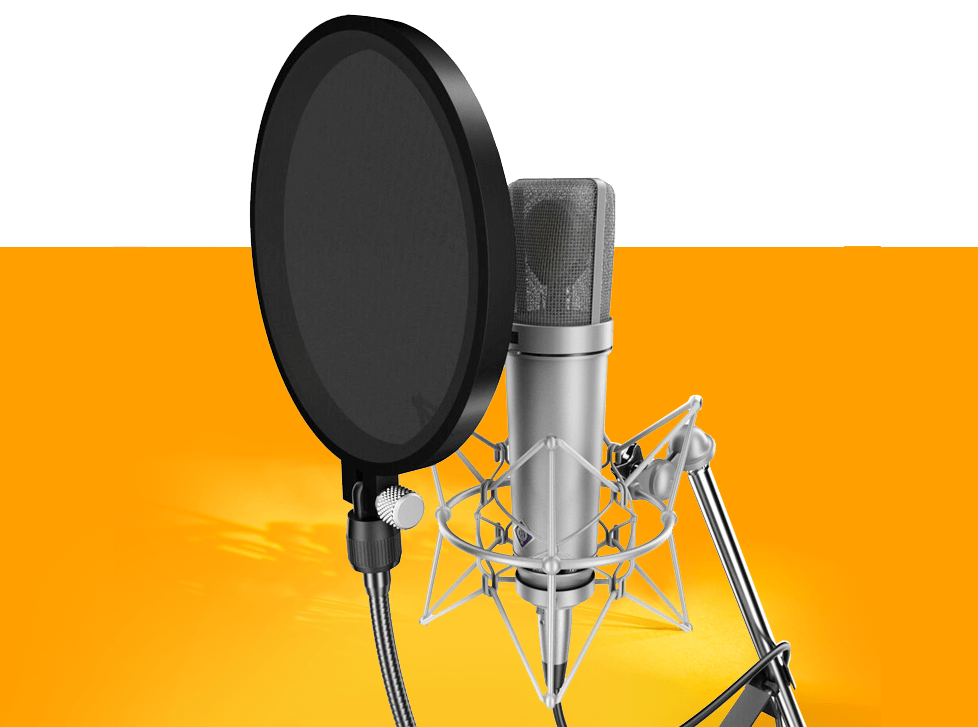OIART News
We are proud of our grads, their careers and continued achievements. Read about new graduate success, industry news, audio engineering updates and other OIART news.
Read News by Categories

By Jeremy Alves
•
July 31, 2024
Music festivals are a perennial highlight for almost every genre of music, with fans gathering for several days to enjoy their favorite artists and summer weather. An ideal music festival also goes beyond the music itself and combines the genre's overall culture, artistry, and community. Continue reading to learn what it takes to put on these massive events.
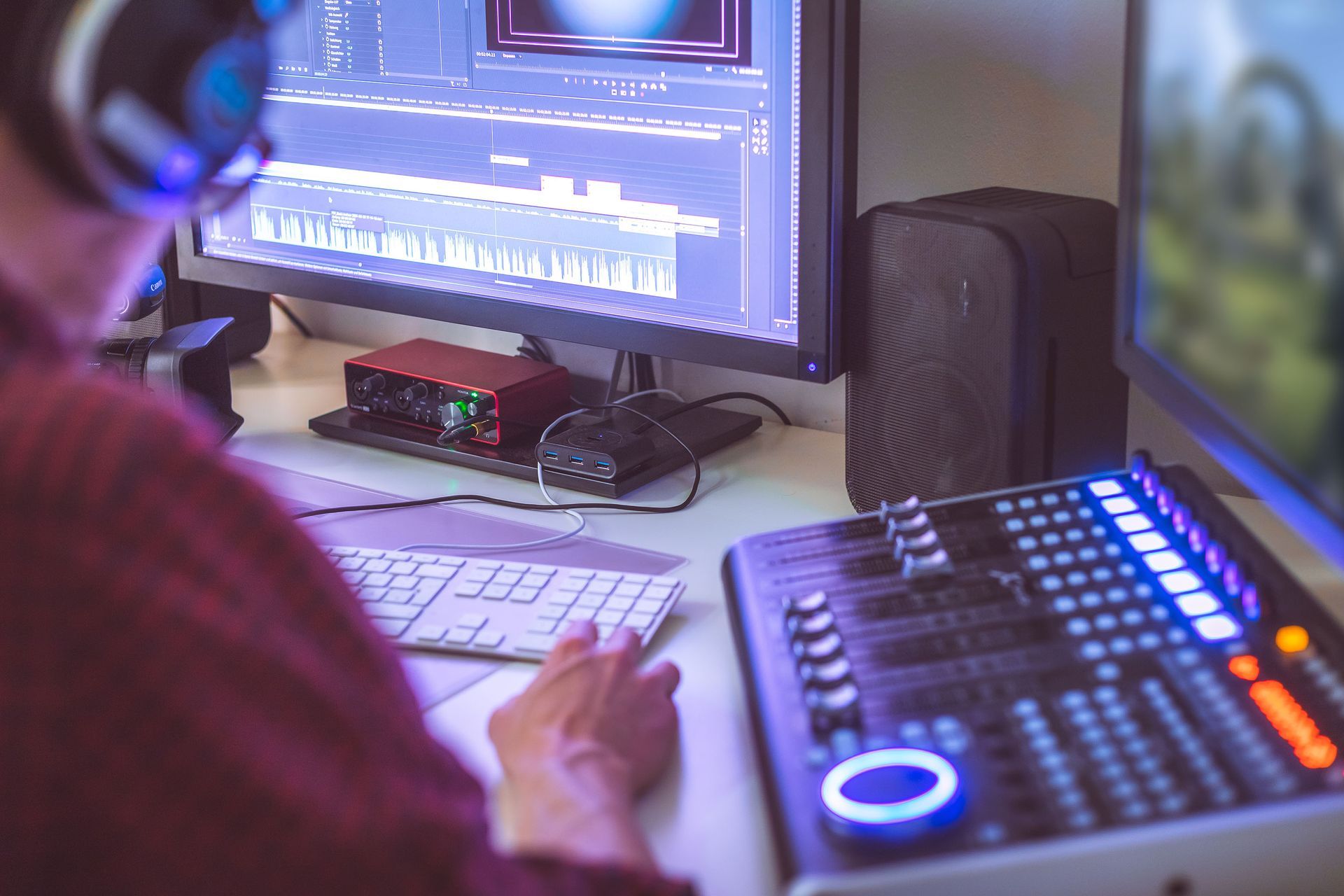
By Jeremy Alves
•
June 28, 2024
Working as an audio engineer can be an extremely rewarding career as you work with a team to launch an entire gaming experience for others to appreciate. However, you’ll need to start learning and keep growing throughout your career to succeed. Continue reading to learn what it takes to start your audio engineering career.
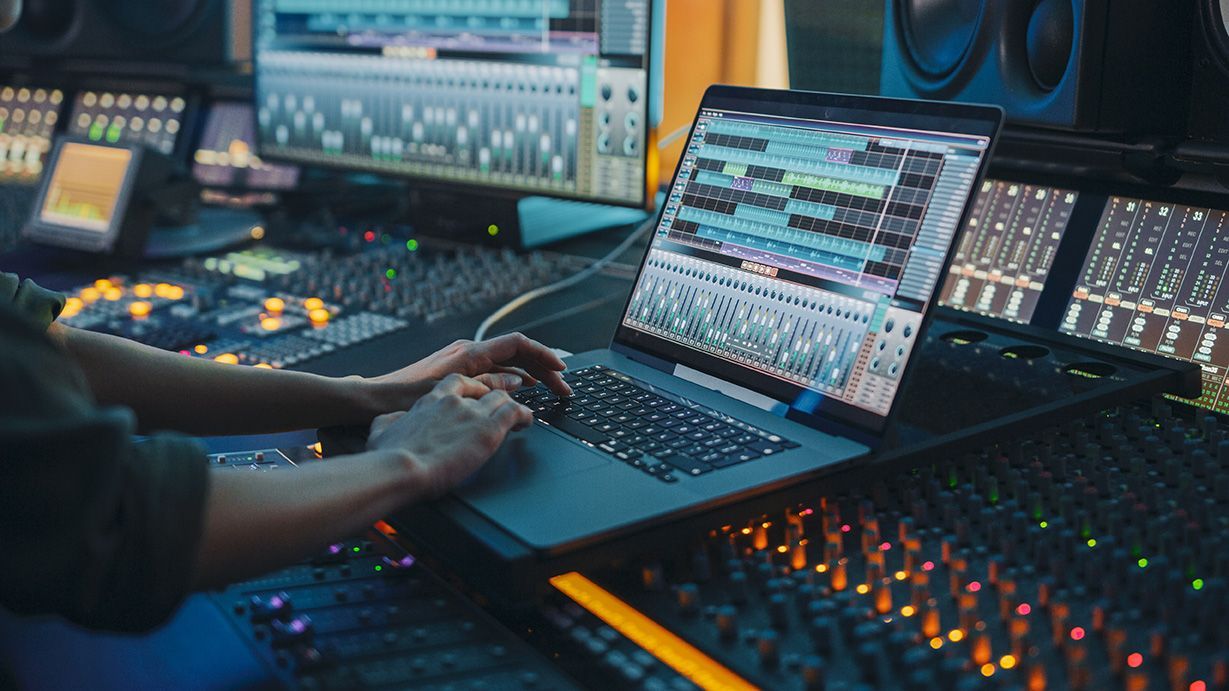
By Jeremy Alves
•
May 27, 2024
Working as a music producer is a perfect career choice for someone who likes every day to be a little different than the last, wants to blend creativity with technical aptitude, and loves the artistry of crafting a track that brings an overall vision to life. Learn more from OIART to see if music production is a fit for you.

By Jeremy Alves
•
April 25, 2024
Enhancing your music production skills is an ongoing process of exploration, learning, and growing throughout your career. Prioritizing staying on top of the latest tech, musical trends, and optimizing workflows will go far in building a lasting career. Learn from the experts at OIART on how to enhance your skills.
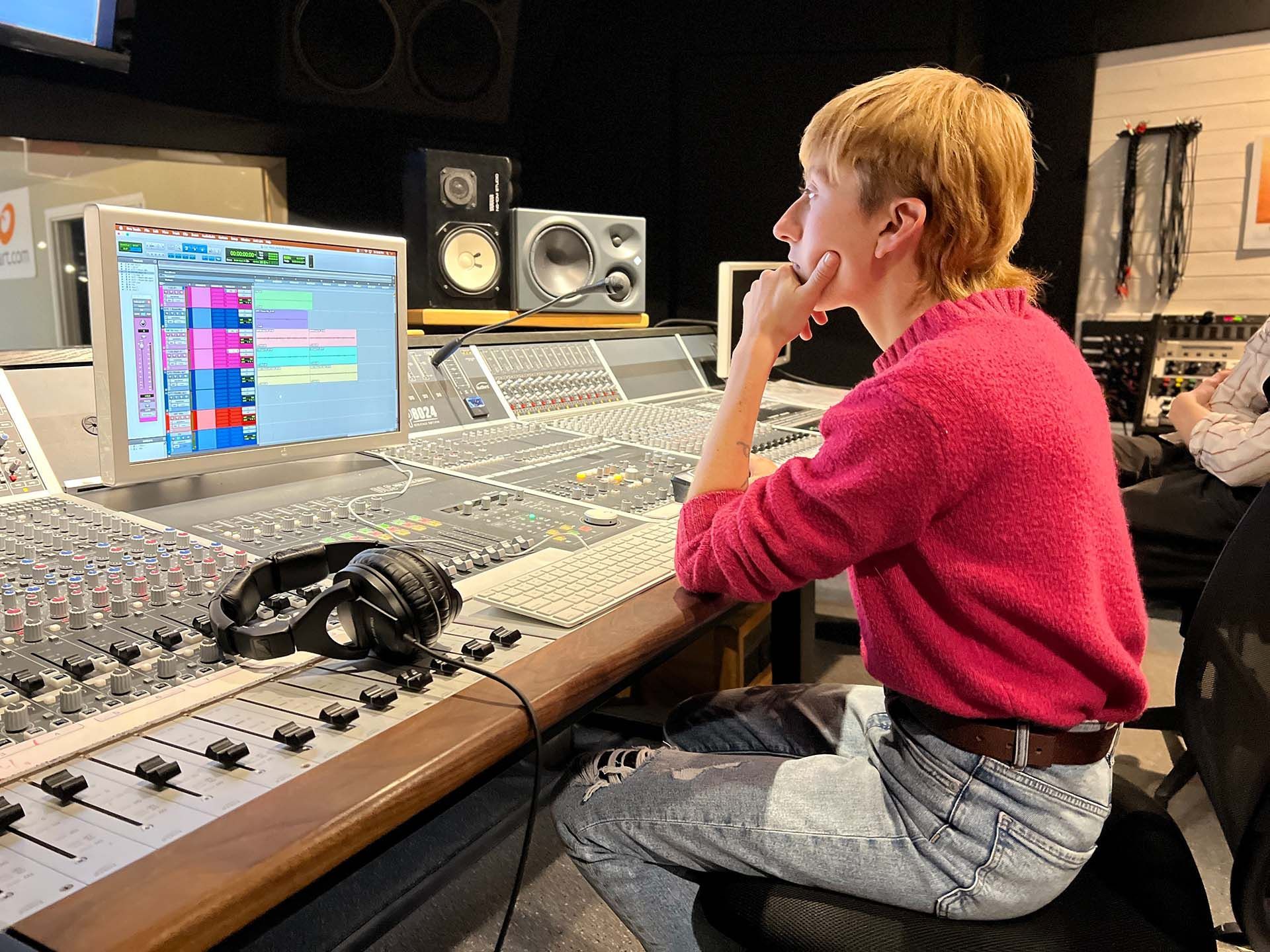
By Jeremy Alves
•
October 2, 2023
Are you looking to improve your music production skills? Check out OIART’s 5 recommended ways to improve. Whether you are a beginner, or a music engineer, OIART outlines steps to boost your skills and offer knowledge on what it takes to become a music producer. Check out our music engineering programs today!
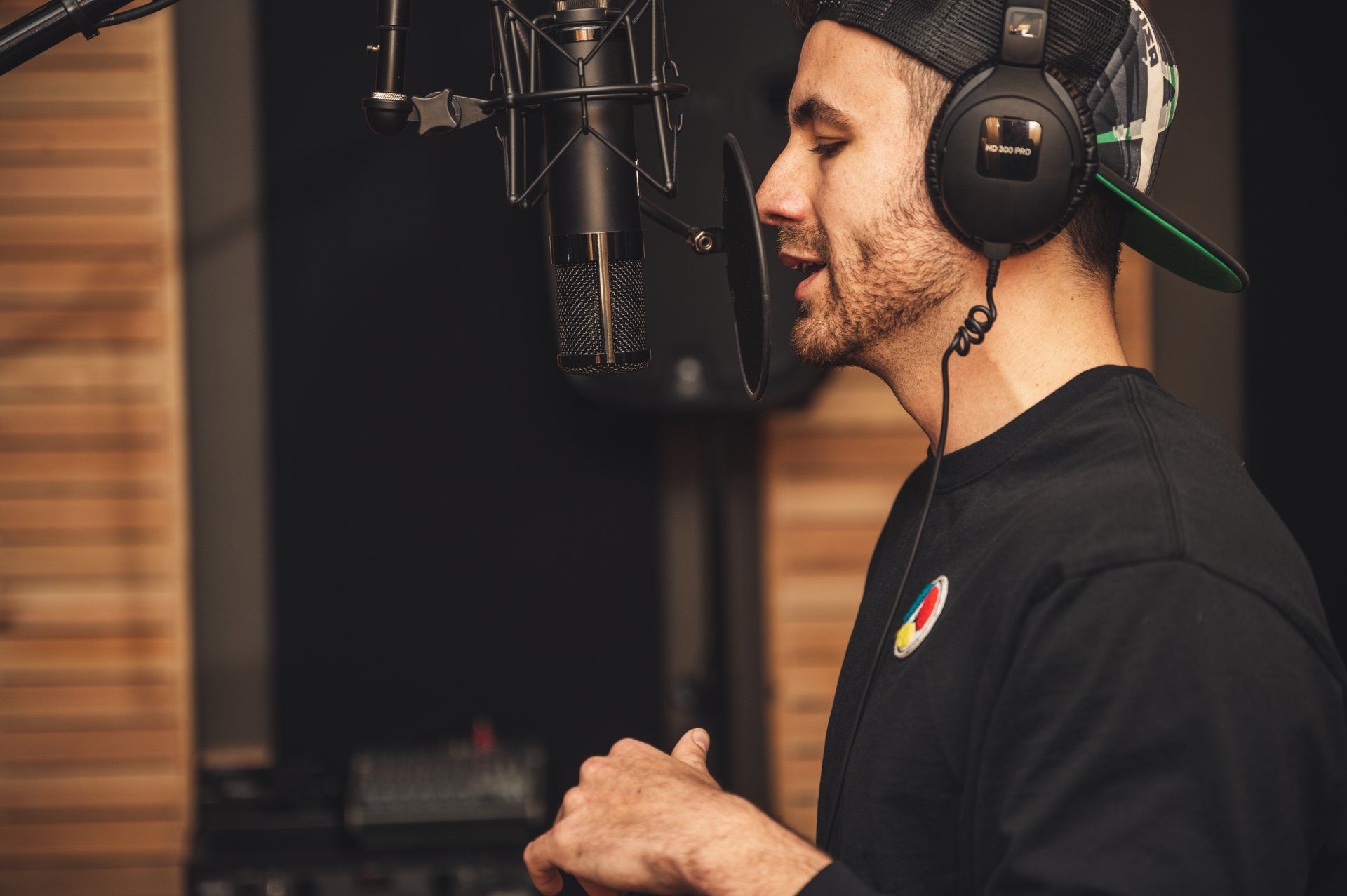
By Jeremy Alves
•
April 4, 2023
Audio engineering is a diverse field ranging from working with recording artists to making sure live broadcasts are problem free. An audio engineering career is a unique blend of audio, technology, and science that can be a perfect choice for many people. The U.S. Bureau of Labor Statistics (BLS) estimates the career growth of broadcast, sound, and video technicians to grow by 10% between 2021 and 2031 , which is faster than average job growth. However, it’s worth noting this estimate excludes related fields you may also explore after attending an audio engineering school that may experience even more significant growth. Pursuing a career in audio engineering typically begins with formal education. The course you attend will lay the foundation for a fulfilling and lucrative career working with specialized technology, the science of sound, and the world of audio. As such a diverse field, you may help set up equipment for major sporting events or work with your favourite singer as your career progresses. After graduation, you’ll have a wide range of opportunities to choose from based on your interests. Are you wondering what options you’ll have post-graduation? Keep reading to learn what you can do with an audio engineering diploma to help you decide if it’s the right choice for you. What Exactly is an Audio Engineer? Audio engineering is diverse, with engineers typically working with live broadcasts or audio recordings. Attending an audio engineering program will provide you with hands-on training with high-end equipment and leading-edge software. You’ll also attend lectures covering audio theory, including the fundamental sciences of sound and how to produce excellent sound. Audio engineering is often confused with audio production, which is undoubtedly related but still distinct fields. Audio production is concerned with the overall product, which might be producing a track for a recording artist or finalizing a podcast for publication. On the other hand, Audio engineers work with a range of hardware and software to capture high-quality audio for broadcast or recording. In the context of live performances, audio engineers also make sure the venue’s system is producing high-quality sound. Expect Salaries in Audio Engineering Audio engineering is a diverse field that presents several opportunities for income potential. The range of salaries depends on your focus area, experience, and industry. For example, in the United States, sound engineering technicians earn a mean annual wage of $67,360. However, if we look at the percentile breakdown, the top 10% of earners have a salary of $124,690 . So your career may start at or below the average, but you’ll have tremendous potential for growth throughout your career. Different industries will also offer different pay, even for similar job titles. For example, working with recording artists is competitive, often creating lower salary offerings, while other less-competitive industries tend to offer higher salaries to attract talent. What Are Possible Careers in Audio Engineering? Audio engineering is a broad field that extends into several industries. Some of the job titles you’ll see that an audio engineering diploma will prepare you for include: Broadcast Engineer Audio Engineer Acoustic Engineer Live Sound Engineer Audio/Visual Engineer Sound Engineering Technician Production Engineer Mastering Engineer Equipment Technician Acoustic Consultant And plenty more There’s a lot of overlap between the above job titles when it comes to the core skill set they require. However, your diploma will prepare you to handle the fundamental responsibilities of each of them, which may then be applied differently depending on the career you pursue. Let’s take a closer look at a few popular career options for graduates of audio engineering programs. Sound Engineering Technician A sound engineering technician utilizes high-end equipment and software to record sound with the best possible quality. Depending on the exact position, sound engineers may work closely with music producers or with other engineers to create a fine-tuned end product. The BLS estimates that 50% of sound engineers earn a salary of sound engineering technicians is US$60,500 . As discussed earlier, salaries for this field can reach up to $124,690 as you gain experience and explore new career opportunities. Therefore, pursuing a diploma in audio engineering allows you to start gaining experience after graduation and build your career. Be aware of the job title ‘sound technician,’ which is often an entry-level position that often leads to a sound engineering technician role. The significant difference is that you’ll generally work with engineers to gain hands-on experience before becoming an engineer yourself. Broadcast Technician A broadcast technician is primarily responsible for transmitting audio or video signals for radio and television broadcasts. This specialization requires a robust working knowledge of the electronic equipment involved with broadcasting. In addition, you’ll need to understand how to configure and control the equipment to regulate volume, signal clarity, and signal strength. The BLS estimates the mean annual wage at US$51,280 , while the upper 10% earn US$90,850. Salaries are also further differentiated by industry, with the top earners working in the Federal Executive Branch and the second highest working in advertising. Attending a school of audio engineering will prepare you with the fundamentals of becoming a broadcast technician. However, you’ll likely begin in an entry-level position as you gain experience specific to broadcasting. Audio/Video Equipment Technician An A/V equipment technician works heavily with all the hardware and equipment involved in audio. An A/V technician will need a strong understanding of setting up, configuring, and dismantling the following gear: Video monitors Audio monitors Microphones Sound and mixing boards Video cameras and servers Specialized equipment for concerts, conventional, and sporting events You may still work with software, but this position is strongly focused on the equipment side of engineering and is ideal for someone more interested in audio hardware. The BLS estimates the mean annual age for A/V equipment technicians at US$55,310 , with the top 10% earning $90,180. Software and legal are the two highest-paying industries for an A/V technician. Related Careers in Audio We mentioned earlier that audio production is a similar yet different career in the world of audio. Some students enroll in an audio engineering program but discover they’re more interested in the production side. Fortunately, OIART also offers an audio production program to allow students to make an easy change. Other related careers in audio engineering include: Electronics engineering and repair Electronics testing and quality assurance Installation and repairs of audio equipment You may discover that you’re more interested in the above careers as you start working in the field. Fortunately, your audio engineering diploma will still help prepare you as you’ll have a strong understanding of electronics and the science behind their work. How Can You Prepare Before Attending a School of Audio Engineering? You’ve decided to attend an audio engineering program; what can you do before your first day? There are a few ways you can start preparing and exploring before you take a single course, such as: Experiment with DAWs: Digital Audio Workstations (DAWs) are at the heart of music and audio production. Many audio engineers will need a solid working knowledge of how to use them, especially those specializing in mastering. Many DAWs, such as Ableton and FL Studio, offer free trials so you can explore the software before you start classes. Learn more about specific career responsibilities: We’ve given you plenty of foundational knowledge, but there’s still a lot to learn about specific careers in audio engineering. Did any of the jobs we’ve discussed catch your attention? Dive deeper and learn everything involved to help you decide which career path is right for you. Take preparatory classes: If you’re in high school, take electives related to audio engineering to help build a strong foundation. Computer science, physics, and electronics courses will each help prepare you for audio engineering. If you’re no longer in high school, you can look around your area for local classes covering these topics. Preparing ahead of time will help you identify and overcome gaps in your knowledge before your course begins. Then you can focus on what’s truly interesting instead of catching up on the foundational skills. Earn Your Audio Engineering Diploma with OIART Audio engineering is an exciting industry and an excellent choice for those interested in audio, technology, and how they overlap and interact with each other. Earning an audio engineering diploma imparts you the right skills, training, and credentials to start your new career. The Ontario Institute of Audio Recording Technology (OIART) is an industry-recognized institution that offers diplomas in audio engineering, music production, and other specialties throughout the world of audio. Are you ready to take the first step toward becoming an audio engineer? Apply today for free .
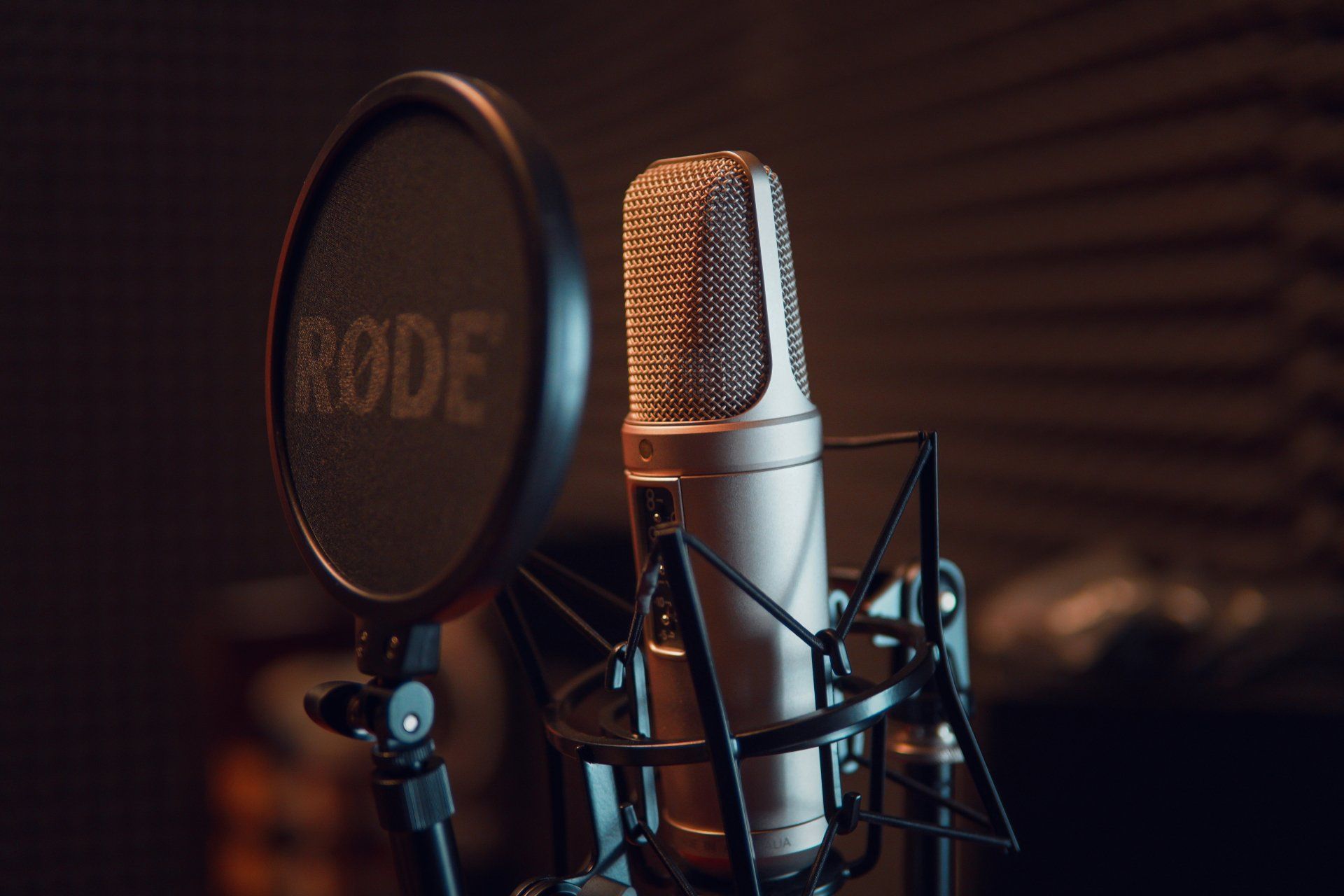
By Jeremy Alves
•
March 15, 2023
Pursuing a career in audio engineering and sound production can be highly rewarding for people with a technical and creative mindset. Sound production and engineering are two distinct fields, but both involve applying technical knowledge and skills to create a high-quality end product. Attending an audio engineering or audio production program prepares you to begin your new career in the world of sound. You’ll learn the skills, theory, and mindset that make a successful engineer or producer. Working in music or audio is undoubtedly appealing, but you should have realistic expectations about what working in the field will actually be like. For example, how much will you earn? What exactly will you do? What’s the best way to get started? Keep reading to learn the answers to these essential questions to help you decide if a career in audio is the right choice for you. What is an Audio Engineer and Sound Producer? An audio engineer and sound (or music) producer are two distinct roles that often share responsibilities and work closely together. We’ll focus mainly on engineering, but plenty of this information also applies to producers. Let’s briefly define the differences between these roles: An audio engineer focuses on the technology, science, and electronics involved in audio recording or broadcasting to ensure the highest possible quality. A music producer takes a big-picture approach and applies technical aptitude and creativity to guide a project's overall direction and vision. Now let’s focus on audio engineering to help you get a feel for what you can expect if you choose this career path. What Salary Can You Earn in Audio Engineering? Audio engineering is a diverse field with several applications throughout various industries. Therefore, your salary will depend on your chosen industry and your experience, skillset, and soft skills. Overall, the U.S. Bureau of Labor Statistics estimates the mean annual wage of a sound engineering technician is US$67,360 . In addition, the top 10% of earners bring in $124,690, while the bottom 10% earn $29,110. These figures demonstrate the significant range of possibilities and the potential growth you can expect throughout your career. Where Does an Engineer or Producer Work? Audio engineers are needed in nearly every industry, including some you might not anticipate. If we drill down into the BLS report, we see that the top-earning sound engineering technicians work in the following industries: Accounting and Tax Preparation ($98,120) Advertising and Public Relations ($94,260) Computer System Design ($91,990) Each of those industries has a low concentration of engineers but demonstrates how nearly every industry needs your future skill set. The industries with the highest concentrations of audio engineers are more aligned with what you expect: Sound Recording Industries ($66,020) Motion Picture and Video Industries ($85,020) Performing Arts Companies ($66,460) Combined, we see that the more specialized audio engineers who work in unexpected industries have a higher mean wage than the industries that first come to mind. Remember this takeaway as you consider audio engineering and take the first steps toward building your career. Note: All of the above figures are USD and represent the annual mean wage per the BLS . What is the Lifestyle of Someone Working in Audio? Deciding on your new career isn’t just about the money and industry; you also need to consider your daily workday and environment. So what will a ‘day in the life’ of an audio engineer look like? As expected, your daily workday will vary depending on your industry and your company. Let’s touch on a few common industries and explore how your everyday working environment might look: Music and sound recording: You’ll work alongside producers, artists, and other engineers to create a high-quality track. Some work days will be long, busy, and potentially stressful, while others will involve pre-production setup and configuration. You won’t likely provide creative input, but you may handle mixing and mastering to fine-tune the song before it’s finalized. Motion picture and video: You’ll spend some workdays on the set of a TV show, movie, or live broadcast. On these days, you’ll make sure all equipment is configured correctly and operating optimally to capture sounds. On other days, you’ll work alone or with other engineers planning how to set up equipment to record audio properly. Performing arts: Live audio engineering is an entire skill set that uses available equipment to deliver high-quality sound to the entire venue. Depending on the project, you may also record during the live performance. Workdays during showtimes will be busy and potentially stressful, and you’ll be expected to fix any issues that may arise. Pre-production will involve thorough setup, configuration, and testing of a venue’s system. Did you notice the common theme? Workdays will be highly varied in each of these industries. You’ll have a mix of long, busy days combined with pre or post-production work days focusing on setup or mastering. Ultimately, the lifestyle of an audio engineer is one in which nearly every workday will be different from the last. How to Get Started in Audio Engineering If everything above sounds like your dream job, how can you get started becoming a working audio engineer? Read on for a concise overview of going from inexperienced to working in the field. Explore the Field First (Optional) You can enroll in a sound engineering college immediately, but it’s worth stepping back and exploring the basics first. An easy and affordable way to explore audio engineering on your own is by exploring Digital Audio Workstations (DAWs). A DAW is the heart and soul of any sound or music project; it’s where all recording tracks and MIDI compositions live together, and where everything is mixed and mastered before being finalized. Several DAWs offer free trials with limitations, such as the inability to export or re-open projects. Fortunately, you can still explore them within these limitations. The goal is to see how well you learn the new software and how much you enjoy working with it. Some popular DAWs with free trials are: Ableton Live FL Studio Pro Tools Each of the above DAWs is professional-grade and is the go-to standard in specific industries. Learn the basics, experiment with mixing and mastering, and play with different plugins to alter sounds. If you’re enjoying the process, it’s worth taking the following steps toward becoming an engineer. Enroll in an Audio Program An audio engineering program is typically offered by a specialized educational institution, although some universities also offer audio programs. The overall purpose of your chosen program should be to prepare you for working in the field — it’s not just about earning the degree or certification. Look for schools that provide hands-on experience in a studio environment. The course should also include learning the theory and science behind sound and how electronics work at a fundamental level. Upon completion, you’ll be ready to find an entry-level position working in the field. Ideally, your school will also help with job placement. Continually Develop Your Skills The world of audio never sits still. As an engineer, you’ll need to stay on top of the latest electronics and technologies that impact your job. So keep exploring what’s new and see how it can improve your job. Additionally, even though your formal training will prepare you for working, you’ll likely still have plenty of opportunities to deepen your knowledge and learn additional skills. Education never truly stops in audio engineering. Keep learning, practicing, and growing throughout your career. Seek an Internship Internships are typically unpaid positions that provide real-world experience working alongside engineers and technicians. Fortunately, you don’t need to wait until graduation to start an internship — see what’s available in your area so you can attend classes and work in the field simultaneously. It’s also worth noting that paid internships exist, but they’re generally harder to find and competitive. View internships with a long-term perspective, the skills you can learn working closely with a studio or movie production company can do wonders for your career in the long run. Find an Experienced Mentor Mentorship is valuable in every field and perhaps more so in audio engineering. Every experienced audio engineer has knowledge and skills refined throughout their career. Finding a mentorship lets you learn from their work experience and rapidly advance your training. Internships can help you find a mentor. You’ll get to know everyone on the team, and throughout your internship, you may identify highly skilled audio engineers on the team. You can then approach them and ask if they’d mentor you — you might be surprised how many professionals want the opportunity to share what they’ve learned. Begin Your New Career with OIART’s Audio Engineering Programs A career in audio engineering can be the dream career for someone interested in audio, technology, and electronics. Most work days will be entirely unique, and you’ll have the fulfillment of contributing to a polished final product, whether it’s the next top 10 track or an acclaimed indie movie. You can start your career in sound engineering faster than you might think by attending a specialized audio engineering program. Ready to take the next step? Go to OIART today to apply.
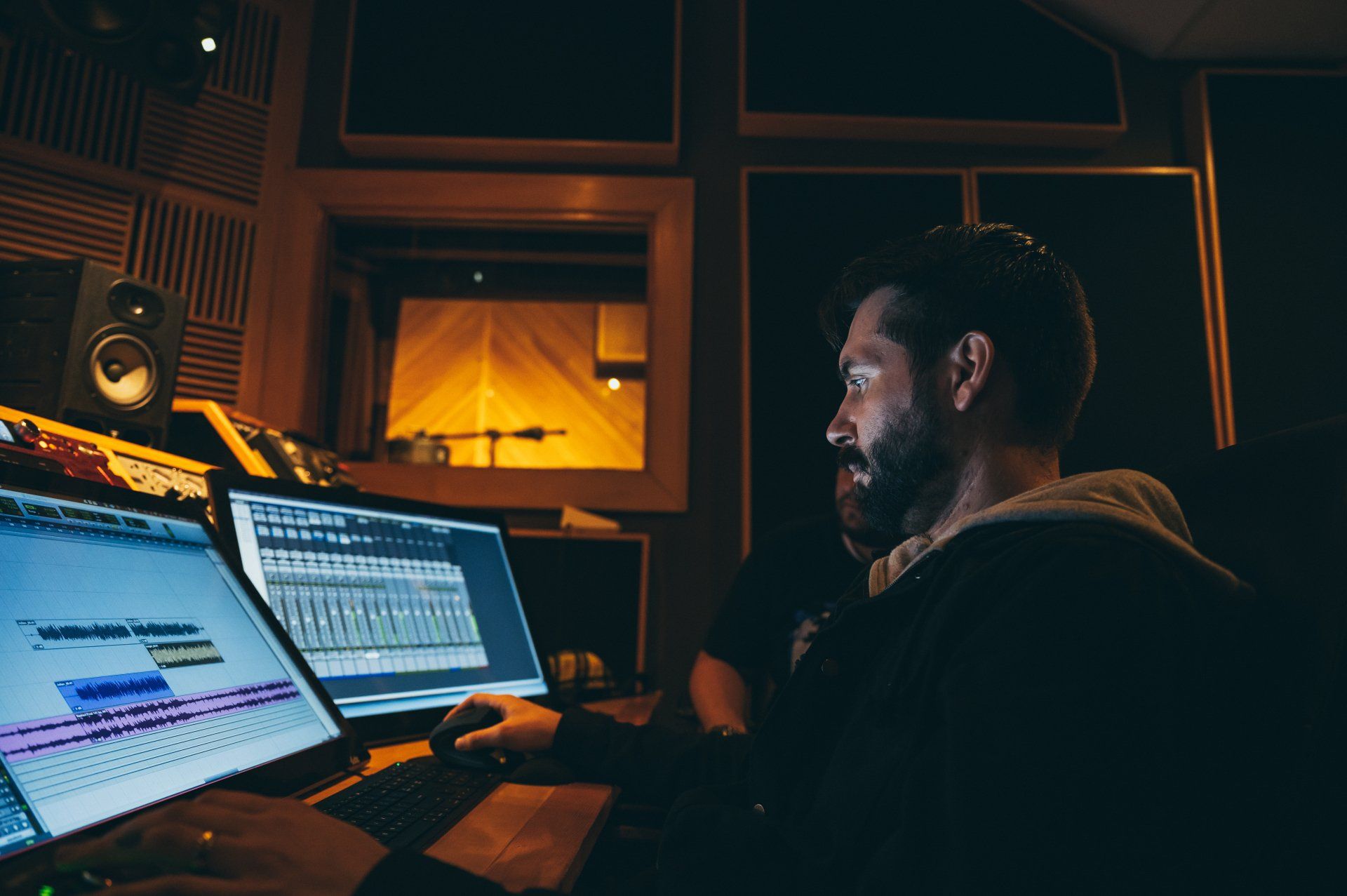
By Jeremy Alves
•
March 1, 2023
Audio engineering is a broad field of study that teaches students various skills they’ll use as they pursue various career paths. The goal of sound engineering programs is to prepare students to build their ideal career, whatever that may look like. For example, one graduate of a sound engineering course may record audio for a recording studio. At the same time, another will manage and configure the hardware involved in the live broadcast of a sporting event. Whichever career you pursue post-graduation, you’ll need a strong understanding of crucial audio engineer skills. Keep reading to learn more about how engineers use their skills; then, we’ll dive into specific skills you’ll acquire while at audio engineering colleges. How Does an Audio Engineer Use Their Skills? Audio engineers will put their skills and knowledge to work by managing all the technical components involved in recording or broadcasting audio, including music, voices, and effects. Audio engineers need a strong understanding of both hardware and software, making it an excellent career for technically-minded students. Additionally, audio engineers will need the same soft skills many other careers require. For example, an audio engineer may have periods working alone, but they’ll usually be part of a team of engineers, vocalists, and producers working towards a common goal. Therefore, understanding how to communicate and collaborate is essential. Some general job duties a sound engineer may perform that use their specialized skills include: Improving the sound quality of recordings during production and post-production Solving issues with hardware and software Removing unwanted sounds from recordings with software Coordinating with the entire team of producers, artists, and directors to create a polished final product Setting up, configuring, and testing equipment during pre-production You’ll have specific duties based on how you build your career. The mission of a school of audio engineering is to prepare you for whatever your career will call for by teaching you essential skills. Audio Engineering Skills You’ll Learn at Sound Engineering College What skills will you pick up while attending audio engineering schools? Upon completing the course, you’ll have a range of skills that will prepare you for your career as a professional audio engineer in various industries. Let’s explore common knowledge and training you’ll learn during your education. Digital Audio Workstation Most engineers will spend plenty of time in Digital Audio Workstations (DAWs). Music and sound production depend on DAWs to manage recordings, compose music, mix different channels, and master the track for publishing. Audio production is highly focused on DAWs, but audio engineering programs will also teach you how to use this software to perform critical duties. Most industries have a DAW that’s considered the standard, such as Ableton, Pro Tools, Logic, or FL Studio. It’s worth learning a few and specializing in the DAW your future industry typically uses. An engineer will ensure all hardware is connected correctly and configured to feed audio to the DAW. Additionally, you’ll learn how to mix channels, master tracks, and may even take on the producer role in some cases. Hardware Management Hardware is involved in any audio project that involves recording or broadcasting. Microphones, monitors, mixing boards, and other specialized gear are vital to the project's success. Audio engineers are the go-to experts on the team for setting up, configuring, and testing hardware. During your education, you’ll learn the ins and outs of various types of equipment, how they interact with each other, and how to set up a complete production environment. A few types of hardware you’ll use are: Studio monitors, both for the artists and producers Monitor isolation pads Acoustic panels Bass traps Audio interfaces MIDI controllers Mixing boards Pop filters Cables and connectors Mixing Techniques Audio mixing involves taking all recordings and MIDI tracks in a project and blending them together to create the perfect sound for the project. Mixing is the intersection of technical knowledge and creativity, as you’ll need to know what sounds great and how to make it happen with the tools at your disposal. Mixing itself is an entire specialty, and in large projects, an engineer might focus solely on mixing tracks. There are seemingly endless mixing techniques to explore, but some of the most common techniques are: Panning: You don’t usually want every audio track to play equally on both left and right channels, known as the center. Panning involves tactfully altering which side the audio will play from, such as making closed high hats play mainly on the left. Auto-panners are also commonly used to provide a more dynamic experience. Reverb: Reverb adds depth and breadth to the track, filling up more of the audio spectrum. Strategically adding reverb, such as to the snare, can enrich the sound and help work toward the project's overall vision. Compression: You’ll see compression used in various ways throughout your career. Generally, compression adjusts a sound’s loud and quiet aspects, allowing whispers to gain volume without amplifying everything else on the vocal track. You may also use compression to amplify the thickness of a kick or the intensity of a bassline. Noise Reduction: Sometimes, the recording will capture unwanted background sounds. Noise can also occur due to a misconfiguration in hardware, but it isn’t severe enough to warrant re-recording. Noise reduction is a technique focusing on removing what you don’t want while keeping what you do. Filtering: Specific software allows you to filter a recording or MIDI track to modify the overall sound. Some filters will cut off everything above a chosen frequency, some will cut off everything below it, and complex filters will pick and choose what to remove. Using filtering tools effectively can significantly improve a track. Equalizing An equalizer (EQ) is a specialized type of software within the DAW that enables you to monitor the entire spectrum of audio based on specific frequencies. You’ll then fine-tune how specific frequencies are played, such as lowering the high end and increasing the low end for a kick. The term EQ generally refers to software, but many hardware components modify sound frequencies during recording or broadcasting. For example, mixing boards, amps, and guitar pedals equalize sound before it reaches the DAW. Learning a range of specific EQ techniques helps you improve the quality of a recording or the track overall. In addition, you’ll often work closely with the music producer to help modify tracks to accomplish the producer’s overall vision. Using an EQ involves mastering, but mastering is not limited to an EQ. We’ll explore mastering more below. Mastering Mastering is usually the final step in a project before the track is exported and delivered. First, composition, recording, and mixing have all been completed to achieve the project's overall goal. Then, mastering fine-tunes everything, producing excellent sound quality on any equipment while also working towards the project's overall vision. EQs are an essential tool in the mastering process. An engineer may apply an EQ to every individual track to ensure no frequencies overlap unintentionally, alongside mastering the master channel to produce ideal output. Other software tools may also be put to work, such as limiters or adaptive compressors, to improve the quality of the result. Testing is an essential step in the mastering process. Few people will listen to the result on high-end studio monitors, and most speakers and headphones have built-in equalizers that will modify how your track sounds. Anticipating these variances is essential to having the end product sound great wherever it’s played. Acoustics Any project involving recording or broadcasting will require a strong understanding of acoustics. For example, a recording booth will need to only capture vocals or instruments, not echoes, and a venue will aim to provide a great experience to everyone in attendance. Live sound engineering courses impart both hands-on training with hardware alongside teaching the science of sound. First, you must understand the scientific principles of sound so you can adapt to any environment. You’ll then put these principles into practice as you set up, configure, and test hardware for a recording or live sound project. Music Theory Music theory is complex, and an audio engineer doesn’t usually need to know every principle and term. However, it’s a good idea to have a strong understanding of the basic principles of music theory, especially if you plan to work within the music industry. A sound engineering course will impart a firm grasp of terms like tempo, meter, and keys. You may also explore ideal chord progressions, the Circle of Fifths, and other components of music theory that help you contribute to how pleasing the final product sounds. Soft Skills Everything we’ve discussed above is specific to the world of audio, but to succeed in the industry, you’ll also need to work on your soft skills. Generally, soft skills describe elements of your job that aren’t directly related to your core roles but are still crucial to learn. Important soft skills for an engineer include: Communication: How well can you work within a team? Can you take criticism well? Can you convey specific tasks you need to complete to move forward with your own responsibilities? Adaptability: Sometimes things don’t go according to plan; how well can you maintain a level head when problems or roadblocks arise? Can you stay calm and re-evaluate how you can handle your responsibilities to help the project stay in motion? Time Management: You’ll typically have deadlines for specific tasks but may not have someone watching your every move to ensure they’re completed. How well can you work semi-independently to accomplish specific responsibilities and keep the project on track? An audio engineering school will teach you how to succeed in your new engineering career by being an excellent person to work with.
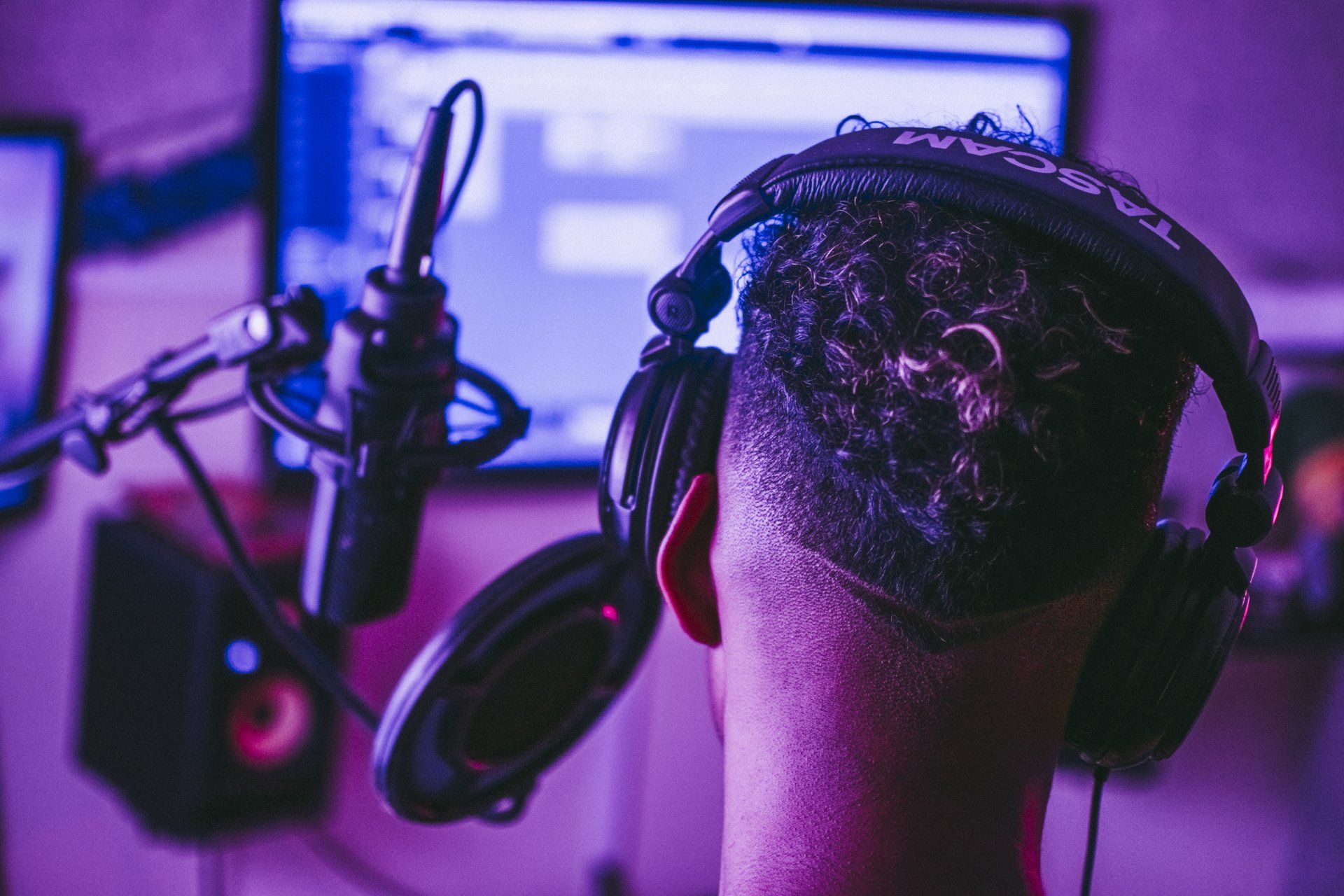
By Jeremy Alves
•
February 14, 2023
Audio engineers are found in any industry involving sound, including recording, broadcasting, and live performances. Engineers put their knowledge and training to work by using hardware and software to create the best possible sound quality on every project. Pursuing a career in audio engineering, also known as sound engineering, gives you the freedom to work in a range of industries and take on a variety of roles. Your work days will range from long, busy hours to days spent planning and configuring equipment prior to production. Completing a sound engineering course puts you on the fast track to working in the field. You’ll learn the necessary theories, science, and skills required to excel in your new career. However, before diving into a course, it’s worth learning more about what exactly you’ll be doing as an audio engineer. So keep reading to learn the top five things professional sound engineers do in various roles to help you decide if enrolling in a course is the right next step in your career. What is an Audio Engineer? Before we dive into the common things they do, let’s define exactly what an audio engineer is. Audio engineers leverage electronics, software, and knowledge to configure the given environment to capture the highest quality sound possible. Typically, audio engineers do not provide creative input to the given project, instead putting their skills to work to assist producers, directors, and artists in accomplishing their vision. Attending audio engineering programs prepares you to take on a range of roles and tasks typical in the audio world. You won’t only learn about each component but also how each component works and how every component complements the entire project. Five Common Roles of an Audio Engineer Sound engineering is an in-demand discipline found throughout a wide range of industries. Let’s explore some of these industries and precisely what engineers do within them. 1. Work Closely with Producers and Artists Audio engineers are an essential part of any music producing team. The audio engineer leverages their in-depth knowledge of hardware and software to capture high-quality audio for the project. Every component in the studio must be appropriately configured, tested, and ready for recording. Additionally, an audio engineer will often handle mixing and mastering the track before it’s finalized. Small budget projects may call for someone to handle both music production and audio engineering, but typically, they are two specialized roles working in tandem. The engineer will often take direction from the producer, while the engineer will lend their technical expertise to advanced technical tasks. 2. Engineer Audio for Video Games and Movies Video games and movies are well-known for their soundtracks, and audio engineers help with each track in the end product. However, the precise tasks will vary in these two industries; let’s explore how: Video Games: Music is found throughout gaming, but it’s not the only one found throughout the game. Voice actors, sound effects, and the soundtrack are necessary for the finale game. Engineers help capture vocals, design sound effects, and assist with music production. Additionally, the engineer guides with the implementation of when and how to play specific sounds within the game. Movies: Working on movies or TV shows often involves working with music producers, but an engineer working for a movie studio will likely do much more than the music. Capturing an actor’s lines can make or break a take, and an engineer is responsible for recording the highest-quality sound. Similar to video games, the movie's sound effects and other audio aspects will involve the audio engineer’s expertise. Attending an audio program from a reputable educational institution prepares you to work in either of these fields. You’ll learn the foundational skills and theories for sound design, mastering, and recording, so you’re ready for whatever your new position requires. 3. Ensure Quality with Mixing and Mastering Mixing and mastering will likely be a large part of your job, regardless of your chosen industry or field. Both processes are necessary to create a pleasing sound in which frequencies of different tracks intertwine and do not harshly overlap. While these processes have a creative component, they also require an in-depth technical understanding of audio and the equipment involved. So let’s briefly explore both processes and how an audio production program will prepare you to take them on: Mixing: Everything in a recording exists on different channels. For example, your kick will be on one channel, the vocals on another, and so on. If all of these channels are configured the same way, the track will likely be hard to listen to, even if all the individual pieces are excellent. Mixing is concerned with balancing every channel, so they complement each other. Panning, compression, and filtering are standard mixing techniques, but there’s plenty more you’ll learn. Mastering: Mastering follows mixing and closely examines every audio frequency in the track and optimizes them to produce the overall goal of the track. Equalizers and limiters are standard tools used in the mastering process. Additionally, the audio engineer will consider how the end product will sound on a wide range of speakers and headphones. Ultimately, the engineer is usually the last person to work on a project before it’s finalized. Music producers can often take on these processes, but it’s worth bringing in an audio engineer on larger budget projects to guarantee they’re handled correctly. 4. Manage Gear During Live Performances Live performances require several audio engineers and technicians to plan, set up, configure, and test every component involved in the performance. There are certainly overlapping engineering skills with other industries, but working with live sound is a much different scenario. The term live sound applies to a wide range of specific types of events, including: Concerts of all sizes Sporting events Performance arts Conferences and lectures Other outdoor events Live sound engineering courses are the best way to learn everything you’ll need to know to take on a live show. These specialized courses cover many of the same topics as generalized audio engineering programs. Still, they will dive deeper into the specific aspects you’ll need a strong understanding of for live performances. 5. Assist Other Engineers or Technicians Each of the above roles and tasks will sometimes require one or two audio engineers, although live performances will also need plenty of sound technicians. Pursuing a career as an audio engineer often requires working as a sound technician as you gain experience and on-the-job training specific to your industry. A sound technician assists engineers or senior technicians with various tasks throughout a project. For example, you might be asked to set up microphones and monitors in a recording studio or run cables throughout a live venue. Sound technician tasks are often considered the ‘nuts and bolts’ of engineering, while the audio engineer will handle making sure all the components are correctly planned and configured. Sound technician courses impart the fundamentals of working with components, connectors, and software so that you’re prepared to assist engineers on any given project. For example, when the engineer asks you to set something up, you’ll know precisely how to complete the task.
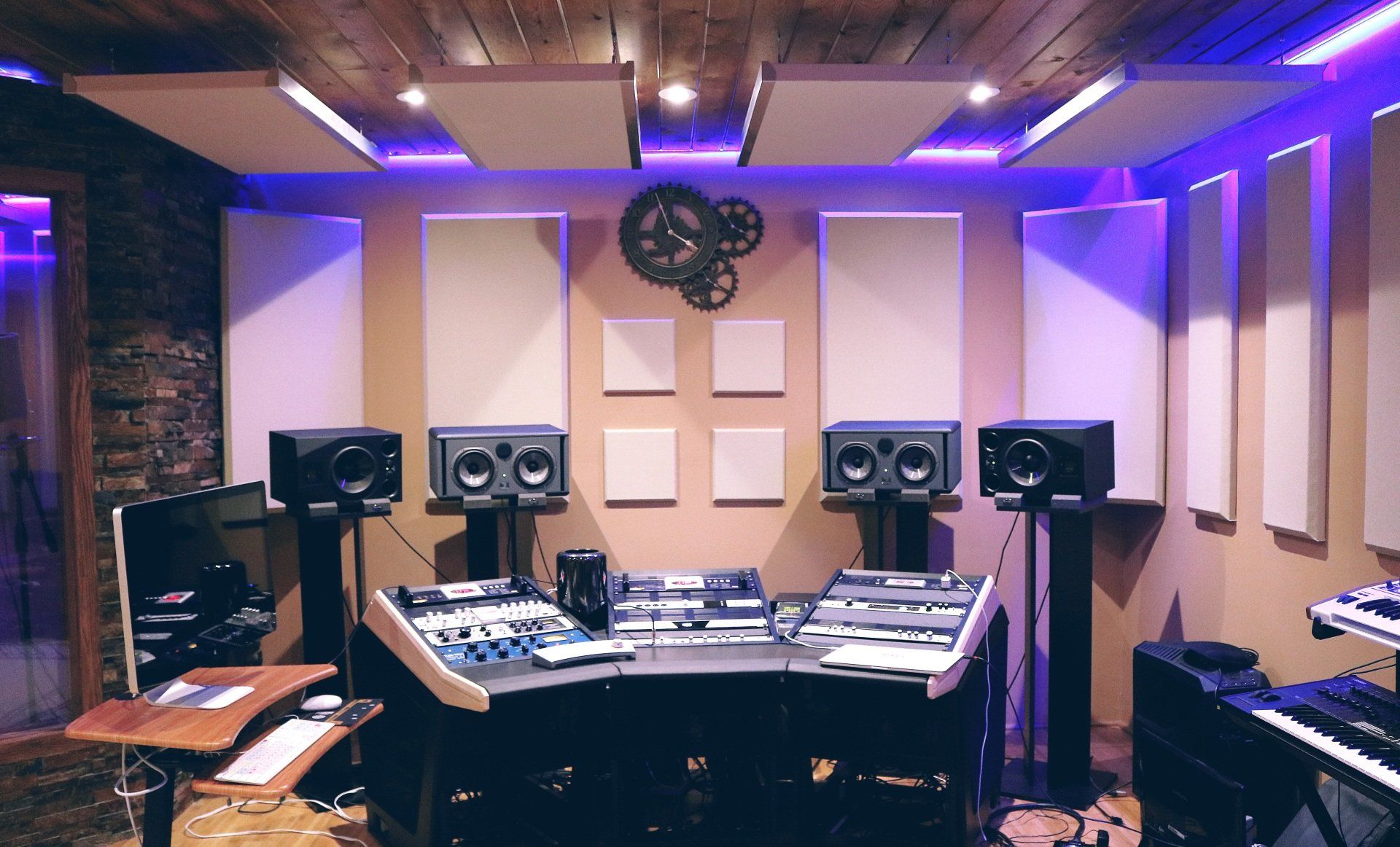
By Jeremy Alves
•
February 1, 2023
Music production and audio engineering are related fields with plenty of overlap, but they are distinctly different roles within the audio world. Understanding how these roles vary from each other can help you choose between music and sound production or audio engineering programs. Music production is a creative role involved throughout the creation of a new track. This role is often managerial, as you may need to manage artists, musicians, and engineers. You may also take on the role of the composer and craft a MIDI track to accompany a vocalist. Additionally, you’ll gain a technical skill set and apply it creatively to projects. Audio engineering is a more technical role focusing on the actual recording of sounds, which can be vocals, instruments, or even sound effects. You generally will not provide creative input but will instead cater to the needs of creative roles like producers and artists. This role involves a strong technical and scientific understanding of electronics and sound. Which career path will provide you with a fulfilling career? Keep reading to dive deeper into the differences between these two roles to help you hone in on the best choice for your future career. What is Music Production? Music production blends software and creativity to produce a final product aligned with the artist or your artistic vision. Attending a music or audio production program prepares you for this role by providing hands-on training and an in-depth understanding of music theory. By graduation, you’ll know how to produce a track from start to finish, work with artists, and provide guidance to engineers and technicians. Let’s explore your daily responsibilities as a producer, key challenges, and examine if it’s the right career for you. Core Music Production Responsibilities A music producer sees the big, artistic vision of every project they work on. You’ll develop a trained ear for music, a feel for what makes a good song, and add your own artistic touch to most projects. The music producer often takes on a managerial role for larger projects. For example, if a track involves several vocalists and musicians, you’ll need to coordinate recording times and impart the overall goal of their part. Additionally, you’ll coordinate efforts with sound engineers, technicians, and composers. It’s worth noting that most projects will be unique, so precisely what you do will vary on every track you work on during your career. For example, you might work with an aspiring artist on a small project. You’ll then be responsible for the entire track beyond providing vocals, such as building drum patterns, composing melodies, and crafting basslines. In addition, you’ll handle mixing and mastering. Challenges of Music Production If you asked a dozen working music producers about their biggest challenges, you’d likely get a dozen different answers. Every producer has their own hurdles, challenges, and even dislikes of working in the field. One common challenge in music and sound production is working with the artists themselves. You’ll have to accommodate specific requests, manage their vision and expectations, or sometimes even work around their ego. For example, can you ask a major artist to re-record a verse because the first take wasn’t quite right without bruising their self-esteem? Another challenge of working as a producer is you need to constantly stay aware of the latest trends in production and music overall. While this isn’t usually an unpleasant challenge, it’s still something you’ll need to invest time in to make sure you’re aware of what listeners are appreciating. Is Music Production Right for You? Should you choose production over engineering? You might already have a rough idea after reading the above sections, but let’s examine the characteristics of someone well-suited for a career in music production: You’re able to conceptualize the overall vision and sound of a track You have excellent soft skills, such as interpersonal communication and managing different personalities on a project You have both a technical and creative mindset. As a result, you can learn new software and tools whenever necessary while also providing creative input and guidance to others. You can manage complex projects with several moving pieces. Prior experience in any form of project management is helpful. You take feedback and criticism well and can incorporate them into the project. What is Sound or Audio Engineering? Audio engineering, often also referred to as sound engineering, is the practice of configuring the hardware and software involved in recording or broadcasting to provide the highest possible quality sound. Music engineering is a more specialized form of audio engineering in which you’ll apply the same skills to assist producers and artists in creating a polished track. Audio and music engineering programs impart a strong understanding of sound's technical and scientific aspects, including how it moves through electrical components and the room itself. It’s time to break down the field of sound engineering to help you decide if it’s the right choice for you. Core Responsibilities of Audio Engineering The primary task of an audio engineer is to ensure all the hardware and software used in recording audio is adequately set up and configured to capture high-quality sound. You need to know how to set everything up and the theory behind how components work together. For example, you must understand how signals move through your setup before reaching the DAW. This level of understanding allows you to adapt to the available equipment, recording booth, or arena and contribute to the overall project. Unlike music producing, you won’t typically take on a managerial role or provide creative input. However, you may manage a team of engineers and sound technicians on larger projects. Audio Engineering Challenges Audio engineering is a highly technical role, making it challenging for those without an aptitude for learning about technology and electronics. You need to know what every piece of equipment does, how it works, and how components work together. Additionally, an audio engineer must also know how to test and troubleshoot any issues that may arise. For example, the last thing anyone on a project wants is a delay in recording due to malfunctioning equipment. Can you fix it or find a suitable alternative? Engineering can also be a struggle for those who want to lend their creativity to a project. While there’s no hard rule against providing input, audio engineers generally provide little to no input that guides the creative direction of a project. This factor isn’t an issue for some, but music production might be a better fit if you’d like to contribute creatively. Is Audio Engineering for You? Should you choose audio engineering over music production? Let’s explore some of the core characteristics that might make you better suited for engineering over production: You enjoy working with technology and electronics You’re interested in manipulating sounds with the tools at hand You’re organized and able to take instructions You excel in scientific and technical fields, plus find enjoyment in them You’re okay with rarely providing creative input, instead focusing on the gear and technology that helps producers and artists bring their vision to life Will You Ever Do Engineering and Production? Some projects will call for handling the roles of a music producer and an audio engineer. Having the skill set of both roles can help make you a valuable asset, and you may enjoy learning both sides of the audio world. Generally, it’s projects with smaller budgets that seek out professionals capable of taking on both roles rather than hiring several specialists. For example, a smaller label or independent recording artist won’t have the budget for a team of experts but still want to produce a high-quality song. It’s not as common, but medium to large projects may even require wearing both hats. For example, imagine a scenario where the producer is suddenly unavailable. You’re already in the studio as the engineer — being able to step in as the producer saves the project and showcases your value to the company or artist. Ultimately, if you’re interested in both, you don’t necessarily have to pick only one option. For example, you can start with a music production program and later return for an audio engineering course. Enroll in OIART’s School of Audio Engineering Attending a formal program for either career option will teach you the skills, techniques, and theories behind production and engineering. You’ll gain a deep understanding of your chosen path and be prepared to start working in your new field. OIART is an industry-recognized education institution with music production and audio engineering programs designed to prepare you for your new career. You’ll gain hands-on experience in the industry and be ready for your first day in the studio. Ready to begin? Take the first steps to get formal training to get a diploma and start your new career.
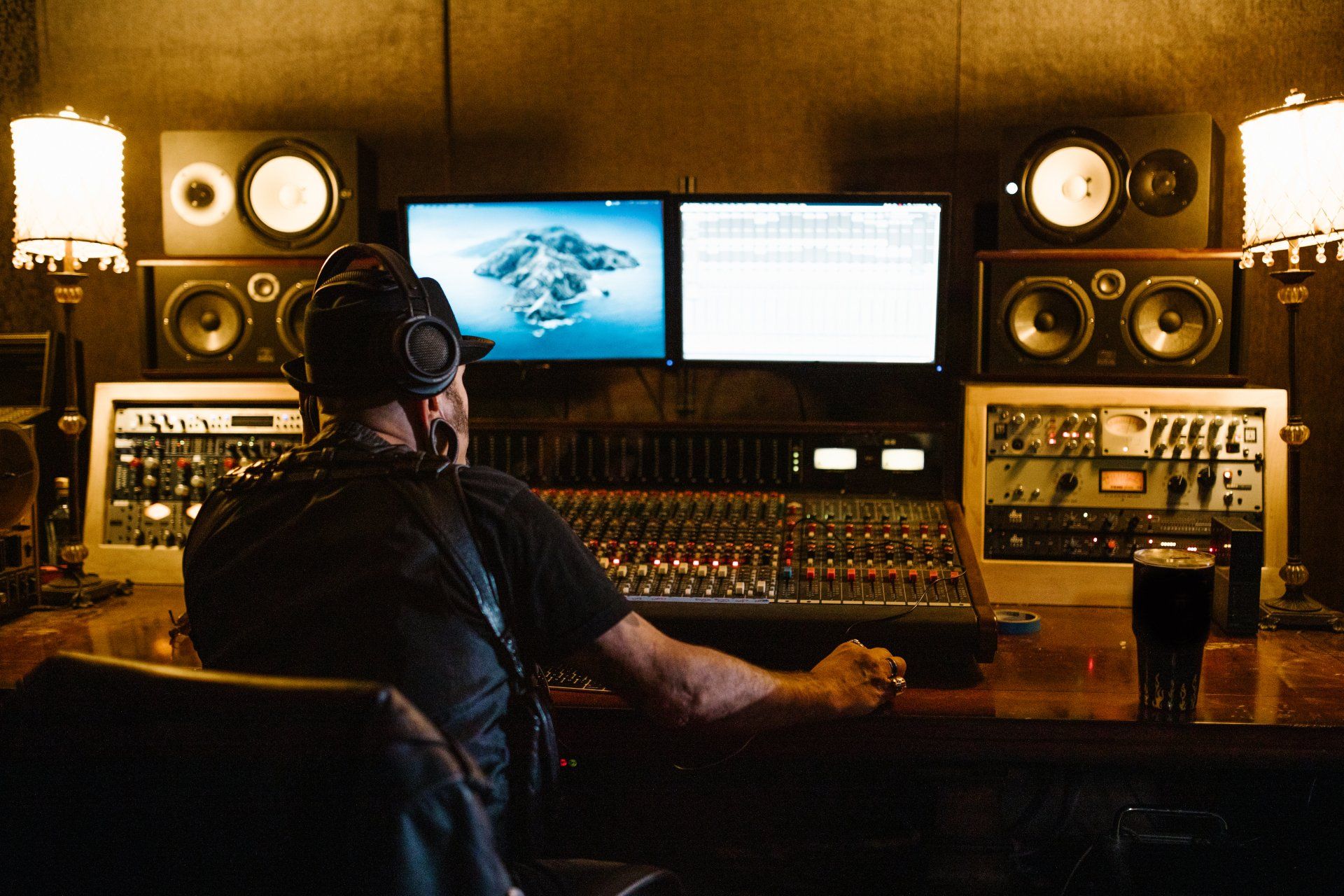
By Jeremy Alves
•
January 18, 2023
Music and sound production is an exciting career not only due to its creativity but also because every day will be unique and often exciting. You’ll unlikely have the same workday twice in a row or even twice in a month. Every working producer in the industry has their own ideal workday, different areas of specialty, and varying routines based on what works best for them. Having control over your workday and the flexibility to manage different projects and responsibilities is one reason why people are drawn to music production. Ready to become a music producer? Keep reading to take a glimpse into what a day in the life of your future career might look like. Dispelling Music Production Workday Misconceptions Before diving into what a music producer’s workday is, let’s dispel some myths about what it has to be: Myth 1: Start a new song and work on it until it’s done: In the beginning, it’s good advice to focus on a song from start to finish. However, working producers rarely, if ever, work on a track straight through. Instead, they’ll put time into a track and come back a day or two later with fresh ears. Myth 2: Only work on one song at a time: Most producers work on multiple tracks throughout a day or workweek. Sometimes you want to focus on mixing or mastering, so you’ll do that for tracks in the final stages. On other days, you’ll need to record vocals for several different tracks. So it’s unusual for producers to only work on one song at a time until it's finished. Myth 3: Finish every song you start: Sometimes, a track doesn’t have the sound or feel you were going for. Don’t lock yourself into finishing every song you start; sometimes, it’s better to start over rather than try to save a track that took a wrong turn. Myth 4: Work on tracks eight hours every day: Working on tracks is essential, but you must also listen to music, explore new VSTs and technologies, and stay on top of industry news. Working on tracks constantly can ultimately hinder your creativity and even the quality of the final result. Some of these misconceptions may end up actually working for you, but they’re myths because they’re often thought of as rigid rules. A great thing about music production is there are no rules about how you structure your workday. Days Can Vary Dramatically Music producer programs will teach you various tools, techniques, and processes to help you build your ideal work routine. You’ll learn what works for most producers and less popular but still effective processes worth considering. Let’s explore some common daily tasks music producers tend to work into their routines. Be aware that not every day needs to be exactly the same; you might spend an entire day on one of these items or all of them and more in a single day. Producing New Music or Revisiting Ongoing Projects It’s common for producers to have several, sometimes dozens, of ongoing projects at a time. But, even then, you might have a sudden inspiration or assignment that calls for creating a new project. Producers often bounce around between ongoing tracks to keep things fresh. For example, they may have an idea for a bassline for one track, then be inspired to change the 808 pattern on another. Not having rigid guidelines allows producers to work on whatever they want, provided they meet applicable deadlines and responsibilities from employers or clients. Research, Explore, and Develop Producers must stay on top of emerging trends, technologies, and industry news. It’s common for producers to set aside time every day, often in the morning, to check music news sites and producer-focused communities to stay aware of any changes that might impact their jobs. For example, VSTs are a necessary tool for producers. If a new VST comes out that might help with a specific process, it’s worth exploring. Additionally, popular VSTs might have updates that need to be done manually, and missing out on updating means not having new features. Sound Design and Recording Time Sound design is the art of crafting specific sounds for your tracks. Some producers will do this during the overall production process, while others set aside specific time to dive into their synths or gear and create unique sounds. Depending on your job, you might have entire days working with recording artists to capture vocals for their albums. Vocalists might want to record multiple tracks in a single session, so it’s impractical to try to produce the rest of the track simultaneously. Instead, you’ll focus on ensuring you have the right vocals you need to work with later. Workout Your Ears A little-known side effect of music production is ear fatigue. It’s a common phenomenon for music producers who spend hours or days on a single track. It’s part physiological and part psychological, and the result is you no longer accurately understand how your track sounds. You might export a track at night and think it’s incredible, only to listen to it the following day and dislike almost everything about it. This experience is an example of ear fatigue in practice. To combat ear fatigue, take breaks to work out your ears. Listen to something else, whether it’s a podcast, music from your favourite producer, or nothing at all. Take ear workout breaks throughout your day to keep ear fatigue at bay; you’ll prevent spending hours working on track you end up throwing away. Mixing and Mastering These two distinct processes focus on creating the final product ready to export and finalize. Mixing is a variety of techniques concerned with balancing all the individual tracks in a song to blend and create the exact sound you’re after. An example of mixing is setting your high-hat track to auto-pan every bar and changing it to -2 decibels. You may then side-chain your kick to the bassline or increase vocals by 0.5 decibels. Mastering is another set of techniques that fine-tunes the entire track, so it sounds great regardless of where it’s played. Like mixing, mastering also focuses on creating the exact sound, mood, and feel you want. Detailed equalizers, limiters, specialized mastering engineers and a properly treated studio are the standard tools used in mastering. When it comes to a producer's day, they might set aside time to mix and master several ongoing projects over a few hours. Some producers also mix as they produce and then just do a final check before moving on to mastering. Ultimately, it depends on the producer’s workflow. Workdays Are Also Based on Your Career An added factor that influences your workday is how you build your career. You’ll have more restrictions if you decide to become an in-house producer for a recording label or studio. For example, you might be expected to go to the office every day and spend some time in the studio or have a busy schedule working with recording artists. Conversely, suppose you work independently and sell finished tracks to artists or license them to businesses. In that case, you’ll have more control over your workday and be free to do whatever helps you consistently produce new tracks to keep generating revenue.

By Jeremy Alves
•
December 16, 2022
Working in music and sound production is an exciting industry that blends creativity with technical expertise to create a polished final product. For example, you might work with a recording artist on their next single or help a movie studio with the audio for their next blockbuster.
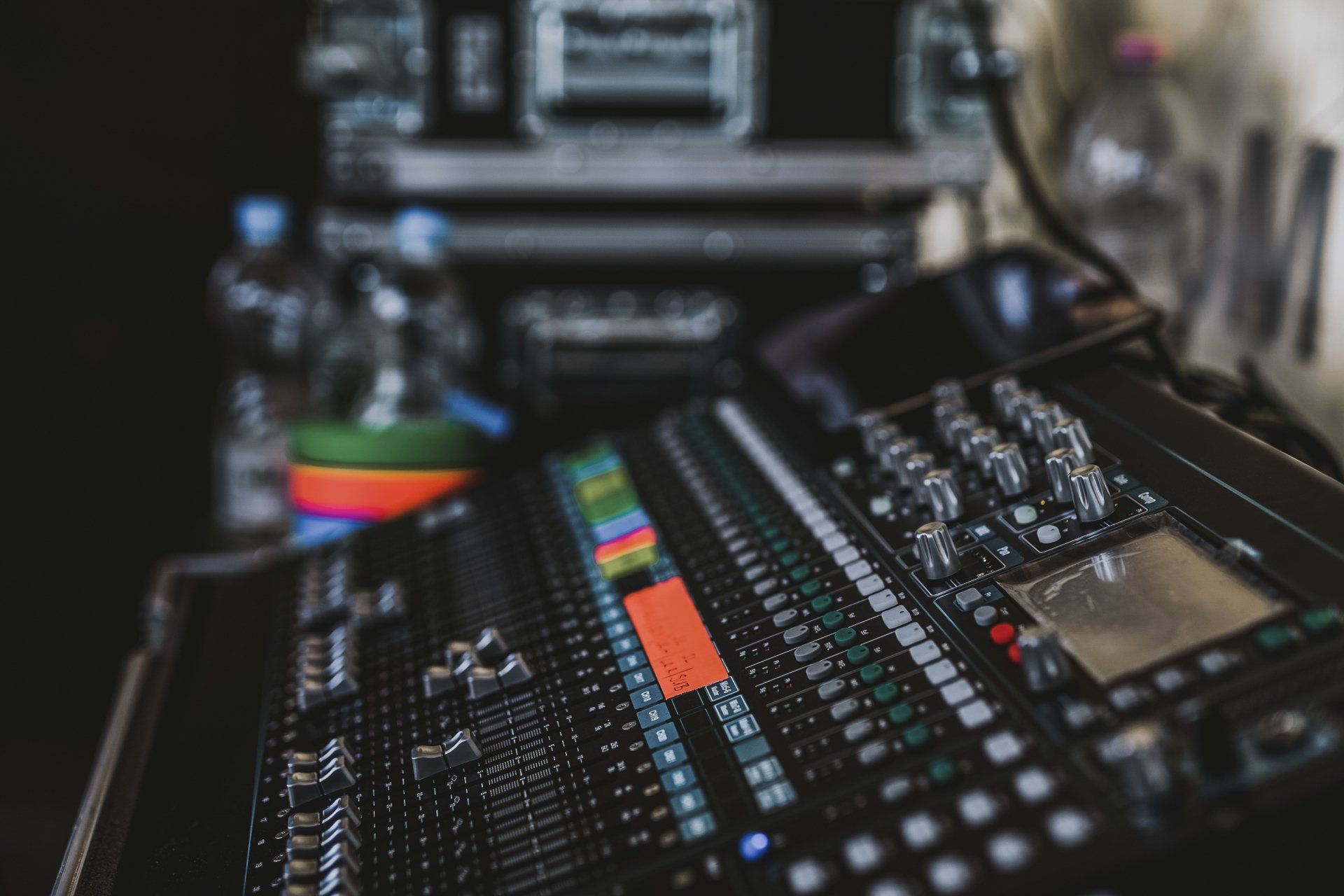
By Jeremy Alves
•
July 6, 2022
Just like how every carpenter needs a hammer, you need the right tools for the job if you want to be involved in music and sound production. If you’re serious about being involved in sound production, what sets apart the amateurs from the aspiring professionals is simple: proper equipment and the training to use it. [...]
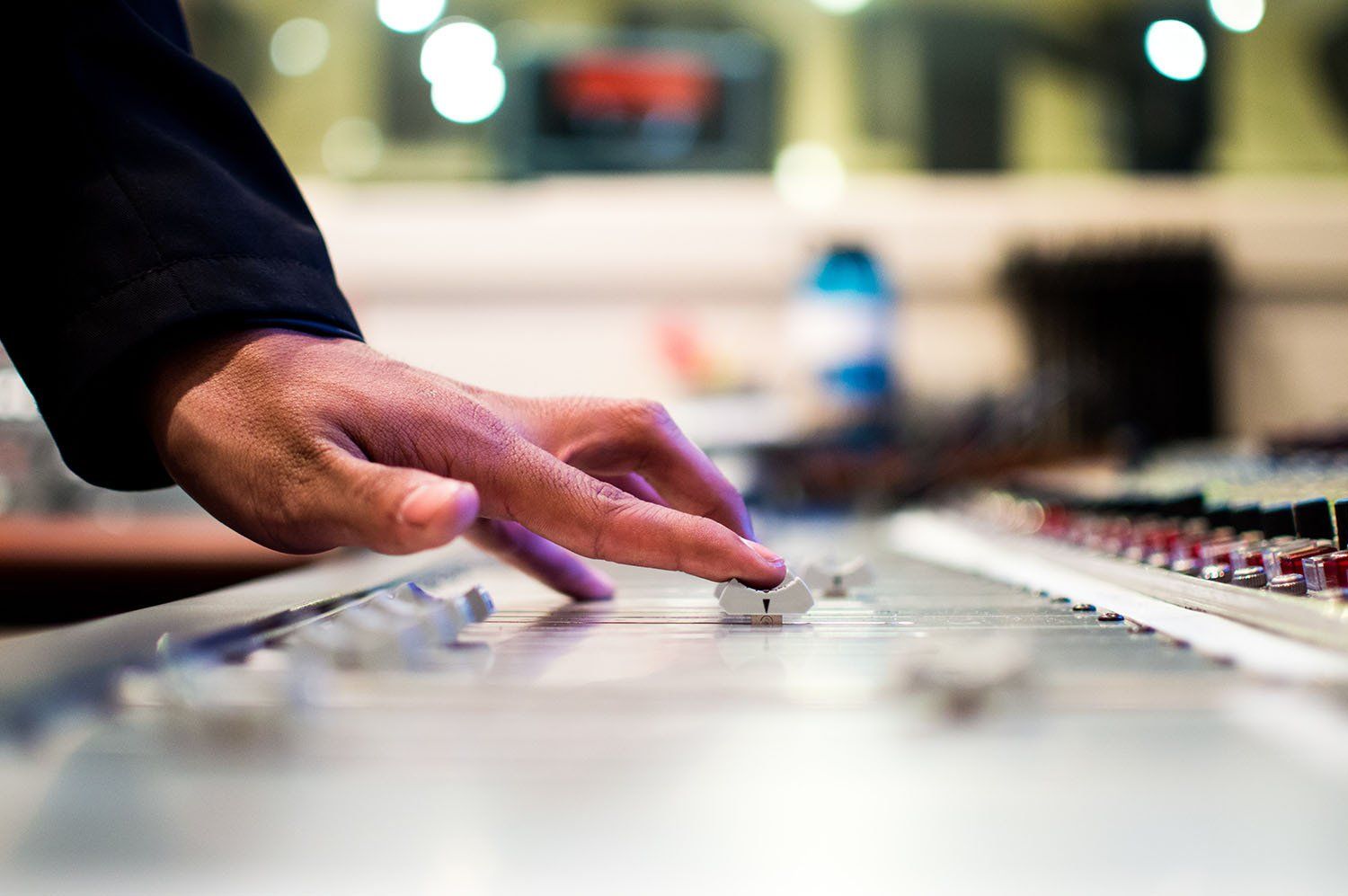
By Jeremy Alves
•
May 1, 2020
You may be in the process of getting an audio engineering degree and preparing yourself to pursue a career in the audio industry. Before you leave school and jump into your job hunt though, have you wondered what working in the audio industry is really like? Careers in the audio industry do not necessarily follow [...]
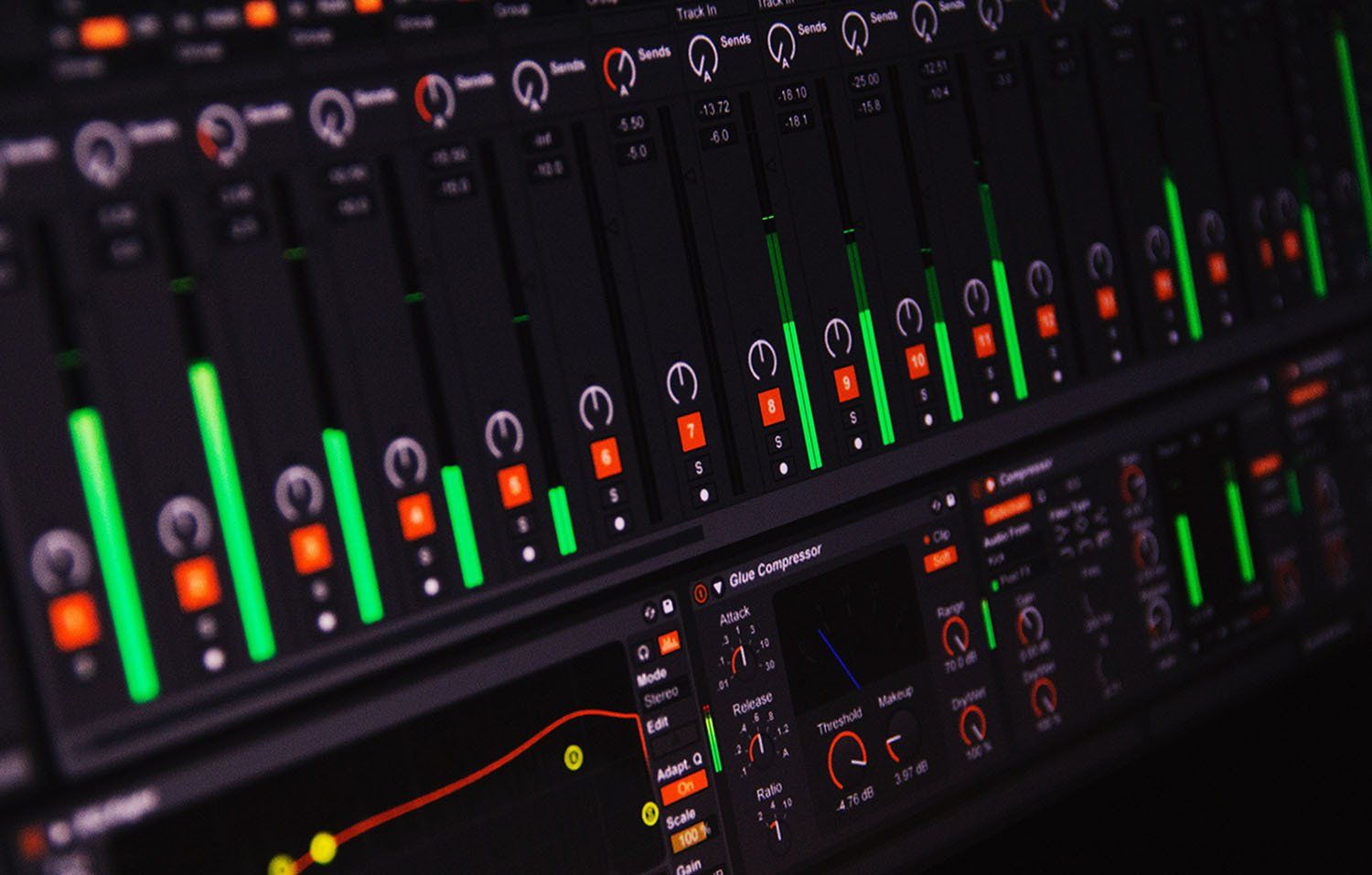
By Jeremy Alves
•
April 21, 2020
DAW stands for Digital Audio Workstation and is a type of software that you use for recording, mixing, editing, and processing digital audio. DAWs may come in a variety of forms ranging from a single software program on a laptop to a highly complex system of multiple components that is controlled by a central computer, [...]
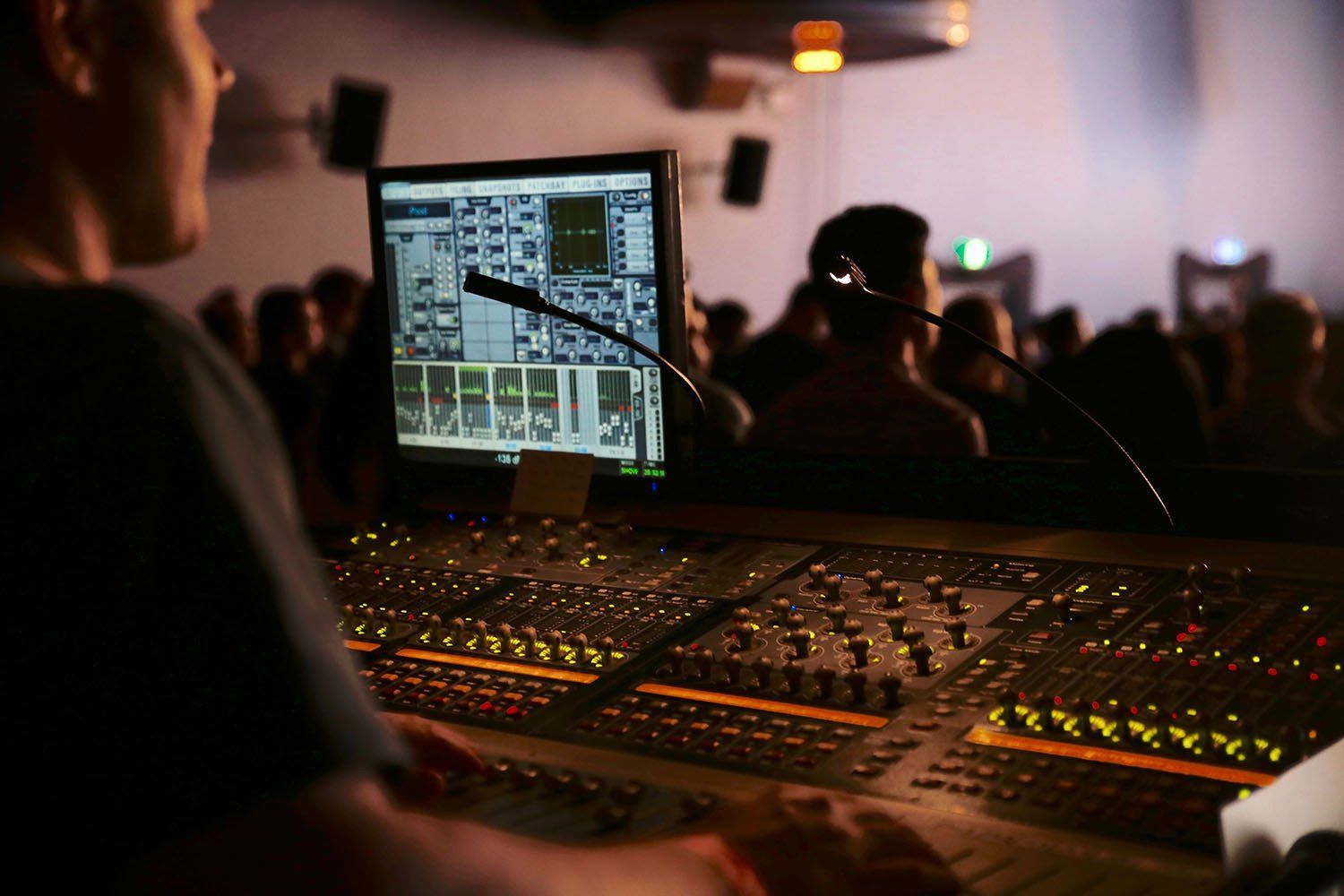
By Jeremy Alves
•
April 14, 2020
Internships are a fundamental first step in your career, especially in the music industry. Many companies will hire their interns in the future, making the connections you form during your internship extremely valuable. But how do you go about getting one? Some positions are not widely advertised, or not advertised at all, and it can [...]

By Jeremy Alves
•
April 4, 2020
The music industry is heavily based on who you know and what kinds of connections you are able to make. This means lots of networking! Networking can seem like an intimidating task, but it doesn’t have to be! Start with small steps, and you will be an expert with a solid network in no time! [...]

By Jeremy Alves
•
March 25, 2020
Breaking into the video game industry can be hard, especially in a position as specific as Sound Engineer. Jobs in the gaming industry are not as plentiful as other fields and they also tend to be more precarious, as more companies hire freelancers for individual projects than full-time salaried employees. If you are willing to [...]
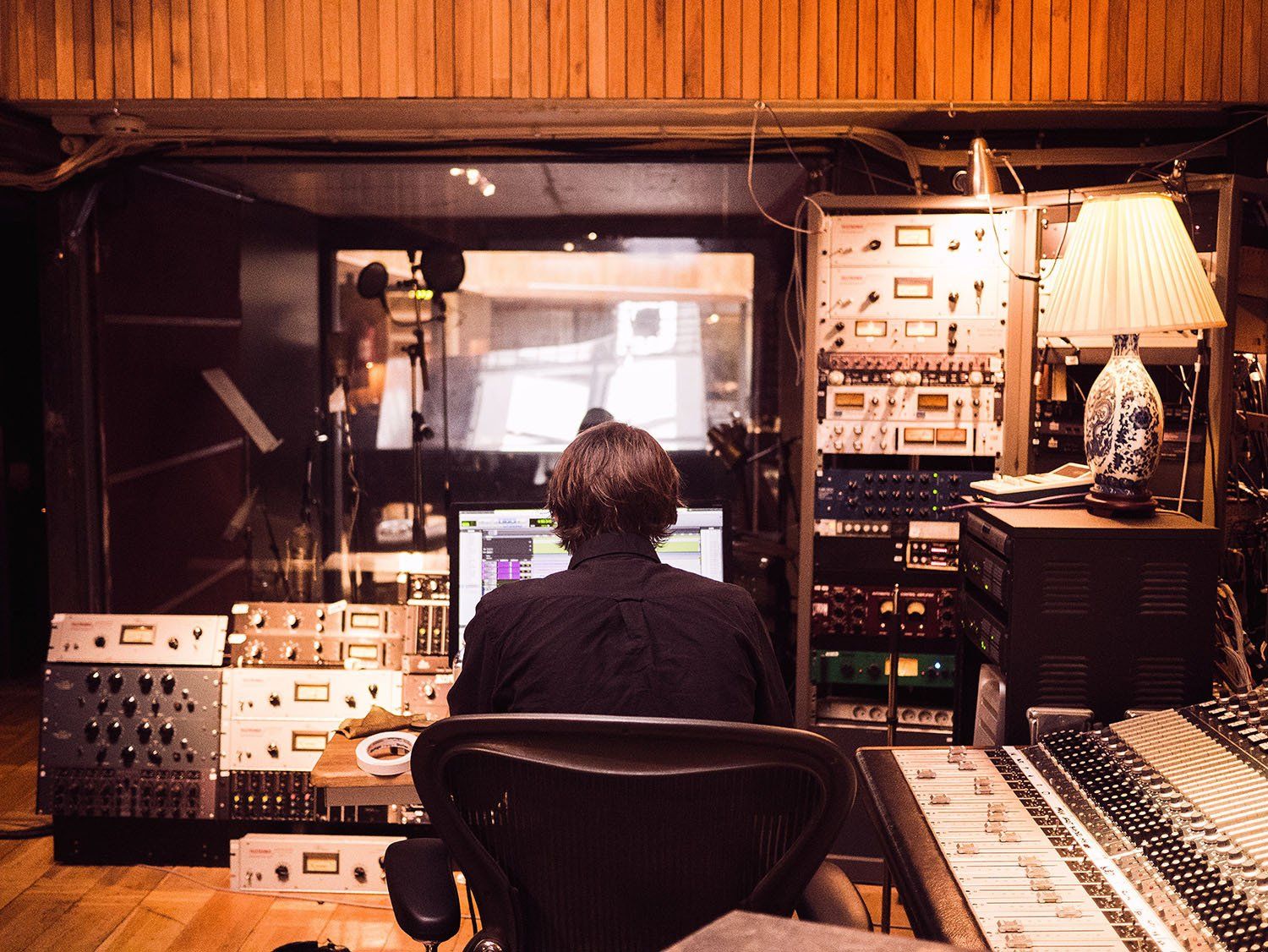
By Jeremy Alves
•
March 14, 2020
Being a music producer can be one of the most exciting jobs in the music industry. You get the chance to work with a variety of artists on projects of all kinds and oversee the creation of many records. As a music producer, you’ll get the chance to work on the creative side of music [...]
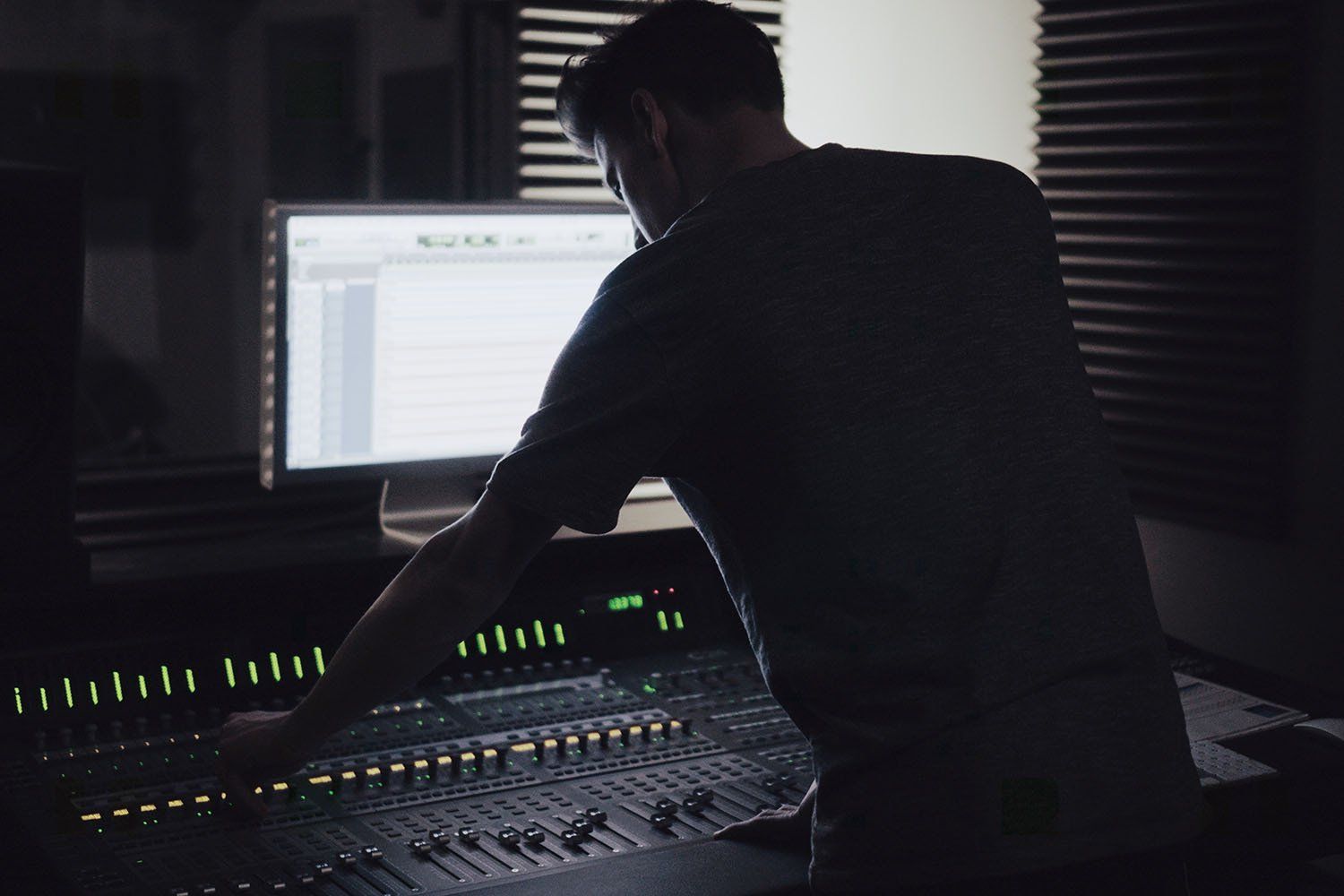
By Jeremy Alves
•
March 1, 2020
Yet another exciting role in the audio industry is the mastering engineer. A mastering engineer is hired by the artist or producer of an album to complete the audio mastering process during the post-production of an album. The mastering engineer has specific expertise in preparing and transferring audio from one raw format to the desired [...]
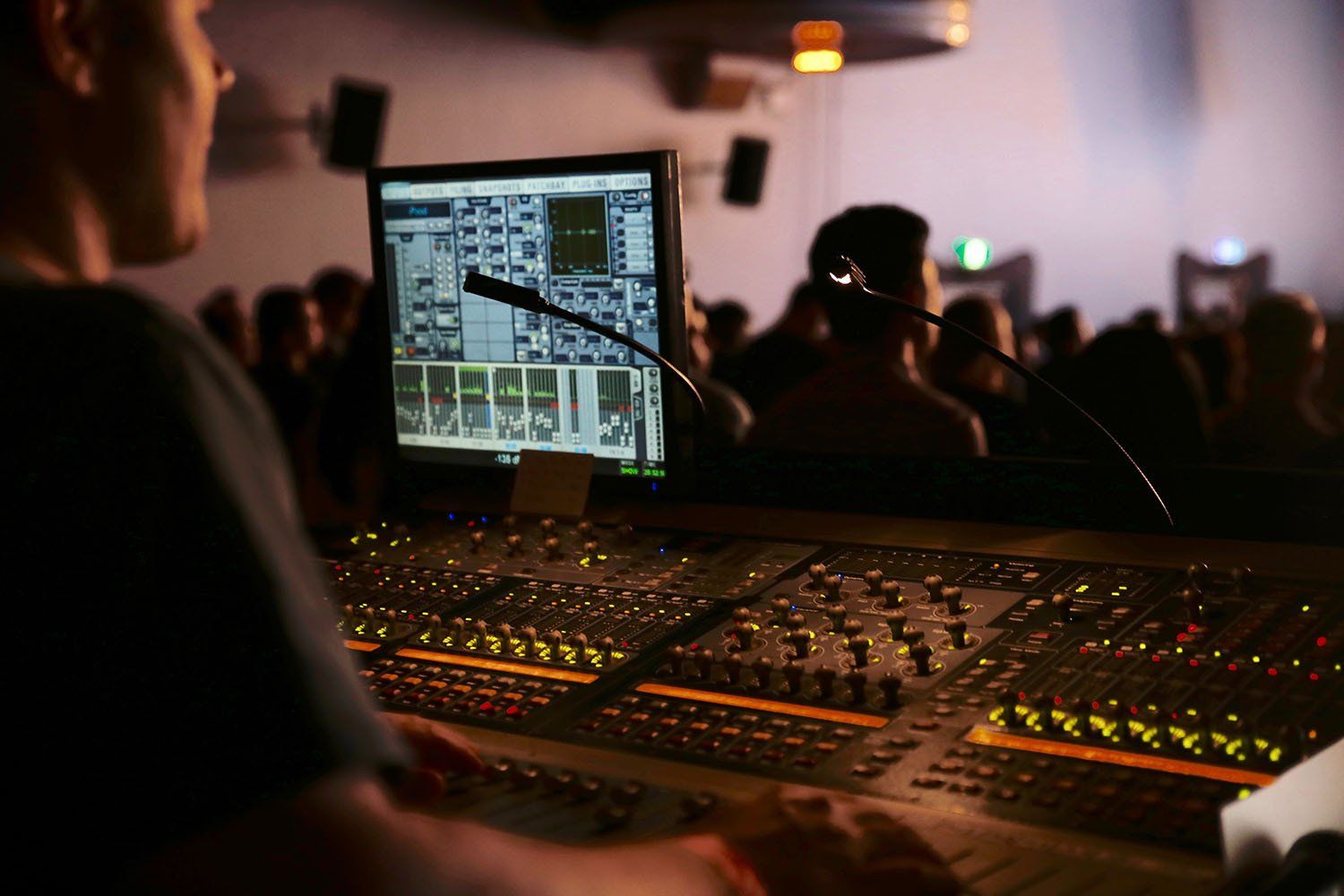
By Jeremy Alves
•
February 19, 2020
Internships are an important first step in your career and can open the door to a certain company or career path you are looking to pursue. They may get a bad reputation as many internships are unpaid, and you hear horror stories of interns did nothing but get coffee for their entire internship, but there [...]

By Jeremy Alves
•
February 10, 2020
In the gaming industry, “audio engineers” may be called a number of different things: sound designer, audio designer, and so on. But the job description is basically the same wherever you go, as they all make the sound effects, ambient effects, and often the music for the video game. Annual income for these positions varies [...]
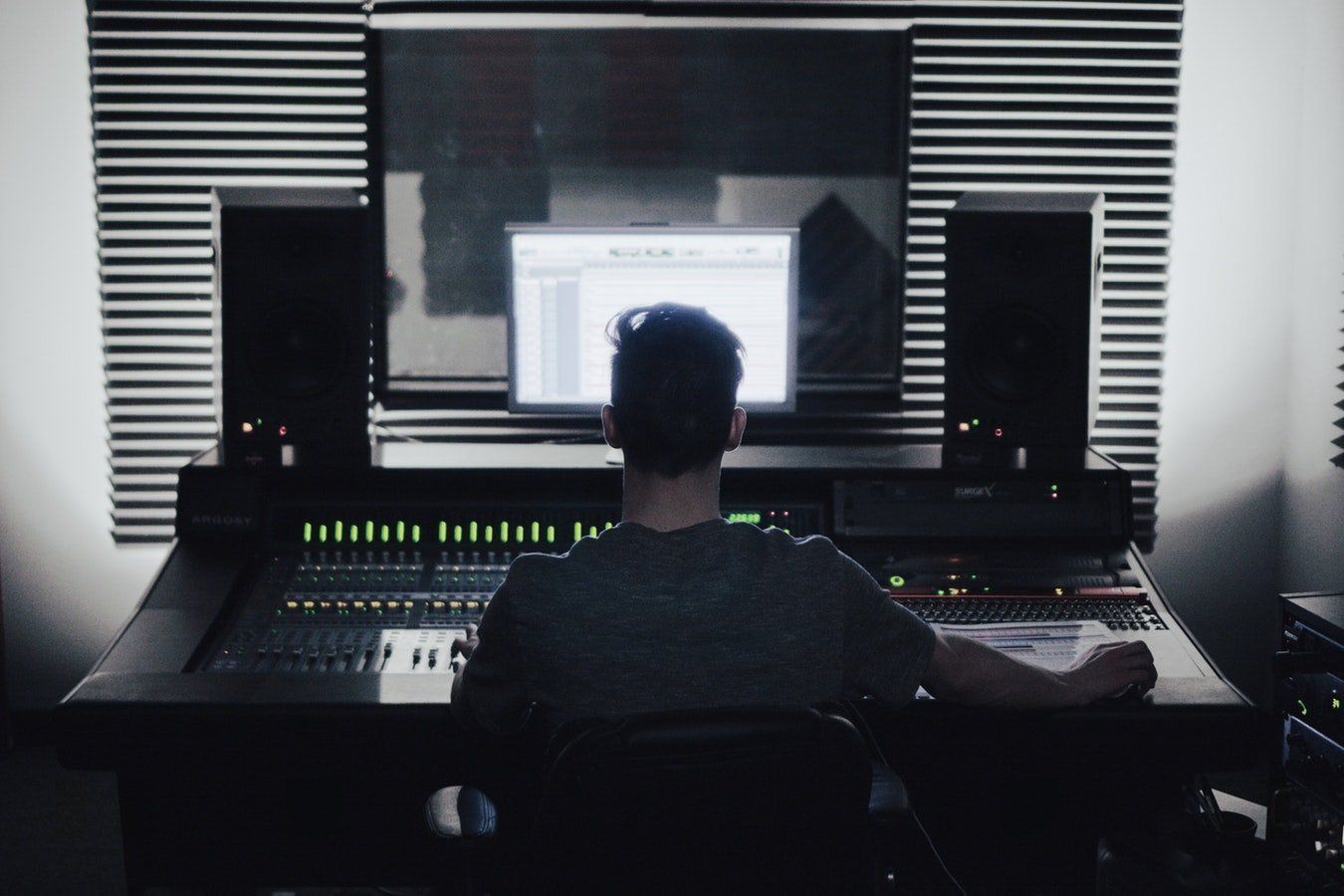
By Jeremy Alves
•
February 3, 2020
There are many different music production techniques out there, and it can be overwhelming as you may feel you need to master them all in order to succeed. To help you get started, I have compiled a list of 5 popular music production techniques. These techniques are simple, but they will get your mixes sounding [...]
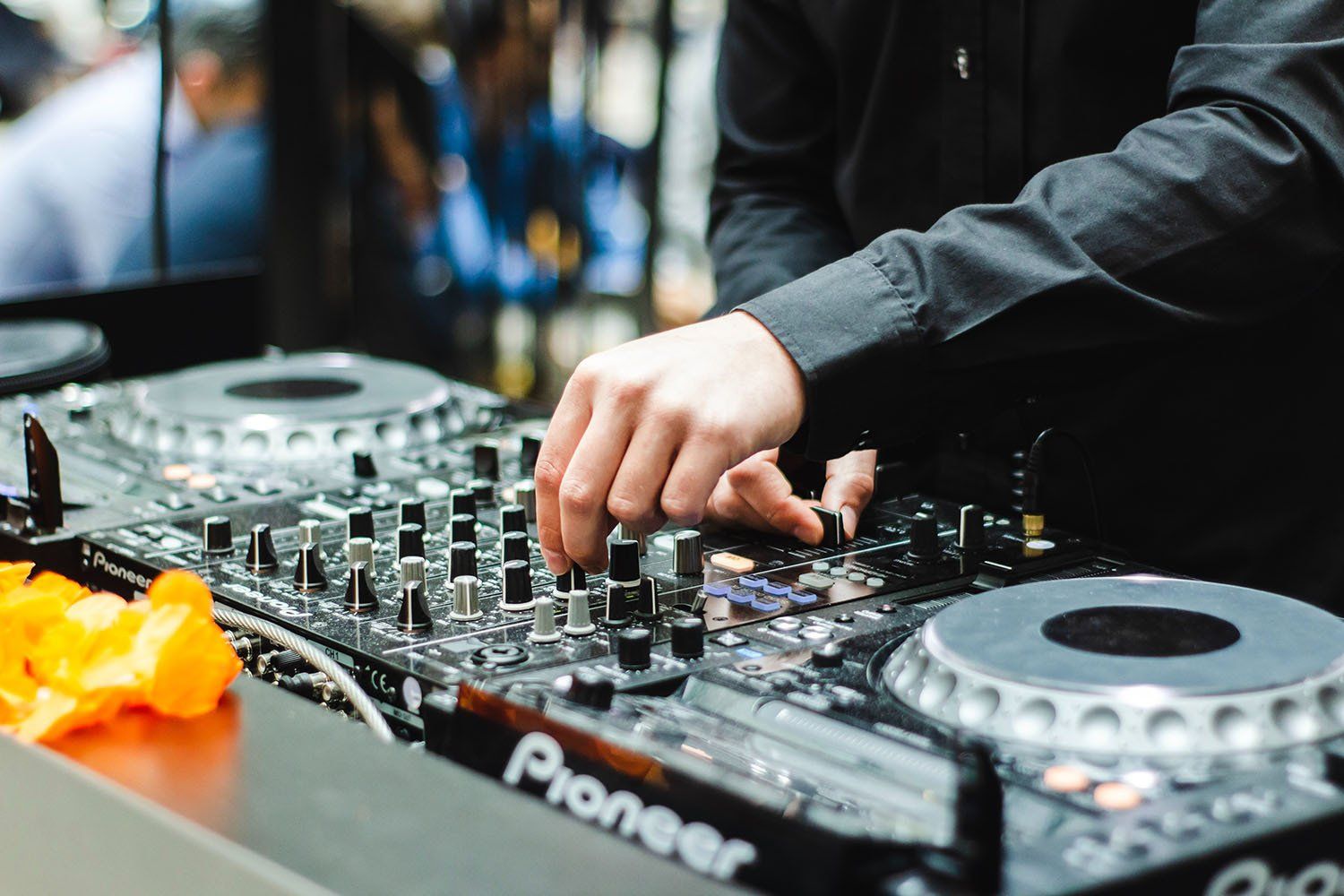
By Jeremy Alves
•
January 15, 2020
If you are hoping to make a career of music production, or even if you are just doing it as a hobby, you should constantly be looking for ways to improve. You should look for ways to improve your music production skills so that you can produce better and better tracks and move forward with [...]

By Jeremy Alves
•
January 3, 2020
Want to turn your passion for music into a career, but not sure what to study in order to make that happen? There are many paths you can take If you want to work in music production, but there are many benefits to taking a music production program. These benefits include the hands-on experience you [...]
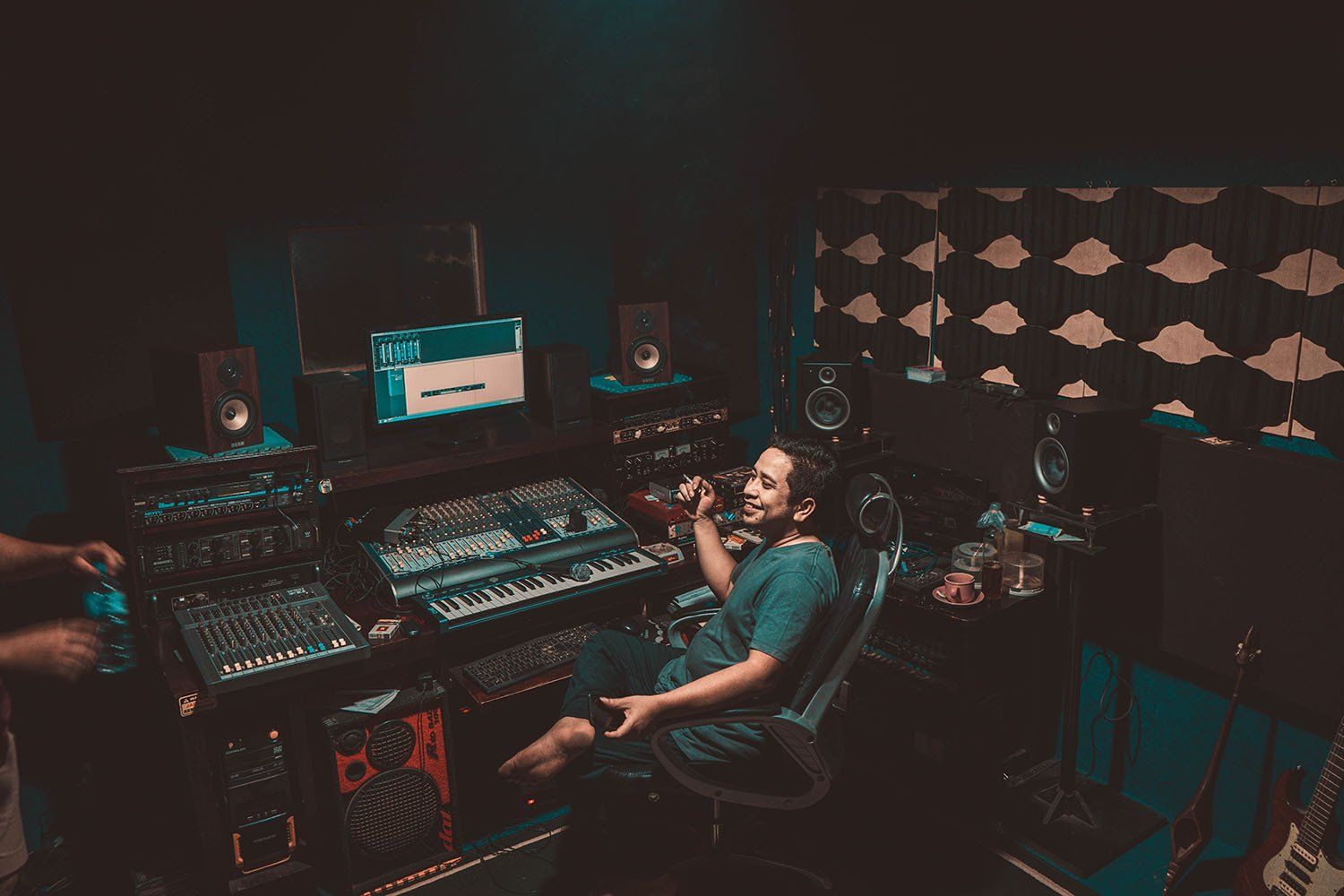
By Jeremy Alves
•
December 15, 2019
If you are pursuing a career in music production, it is important that you understand each of the roles involved in the process. Music producers and sound engineers are two roles that are essential to the music production process, although it can get a little confusing as to which roles each person is responsible for. [...]

By Jeremy Alves
•
June 3, 2019
Congratulations to the stacked OIART alumni audio team that worked on the A&E Biography: Chris Farley - Anything for a Laugh. The sound in the documentary is phenomenal. It was amazing to see so many OIART grads in the credits. Great work from everyone! John Diemer Sound Supervisor > IMDB Mark Vogelsang .... Supervising Sound Editor > [...]
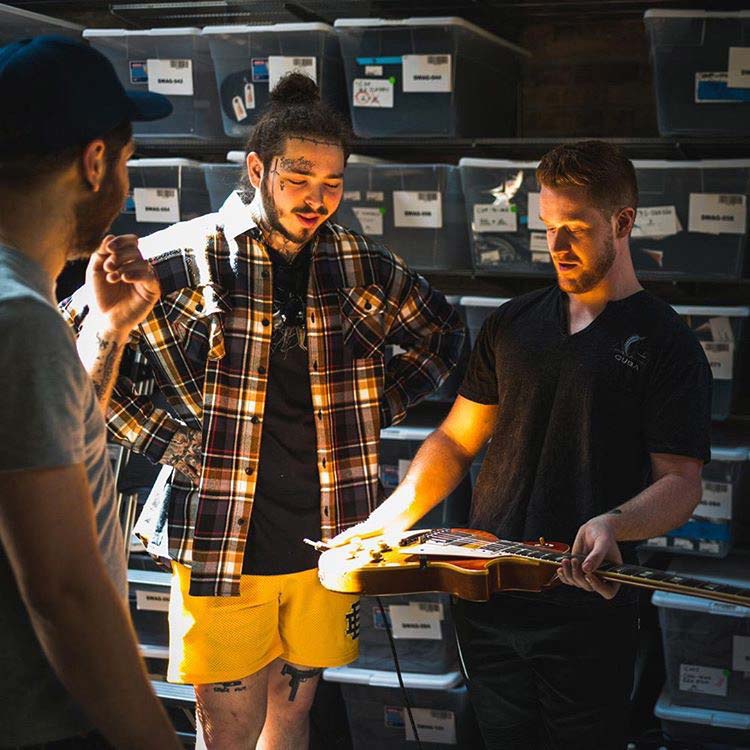
By Jeremy Alves
•
April 12, 2019
Feature Friday Grad of 2011 : Blair Bondy - Follow him on Instagram @Superdialtone Current Position : Monitor Engineer and Guitar Tech for Post Malone. Blair’s drive and ambition has brought him some high-level success in his audio lifestyle. He is currently in the middle of a world tour with Post Malone and they [...]
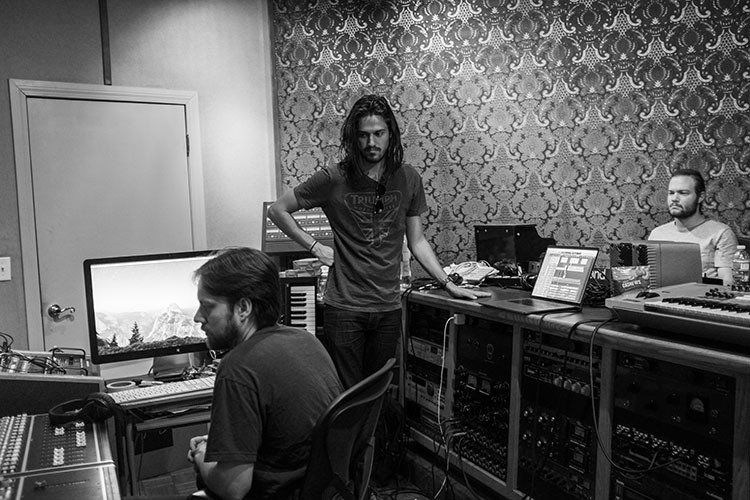
By Jeremy Alves
•
April 5, 2019
Music Producers are anyone who are involved with the production of music. Whether it be songwriting, composing or recording, these are the people who work as/alongside artists to shape the outcome of a music project. There is a big overlap between music producers and other roles in the music “production” process, including engineers, mixers, masters [...]

By Jeremy Alves
•
March 29, 2019
Stepping away from a full time gig to pursue a life as a freelancer can be one of the scariest decisions most people make in their careers. Leaving full time employment means leaving behind serious perks like a consistent salary, group benefits and a stable work schedule. There’s also a social aspect to office culture [...]
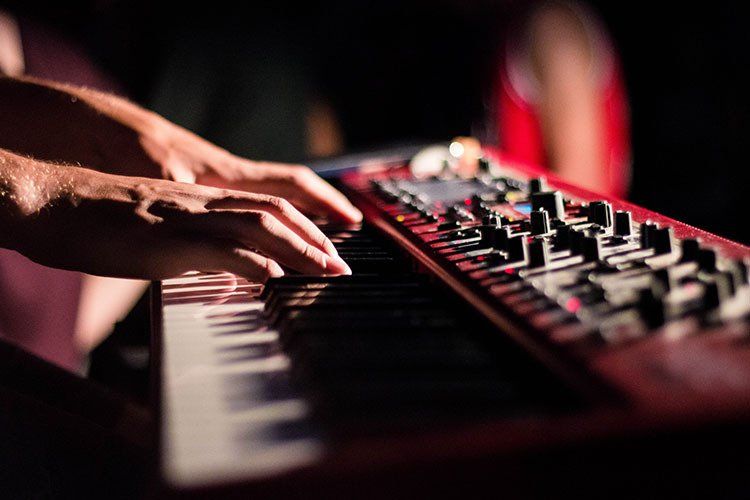
By Jeremy Alves
•
March 22, 2019
One thing that I’ve learned from my time as an audio engineer is that landing a job in music production isn’t something a lot of people just “fall into”. I can’t say for sure, but I highly doubt that anyone who ended up a mastering engineer or a foley artist found their path through one [...]
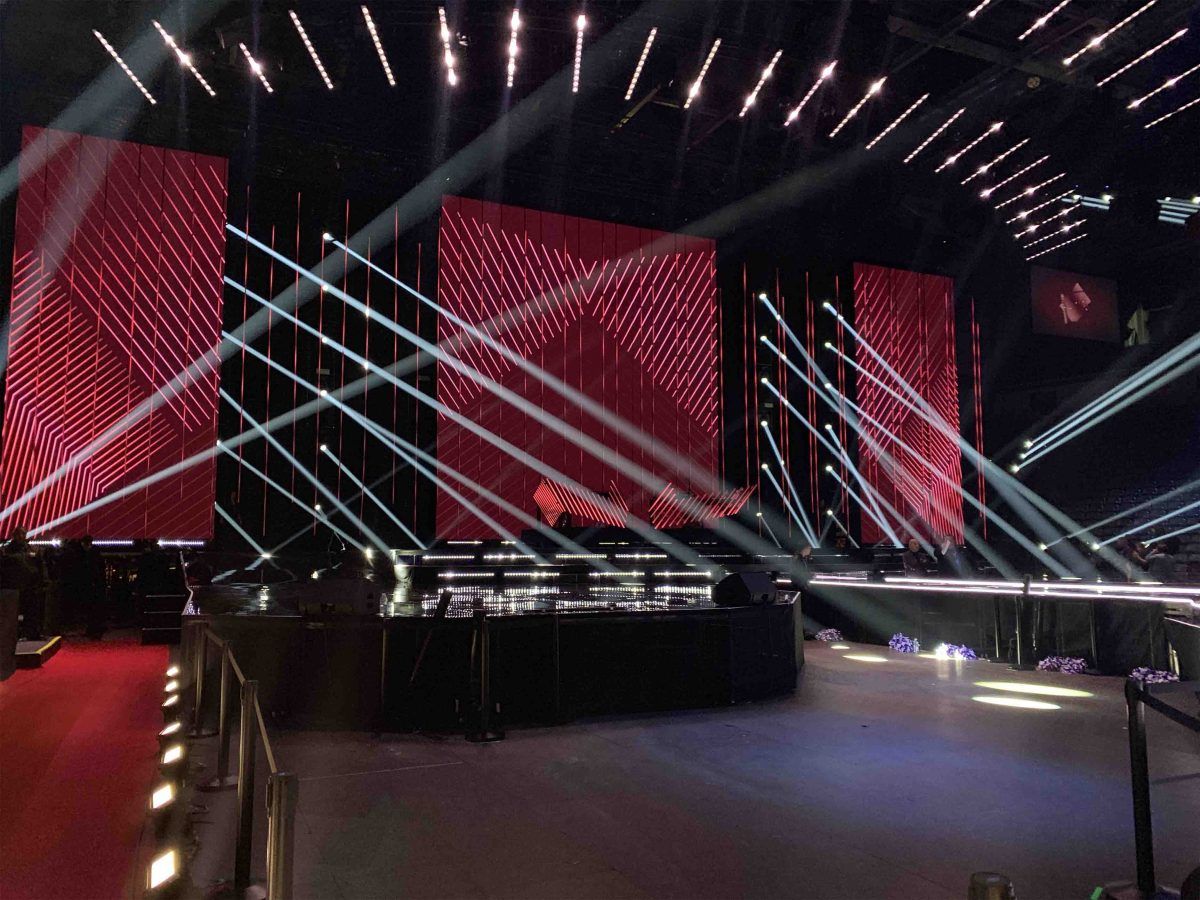
By Jeremy Alves
•
March 20, 2019
Last week was a HUGE opportunity for our students and alumni. London, Ontario was the Host City for the 2019 Juno Awards and we figured, there isn’t a better way start their audio lifestyle and get hands-on experience in every aspect of what we teach here at OIART We set the students up with [...]

By Jeremy Alves
•
March 8, 2019
For the past few years at OIART, the students get to prepare and be a part of a concert at The Aeolian Hall. Some of the jobs students had were : Audio System Technician, Front of House Mixer, Lighting Designer, Video Technician, Stage Production Staff, Monitor Mixer, Stage Crew, Mobile Audio Mixing, Technical Director, Location Recordist, [...]

By Jeremy Alves
•
March 8, 2019
It’s been a busy week for the students. They have started to record all the elements for their projects. In music production this week, we have some drum, percussion, guitar, bass, vocal, and piano sessions happening. Over in Live Sound and Event Production, we are learning about front of house mixing and setting up cue [...]

By Jeremy Alves
•
March 8, 2019
Are you curious about an education in music and sound production but unsure of where it will take you? Don’t just take our word for it. Take a look at some of the fabulous men and women that have graduated from OIART and where their education has taken them. Here are just a few OIART [...]
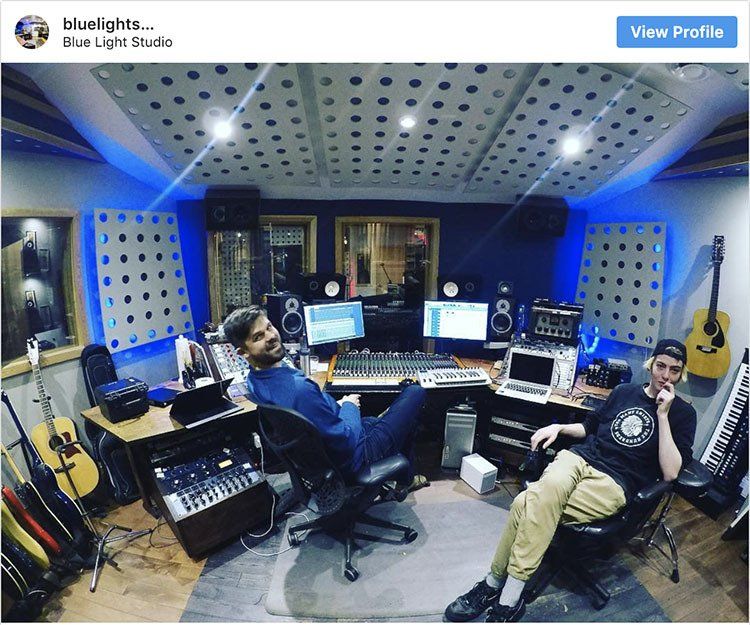
By Jeremy Alves
•
February 28, 2019
It’s no surprise that Canada’s music scene is growing and growing. For a long time it was widely accepted that our southern neighbours dominated the recording industry, with New York and Los Angeles being established as creative epicentres of North America (and the world). In the last couple decades however, Canadian artists have began to [...]

By Jeremy Alves
•
February 22, 2019
AV Companies that are hiring right now Have you ever been at an outdoor festival and wondered about how everything came together? If you’ve ever thought about how cool it would be to help set sound systems or run audio at an event, I strongly urge you to consider a career in live sound production. [...]
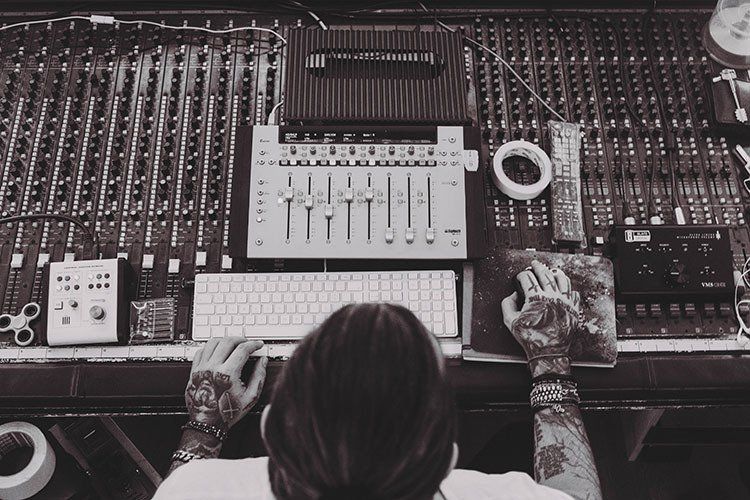
By Jeremy Alves
•
February 8, 2019
Tips on how to breach the industry Like many trades, audio engineer can take you down many different roads. The role of an audio engineer can be found in so many areas centered around media and the arts. In many ways it mirrors acting: there are roles on TV, in film, on stage, for commercials [...]
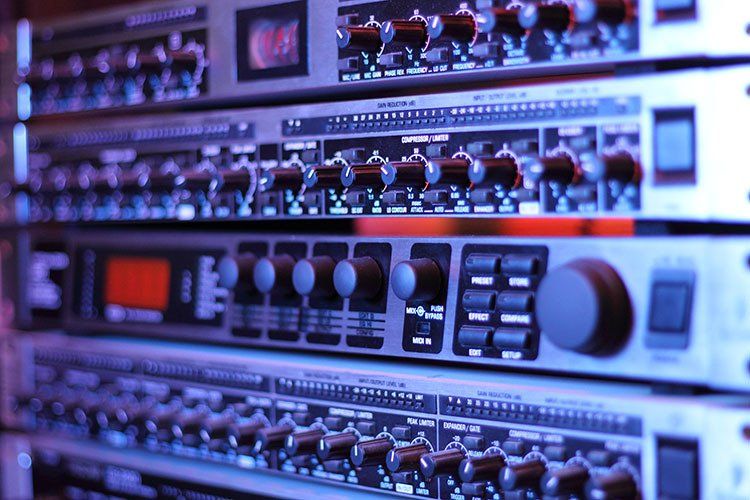
By Jeremy Alves
•
January 25, 2019
You did it. You’ve completed the first step towards building a stable career and got the education or experience needed to put you on the path towards becoming a successful audio engineer! Now you need a job! The film and television industries can be fickle and difficult to break into, but once you’re in [...]

By Jeremy Alves
•
January 18, 2019
You’ve got the diploma, but now what? Today’s music industry is becoming increasingly fickle and competitive. As the world enters further and further into the digital age, old jobs become obsolete and new jobs that require multiple skills and a large breadth of knowledge are becoming the norm. It can be overwhelming trying to [...]
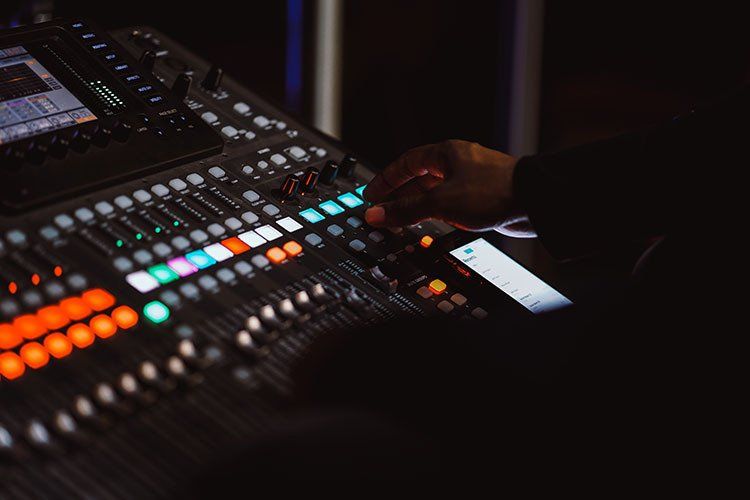
By Jeremy Alves
•
January 11, 2019
A recording studio is a specialized facility that is used for sound recording, audio production and mixing. Recording studios are often used to record both instrumental and vocal musical performances, but they are also used to record spoken words, including voice-overs and audiobook narration, and other sounds, including background sounds in film and television. [...]

By Jeremy Alves
•
January 4, 2019
If you spent your entire childhood living and breathing video games, then it only makes perfect sense that you would opt for a career in video game production. Not many people realize the amount of work that goes into creating one video game. From animators to illustrators, and voice-over actors to sound designers, there [...]

By Jeremy Alves
•
December 28, 2018
There’s no denying it, some cities are far better for music than others. In fact, you may have heard the term “music city” been used before. This is a term that describes a city that has a strong appreciation for music, and backs up its artists, clubs and venues through government funding and through [...]
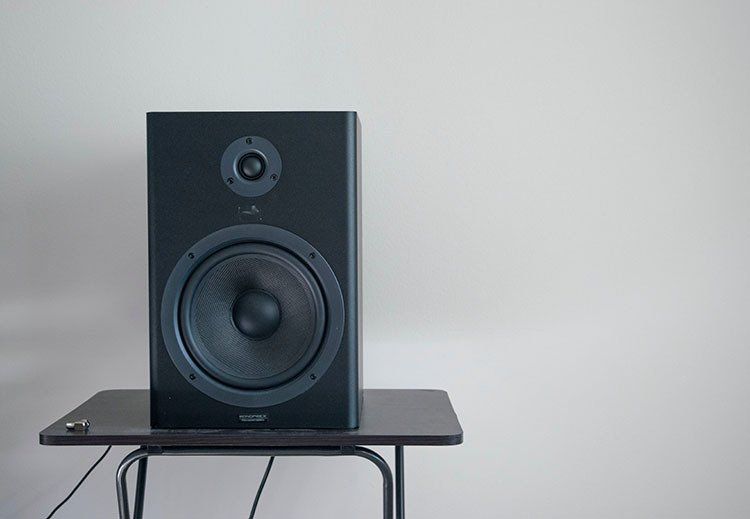
By Jeremy Alves
•
December 19, 2018
We’ve all been there, you get a frantic email from a client at 11:30 at night asking if you can turn around a mix in one day before the weekend. With your other client work and what little personal life you have left, there’s only so much time you have to churn out a [...]

By Jeremy Alves
•
December 12, 2018
One of the responsibilities of being a school (especially one like ours, that is focused primarily on employment after graduation) is to stay current in the industry, follow new trends, and to prepare the students for future careers. Frankly, the majority of careers that younger students will be doing in 10 years, simply don’t exist [...]
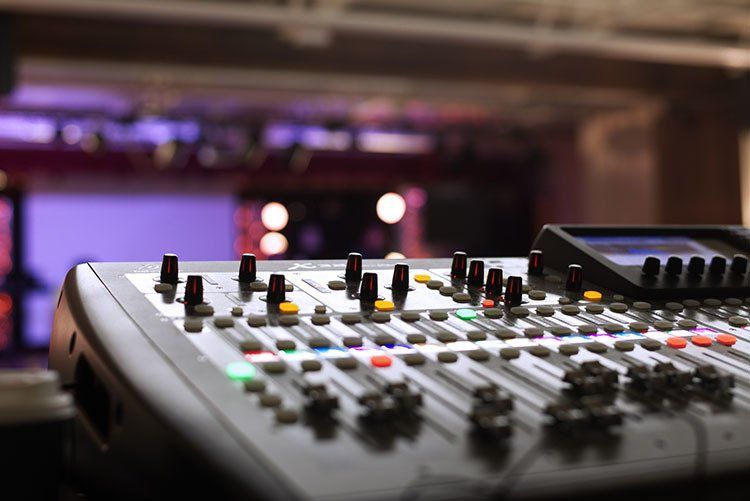
By Jeremy Alves
•
December 11, 2018
If you’re like me when I was first starting out, finding a job was one of the most stressful, overwhelming and time consuming activities out there. The thing is, we all need jobs one way or another, which means we all need to go through the process eventually. Fortunately, every time you go through [...]
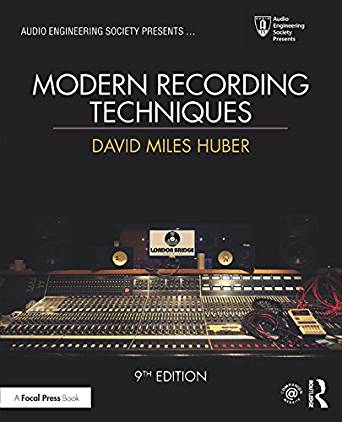
By Jeremy Alves
•
December 4, 2018
As an audio engineer you have an obligation to never stop learning. When an artist or production house hires you for a new project, they are expecting you to be the best of your peers. It’s no surprise that for many, that expectation will be built on your practical experience. But when it comes [...]
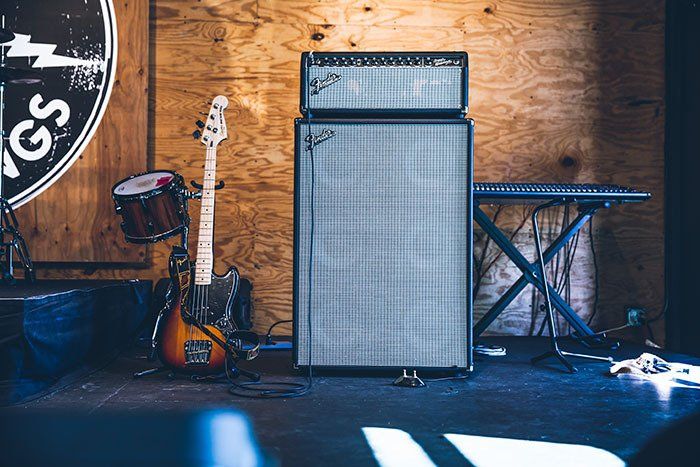
By Jeremy Alves
•
November 29, 2018
Tips and tricks on how you can make more money than you ever thought Audio Engineers are a well sought after job for enthusiasts interested in a career path in music. An audio engineer is someone who mixes, records or masters music in a professional setting, either for recordings or in a live setting. [...]
By Jeremy Alves
•
November 22, 2018
IT’S YOUR TRUE CALLING Think you’re the next Rick Rubin? Is Phil Spector your childhood hero? Want to get on Timbaland’s level? If you answered yes to any of these questions, there’s a good chance you have the intentions to become the world’s next elite music producer. Good news is, everyone has what it [...]
By Jeremy Alves
•
November 15, 2018
How to be that person who loves their job The music industry is the greatest industry in the world, and I’ll stand by that. If we’re being honest, I bet you already know that too. But since you’re here, I imagine you need a little convincing. Maybe you’re hesitant because you can’t play music, [...]
By Jeremy Alves
•
November 12, 2018
The music industry is profitable again Over the past three years, music industry executives have come to realize one of the oldest idioms in the book is true: if you can’t beat em’ join em. Right now, the music industry is more profitable than it has been for a long time. With the age [...]
By Jeremy Alves
•
October 29, 2018
It would be an understatement to say that one of the most difficult decisions for aspiring industry professionals is the choice between going the educational institution route versus the do-it-yourself route. Post-secondary education by nature is hard, and requires a lot of your time, effort and money. That being said, it can be one [...]
By Jeremy Alves
•
October 29, 2018
Landing your first job is often the hardest one to nail down. At some point we’ve all been on job postings for an entry level position that lists a requirement of “five years of experience”. But how the hell are you supposed to get industry experience without, you know...experience? It’s contradictory and ridiculous, but [...]
By Jeremy Alves
•
October 29, 2018
If you’re here, chances are you have a deep, undying passion for music. There’s rarely a day you don’t have your headphones with you, you have a music library as long as a Costco receipt and have an endless pit of useless music history facts. If you are looking to turn that passion into [...]
By Jeremy Alves
•
October 29, 2018
Do you have an undying love of music? Are you fascinated by how a song or album comes together? Do you find yourself catching things others don’t when listening to music? If you answered yes to any of the following, you might want to consider a career in audio engineering (if you haven’t already). [...]
By Jeremy Alves
•
April 21, 2018
Are you unhappy with how your mixes are turning out? Do you feel like your song is missing that ‘pop’, that brings it alive? If you can’t get your song to sound great outside of the studio, you’re not alone. In a sea of tricks and tips, there’s one sneaky hack that you’d [...]
By Jeremy Alves
•
April 19, 2018
Recording and mixing is your craft so it’s no surprise that you want your projects to sound the best they can possibly be. Luckily for you, we have some free tips on how to help you achieve a great, professional sound for all of your recording and mixing endeavours. While it’s not “sexy” [...]
By Jeremy Alves
•
April 14, 2018
I love making mistakes and you should too. Doing things the “wrong” way not only teaches what best to do the next time around, but gives us the motivation to want to prove to ourselves that we can do better. Fortunately for you, you work in the mixing and recording industry so there [...]
By Jeremy Alves
•
April 13, 2018
Out of almost 500 submissions, the following entries were chosen as the winners of the Dread Machine mix contest: First Prize: Rob Morgan Second Prize: Yaroslav Third Prize: Ben Muller
By Jeremy Alves
•
April 12, 2018
Reverb is by far one of the most valuable techniques in the audio engineers arsenal. Applying reverb can do so much for a song: it adds a sense of depth, can change what type of “room” the sound sounds like it was recorded in and beefs up an otherwise flat sounding song. But [...]
By Jeremy Alves
•
April 8, 2018
Even as the music world becomes more and more digital-focused, the key to success for a lot of artists still relies on radio play. The advent of streaming services like Spotify and Apple Music shook the music world in the past couple of years, because for the first time people had new and [...]
By Jeremy Alves
•
April 6, 2018
Congratulations to OIART grads John Diemer, Michelle Hwu, Ryan Yusep, Dane Kelly, Mark Vogelsang and Alastair Sims for their work on the new Freaks and Geek documentary premiering at Tribeca Film Festival in New York.
By Jeremy Alves
•
April 5, 2018
With so many digital plugins at our disposal, these days it can be tempting to overdo it. But just because it only takes a couple clicks to add effects on tracks, it doesn't mean we should. When it comes to mixing tactics for something as vital as compression, it takes years of trial [...]
By Jeremy Alves
•
March 29, 2018
Congrats to OIART grad Brennan Mercer for another Canadian Screen Award for Best Sound - Vikings. This is the 12th award for Brennan, along with 11 nominations in his career that started in 2011. A big congrats to OIART grad Jesse Fellows who also works on the show as an Assistant Re-Recording Mixer. Super [...]
By Jeremy Alves
•
March 8, 2018
Congrats to OIART grad Paul Gosse for his sound recording work on The Shape of Water!
By Jeremy Alves
•
February 21, 2018
What a great little write up from our friends at Audient !! Not only have our new consoles been great for our students to learn signal flow on, they sound amazing! Sign up for our mix contest http://www.oiart.org/mix-contest and get the multitrack of ‘Dread Machine’ for a chance to win some cool prizes!! https://audient.com/2018/02/12/oiart-2he/ [...]
By Jeremy Alves
•
February 19, 2018
If you enjoyed the video for "Dread Machine" you'll love the behind the scenes video on https://youtu.be/6tRnbESGDGA
By Jeremy Alves
•
February 16, 2018
https://www.youtube.com/watch?v=kJfraNCvR8s Finally! This is what we’ve been waiting for! Our Youtube collaboration song and making of documentary videos are now up. Be sure to check out all the amazing talent we brought together at the OIART studios. Thanks again to everyone involved: Jared Dines Steven Terreberry Music is Win Gear Gods Glenn Fricker Sarah Longfield and Adam Neely. Special shoutout [...]
By Jeremy Alves
•
December 8, 2017
Last week OIART hosted a panel on content creation and music careers in YouTube. We brought in some of the most well known and influential members of YouTube's music community: Jared Dines, Steve Terreberry, Glenn Fricker of Spectre Media Group, Tyler Larson of Music is Win, Adam Neely, Trey Xavier of Gear Gods and [...]
By Jeremy Alves
•
August 29, 2017
Asha Hall will now be head of OIART's Career Management and Job Development team. Asha has been with OIART for three years now and as all our grads and students know, has become a valuable resource and integral member of our staff. This new role for Asha is a natural extension of her role [...]
By Jeremy Alves
•
July 28, 2017
“Success is no accident. It is hard work, perseverance, learning, studying, sacrifice and most of all, love of what you are doing and learning to do.” - Pele Congratulations to Victoria May, the winner of the 2017 Couvillon Memorial Award. Vicky May is a freelance audio professional based in Toronto, Ontario. She currently is [...]
By Jeremy Alves
•
June 27, 2017
OIART organized a private concert run by students with lots of help from the instructors and Rogers TV at the Aeolian Hall. The concert crew was made up of three major crews; the film and documentary crew, the Rogers TV and recording crew and the live and stage crew. Each position in each crew [...]
By Jeremy Alves
•
April 4, 2017
OIART would like to recognize and congratulate our graduates Jason Dufour (’07), Calvin Hartwick (’13) and Greg Giesbrecht (’10) on their recent win at the 2017 Junos for July Talk’s Touch in the Alternative Album of the Year category. Alternative Album of the Year – July Talk, Touch Engineer [Overdubs] – Calvin Hartwick, [...]
By Jeremy Alves
•
April 4, 2017
Jason's recent mixing credits span a multitude of genres and includes: July Talk’s highly anticipated sophomore album Touch, along with the bands first number one single ‘Push + Pull’ ; Repartee’s critically acclaimed debut album All Lit Up, featuring their top 40 single ‘Dukes’ and buzzing alternative/pop acts such as Bravestation, Ralph, Blajk, Young Wolf [...]
By Jeremy Alves
•
March 1, 2017
The Ontario Institute for Audio Recording Technology (OIART) proudly congratulates alumnus Matty Green (’03) and Jason Dufour (’07) following their 2017 JUNO nominations in the Recording Engineer of the Year category. Green’s nomination is for his work on “Shine A Light” BANNERS EP and Michelle Treacy’s “Armageddon” and Dufour has been nominated for [...]
Read News by Categories
Top Reasons Why You Should Choose OIART.
Have Questions?
If you have questions about our audio engineering and music production program or would like to book a tour, we would be pleased to speak with you.
Text Us: 519.200.4151
